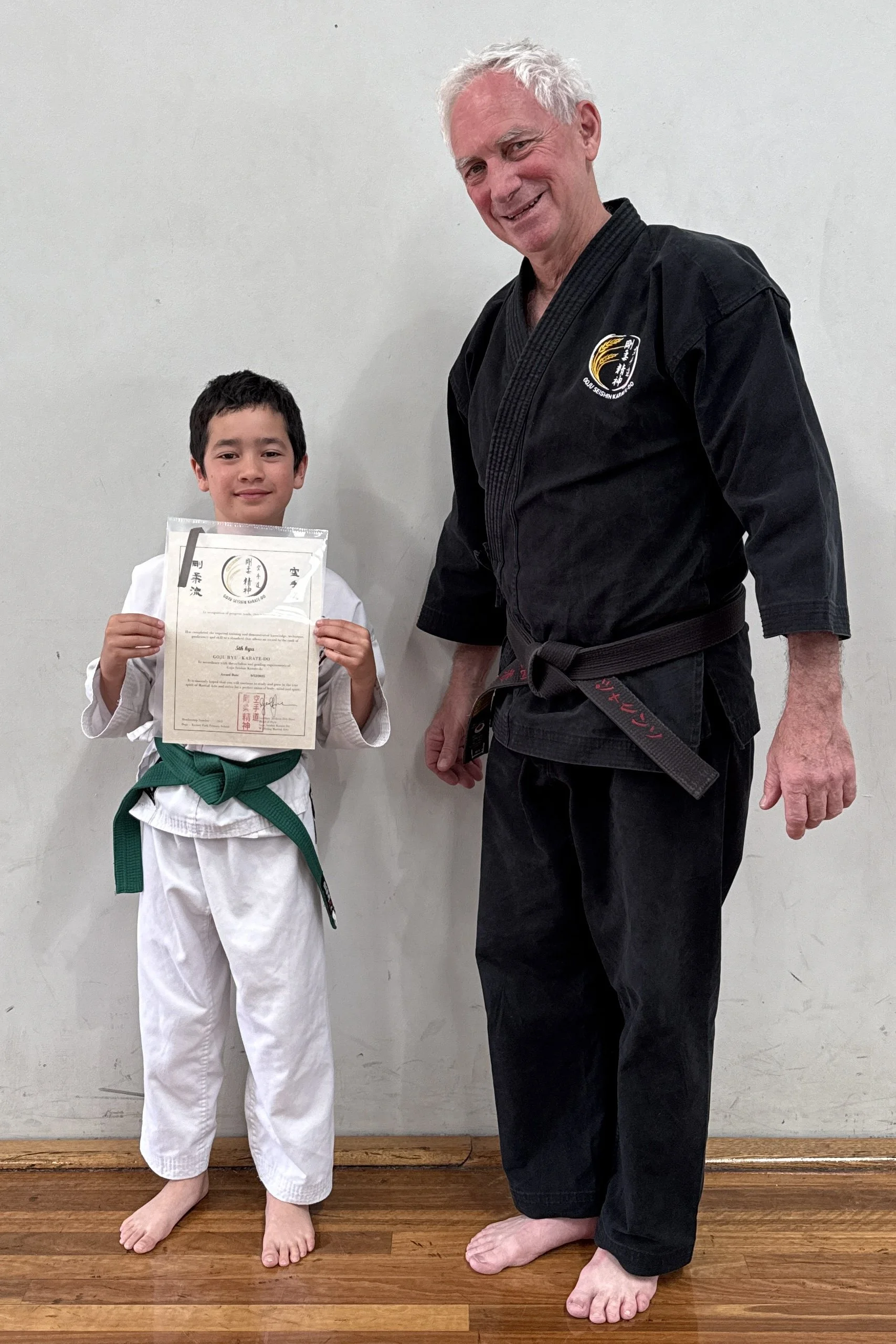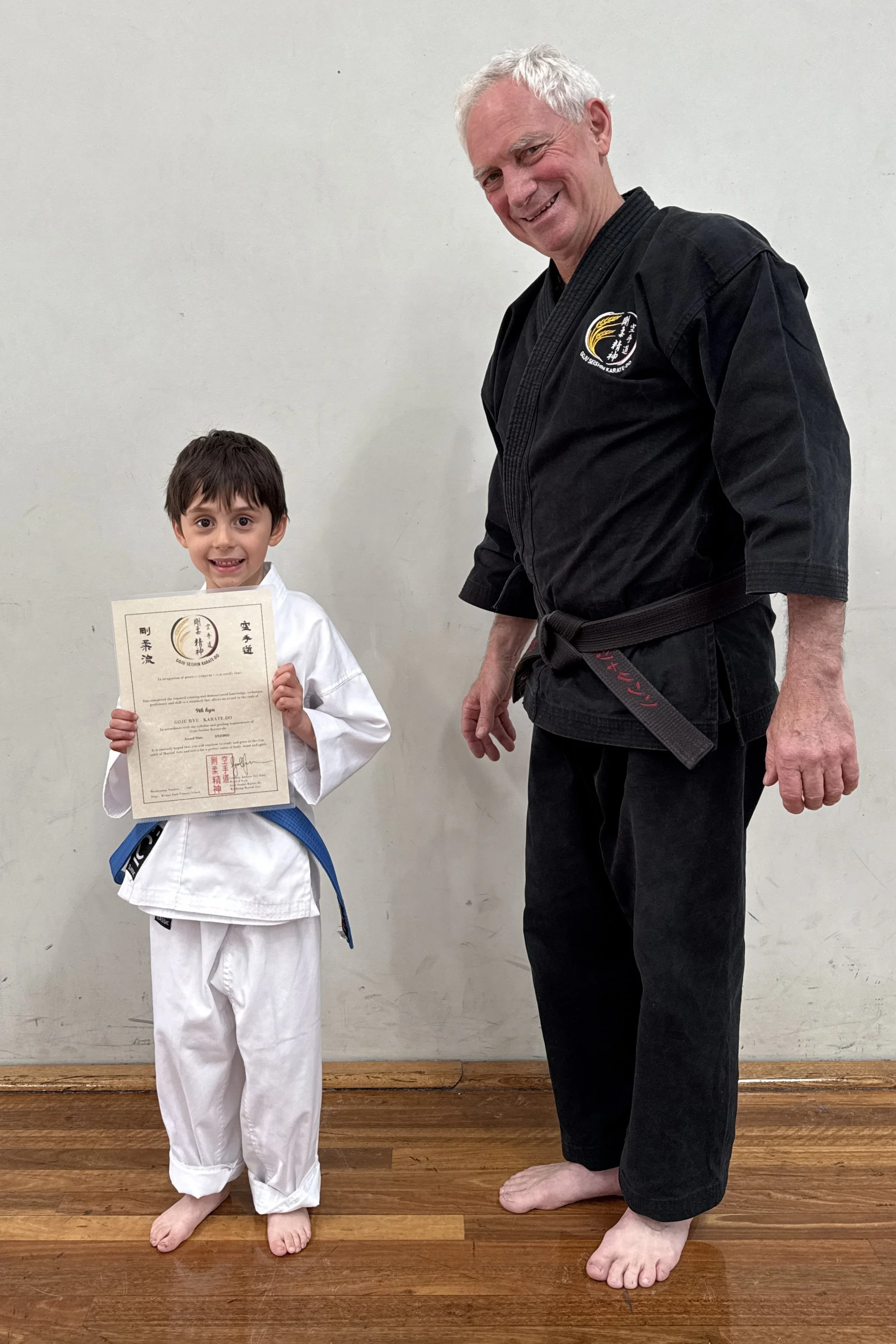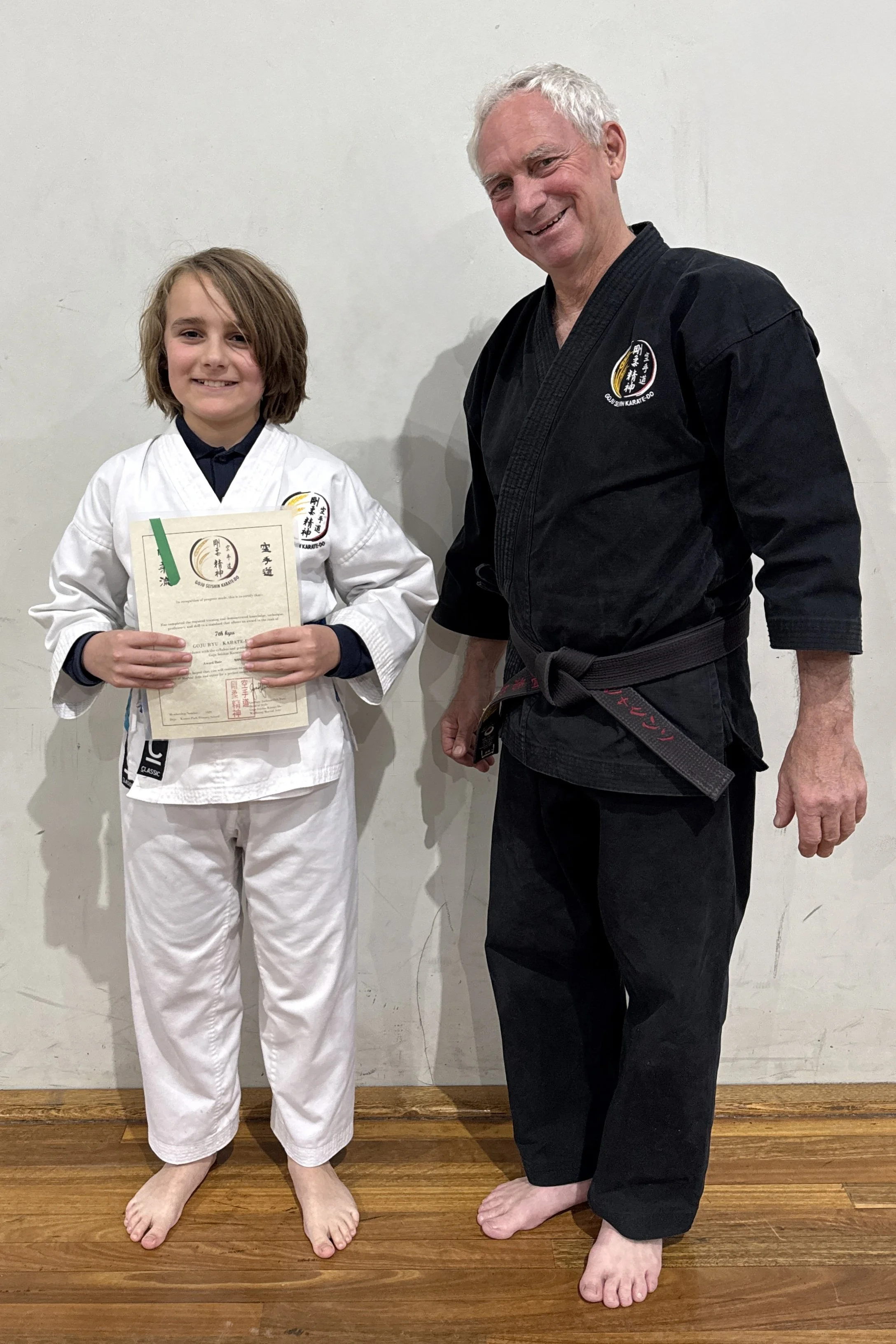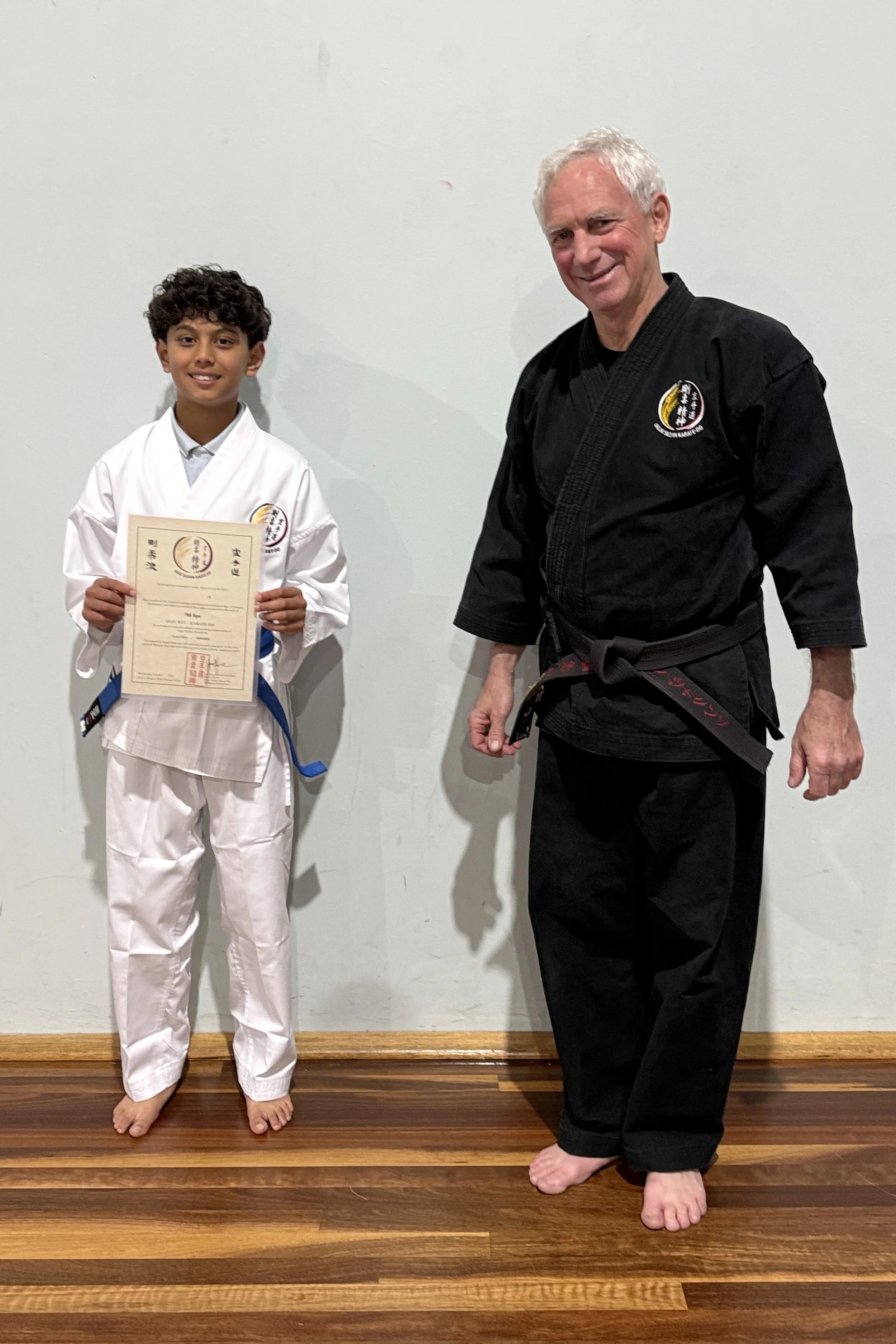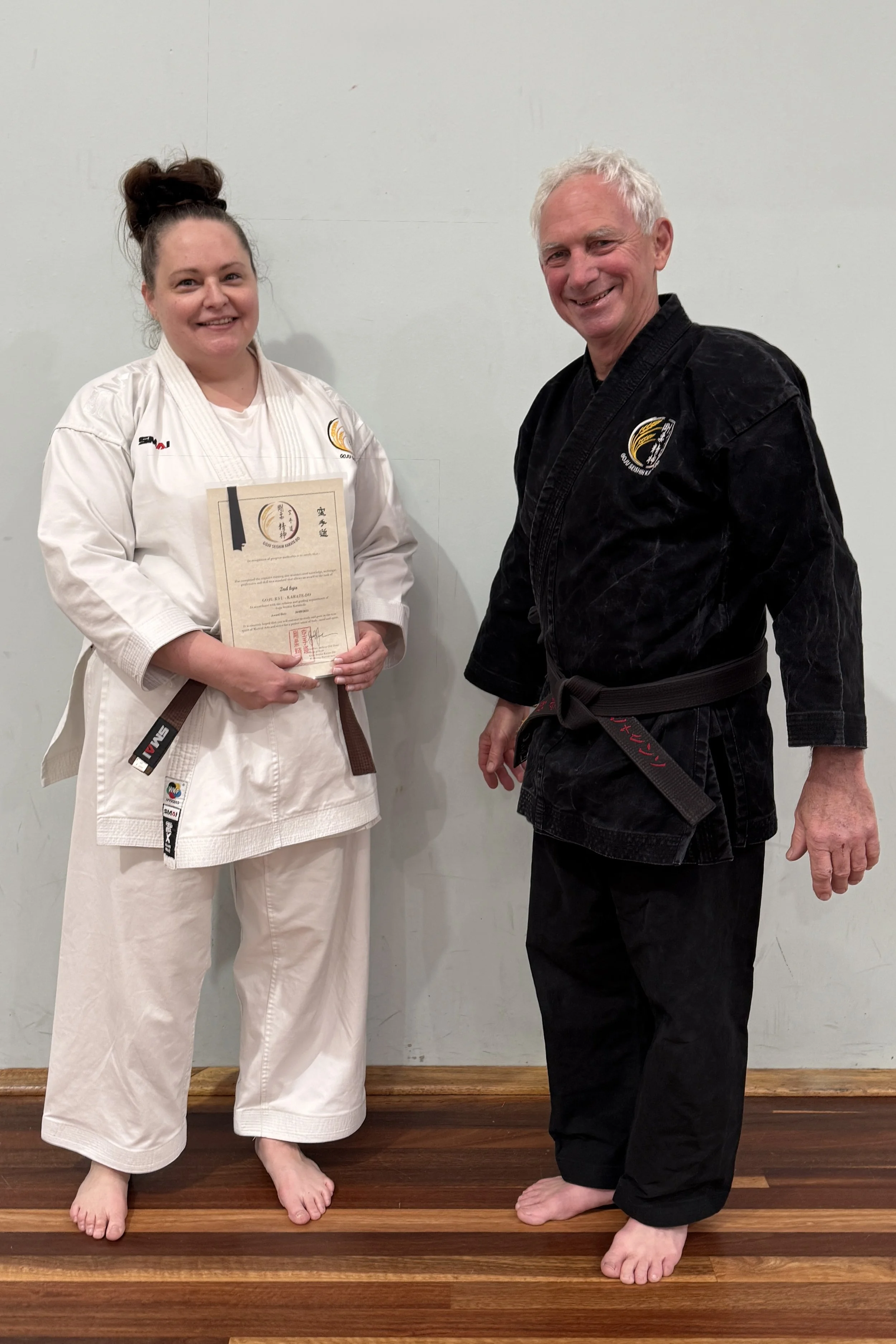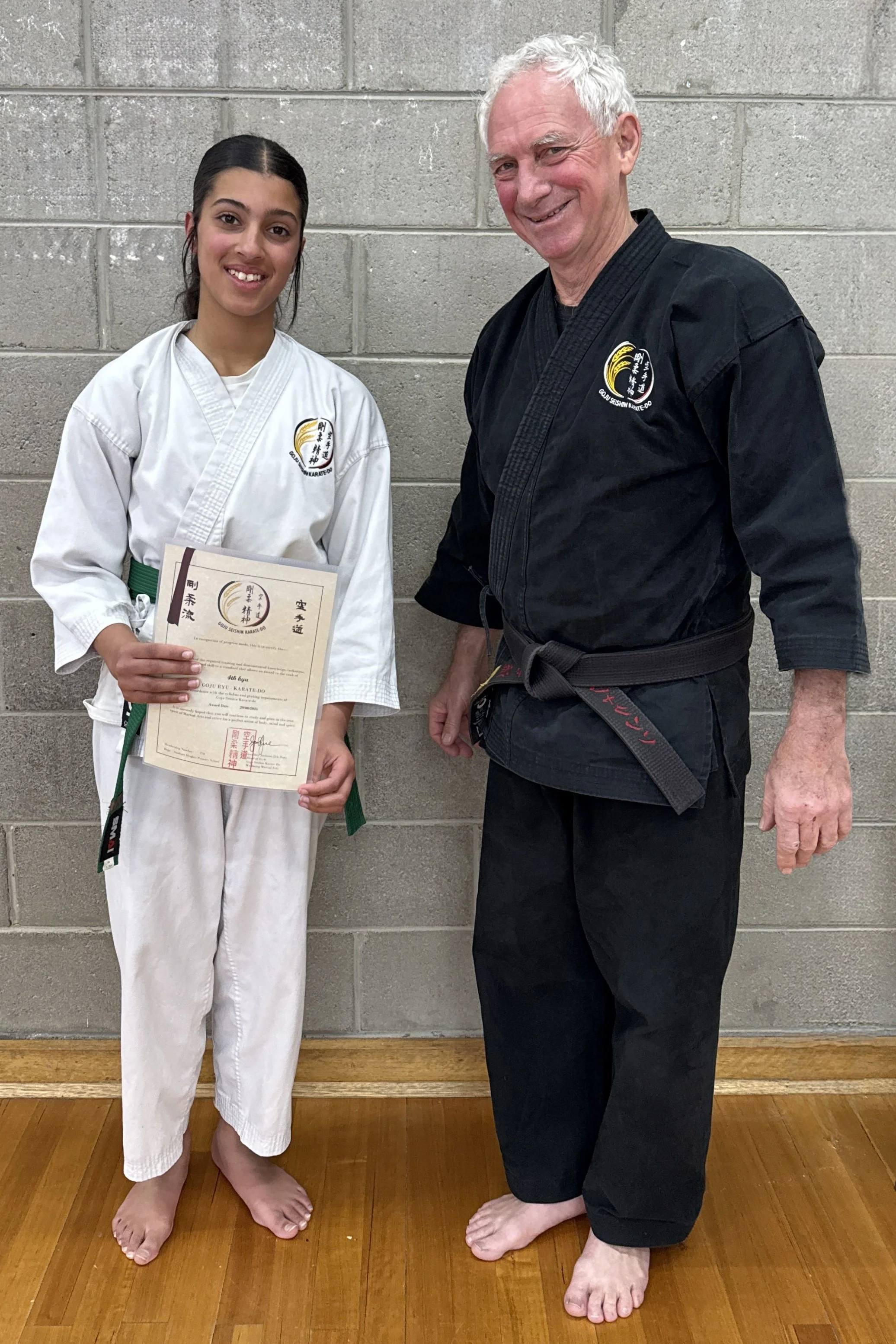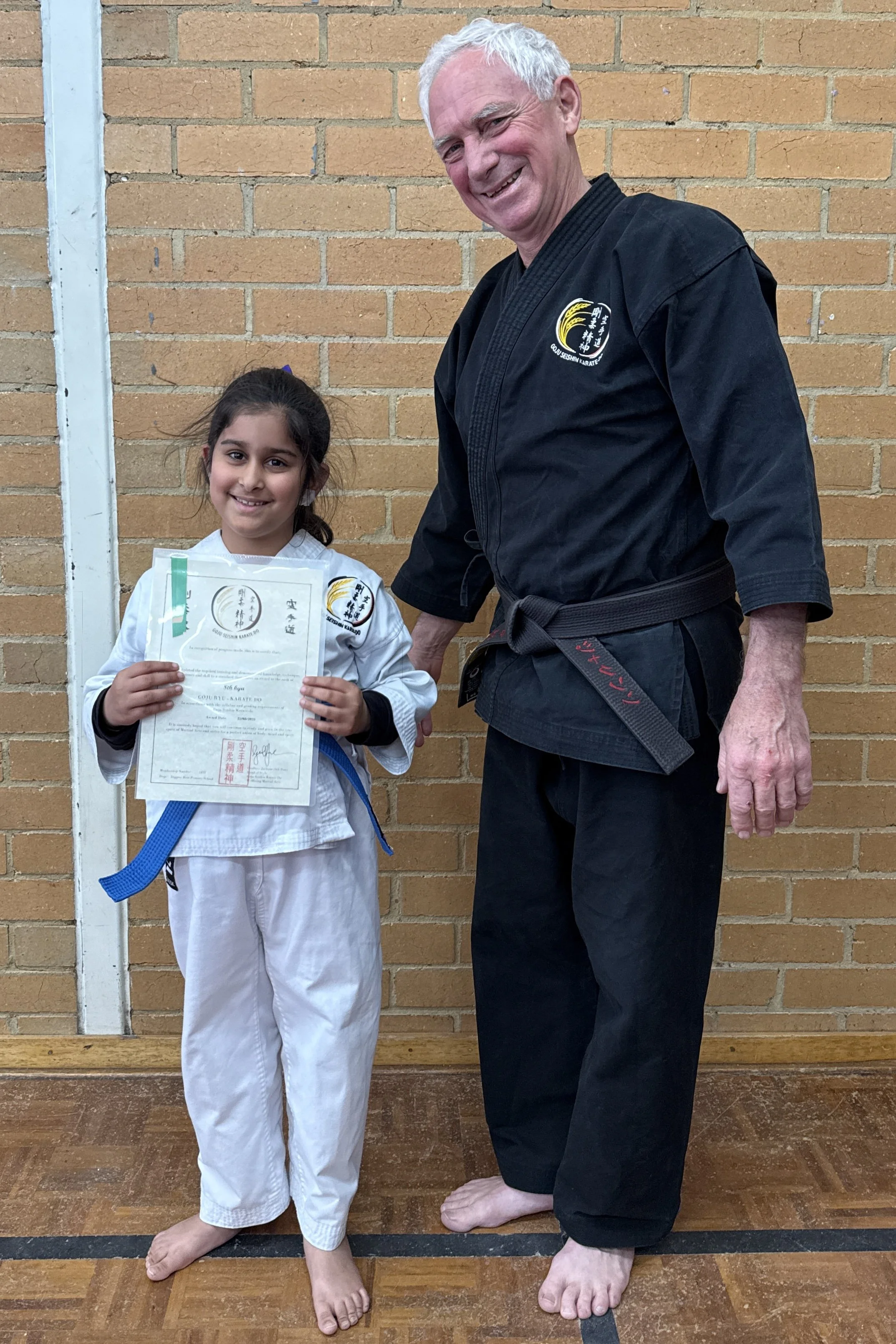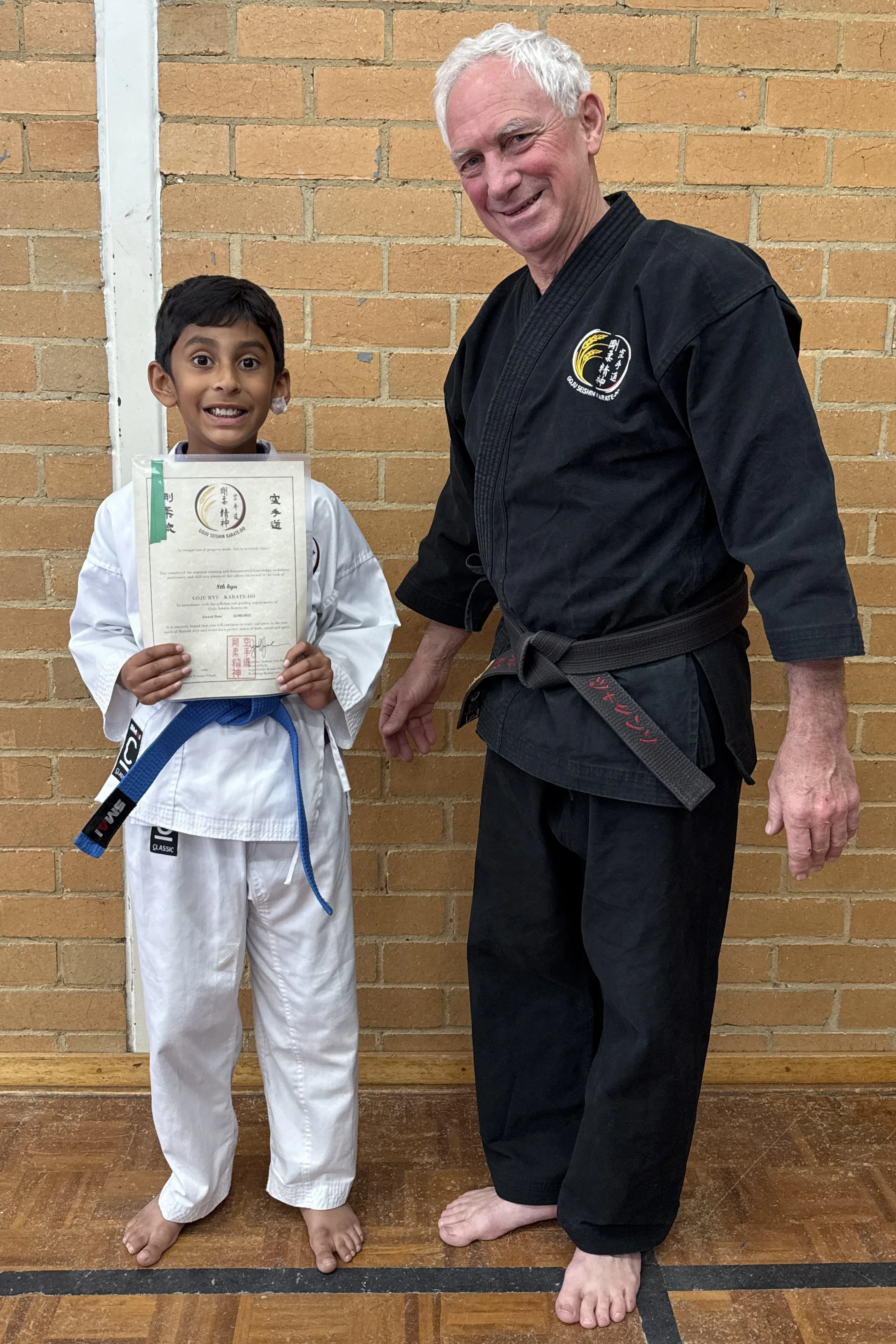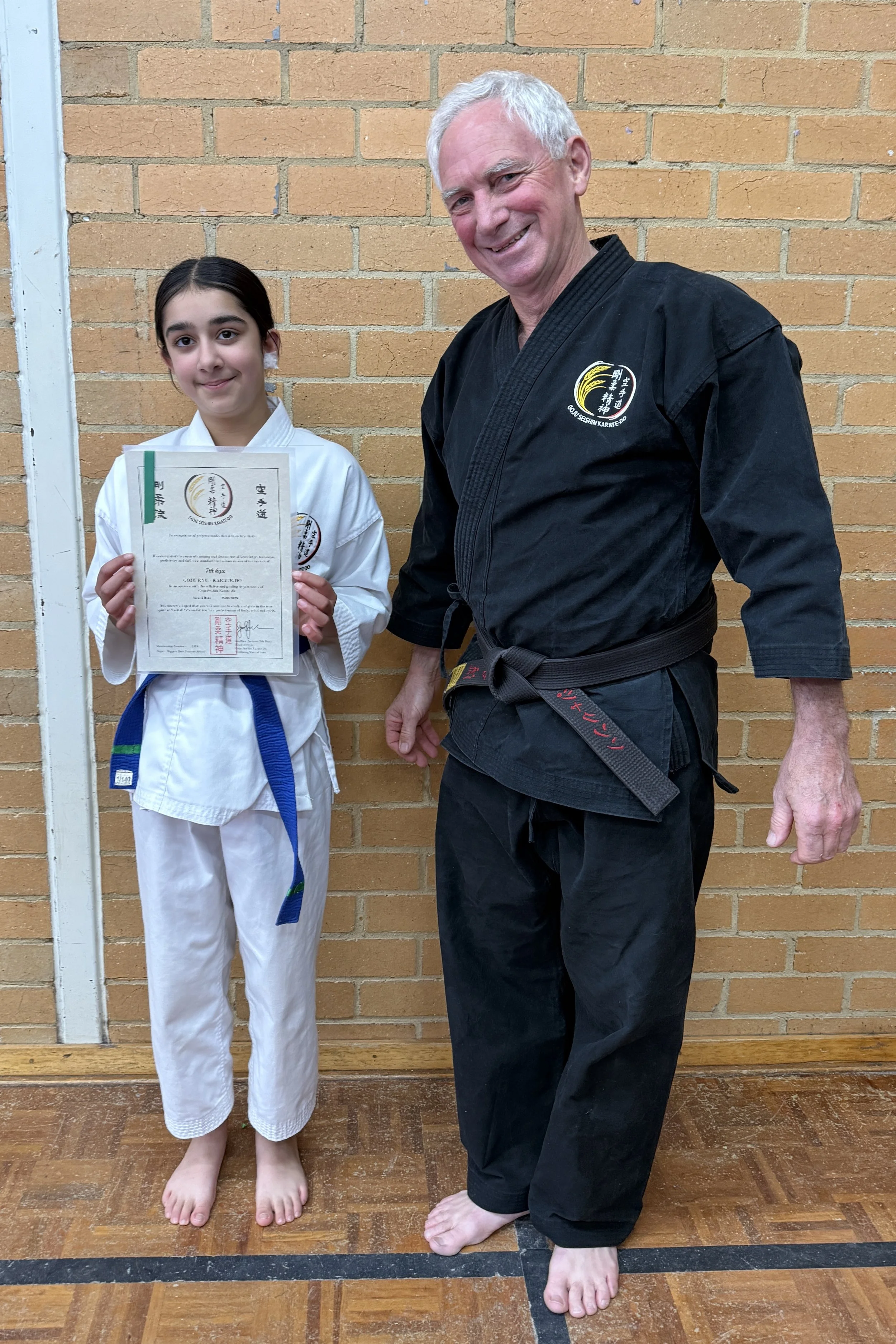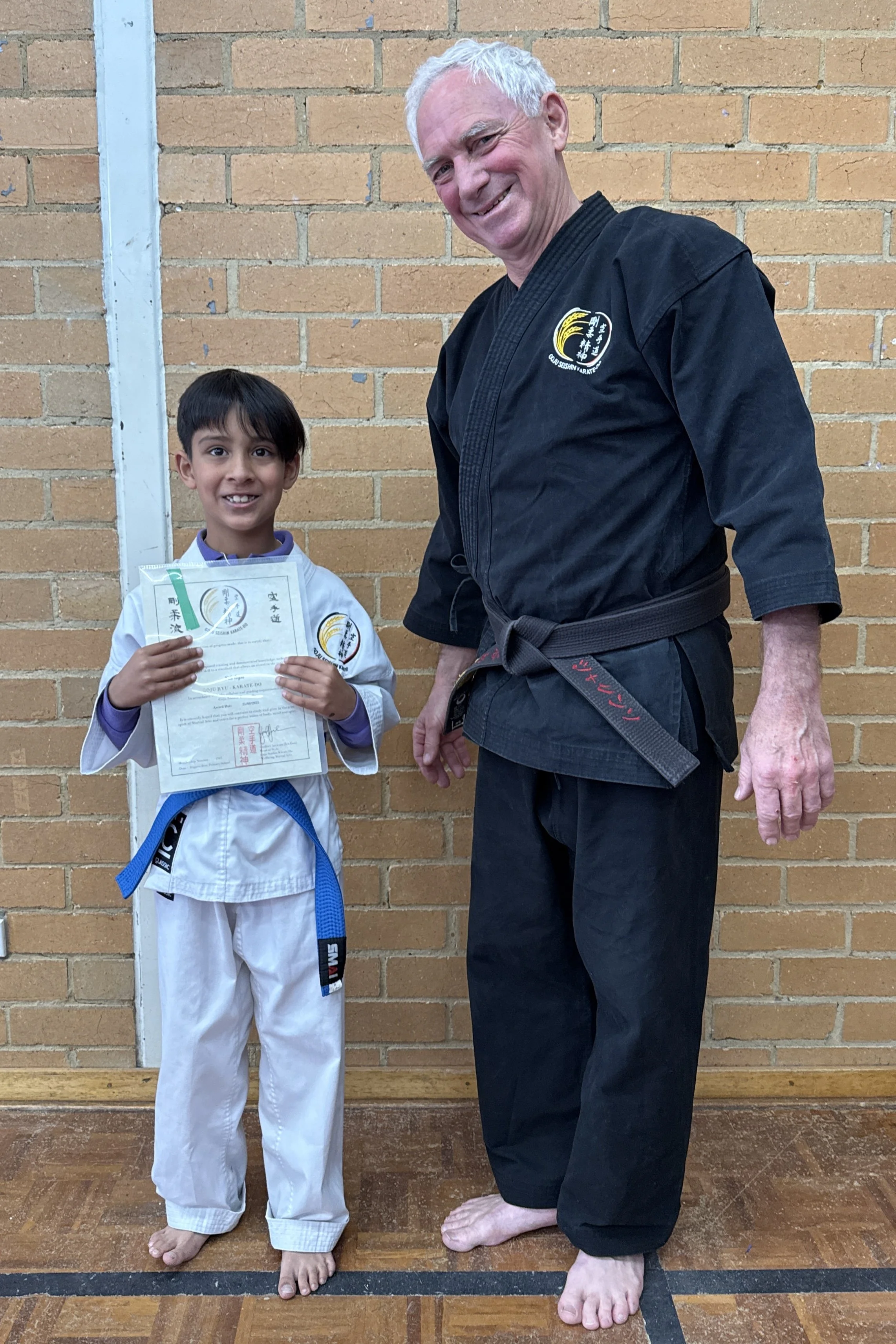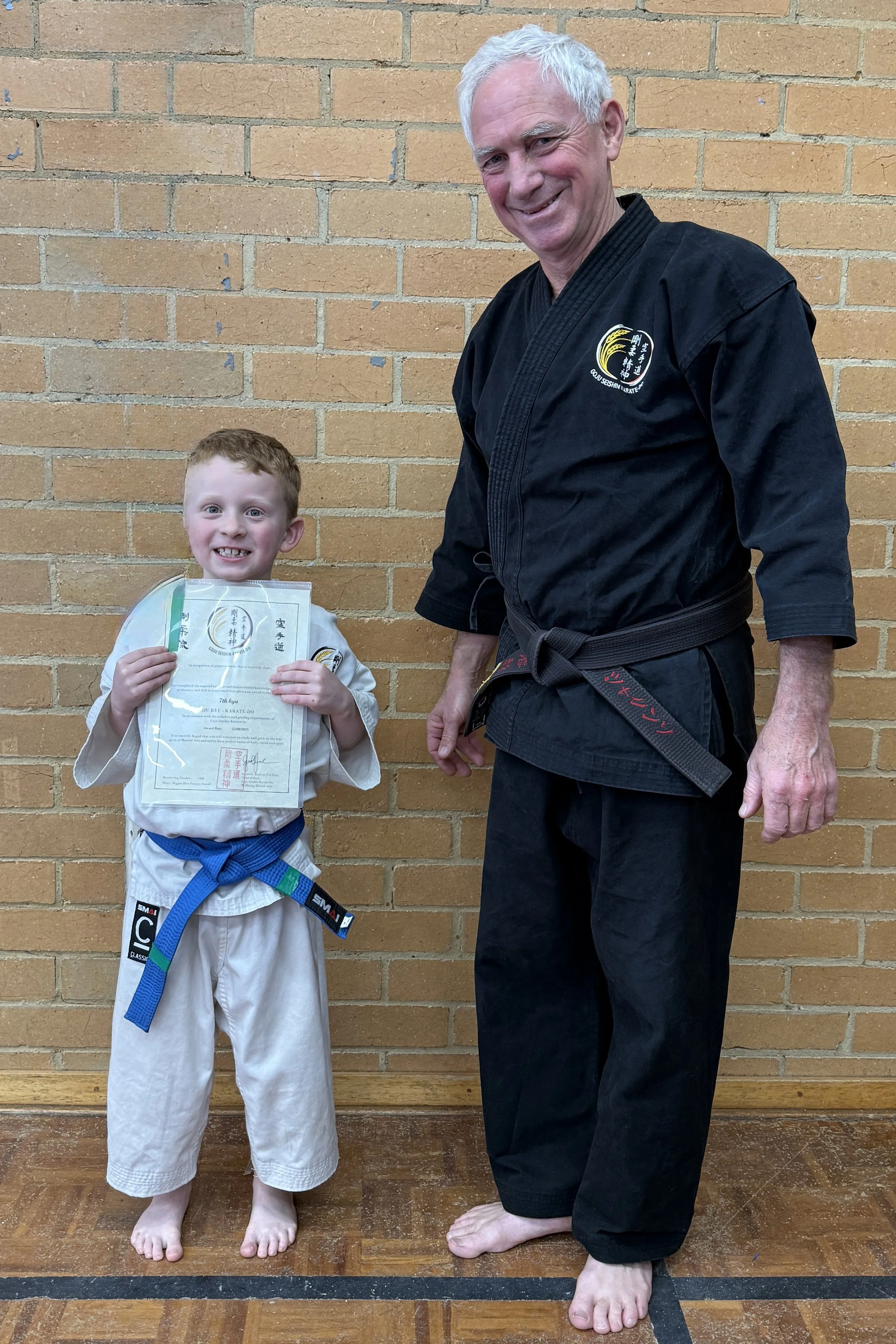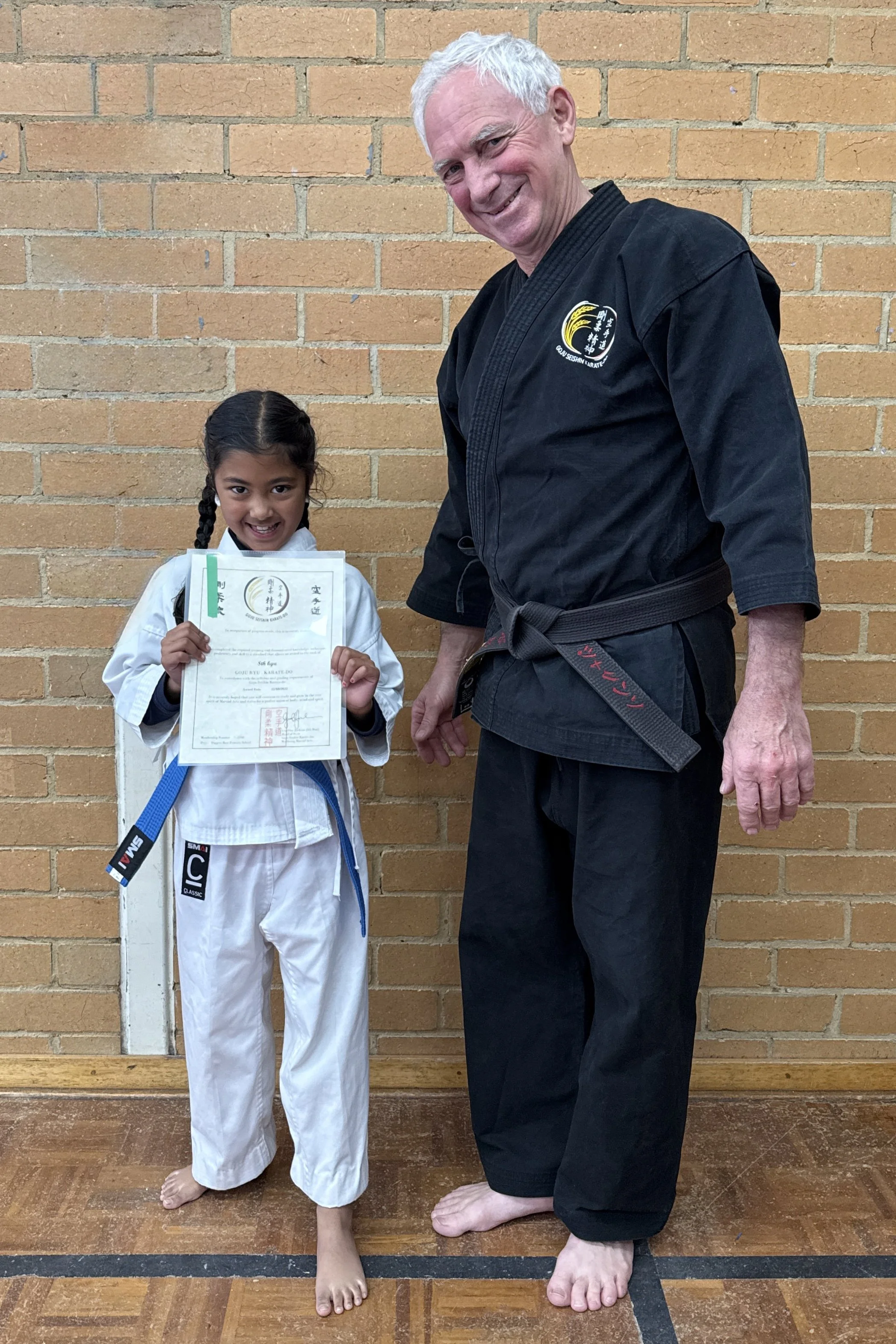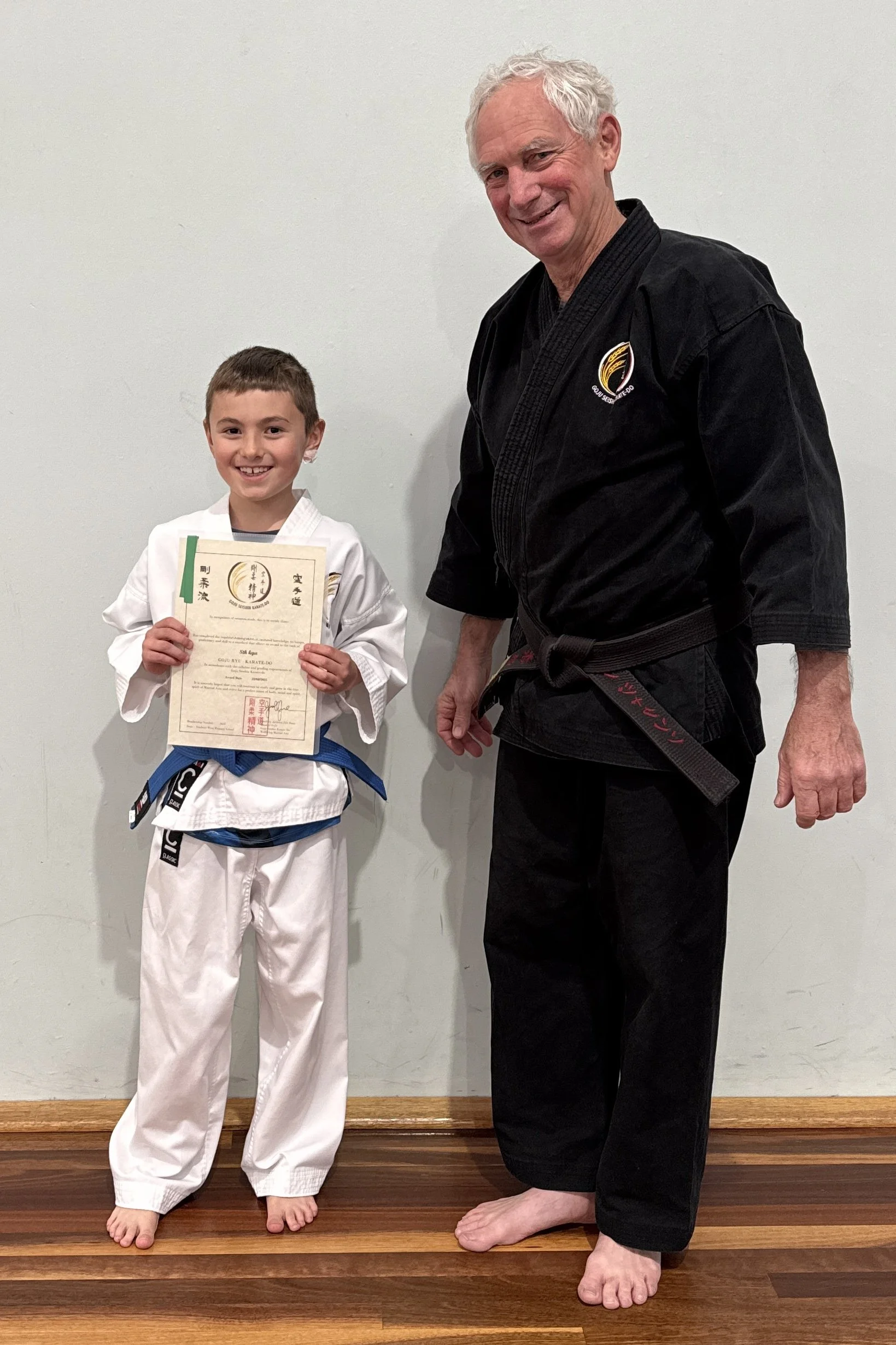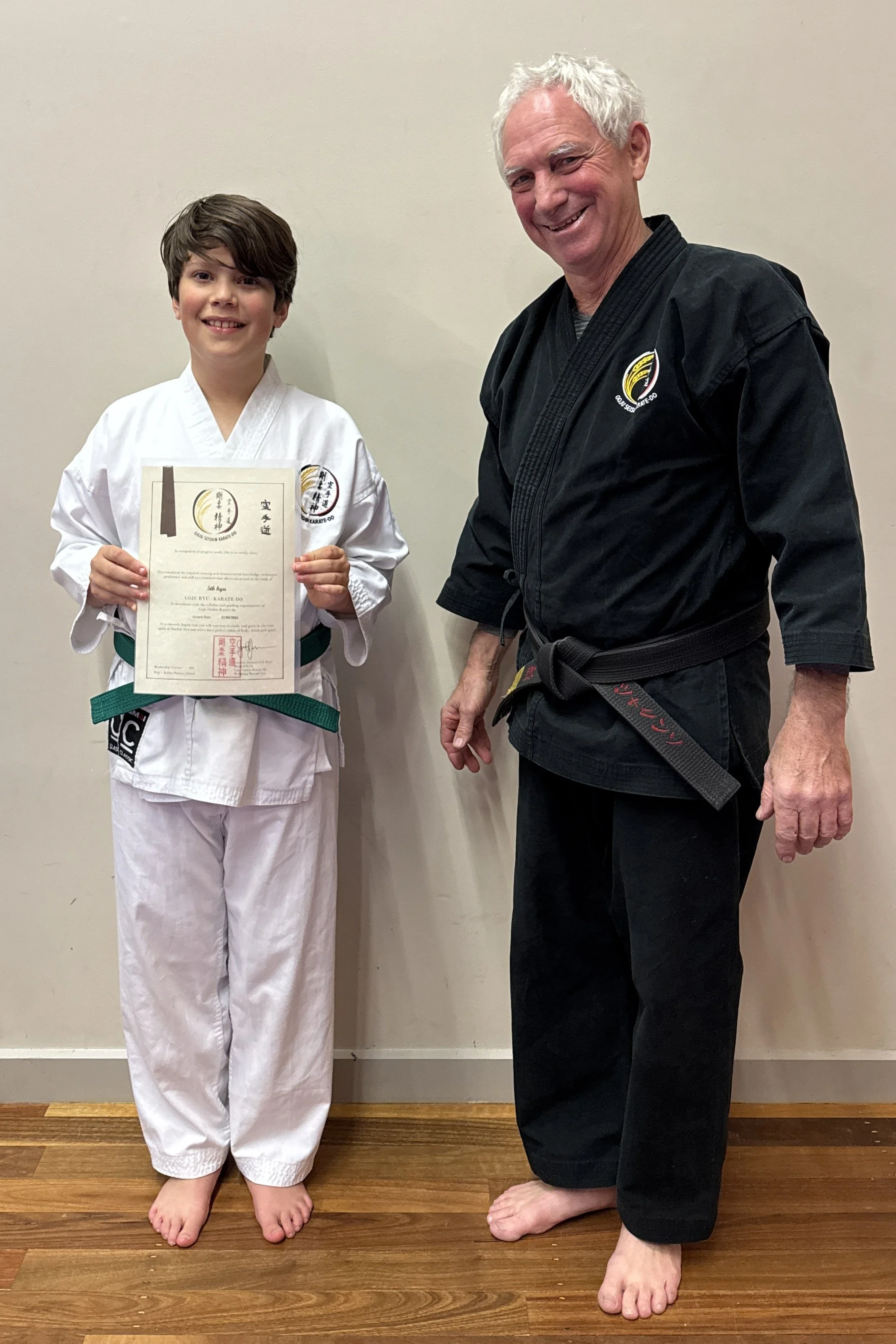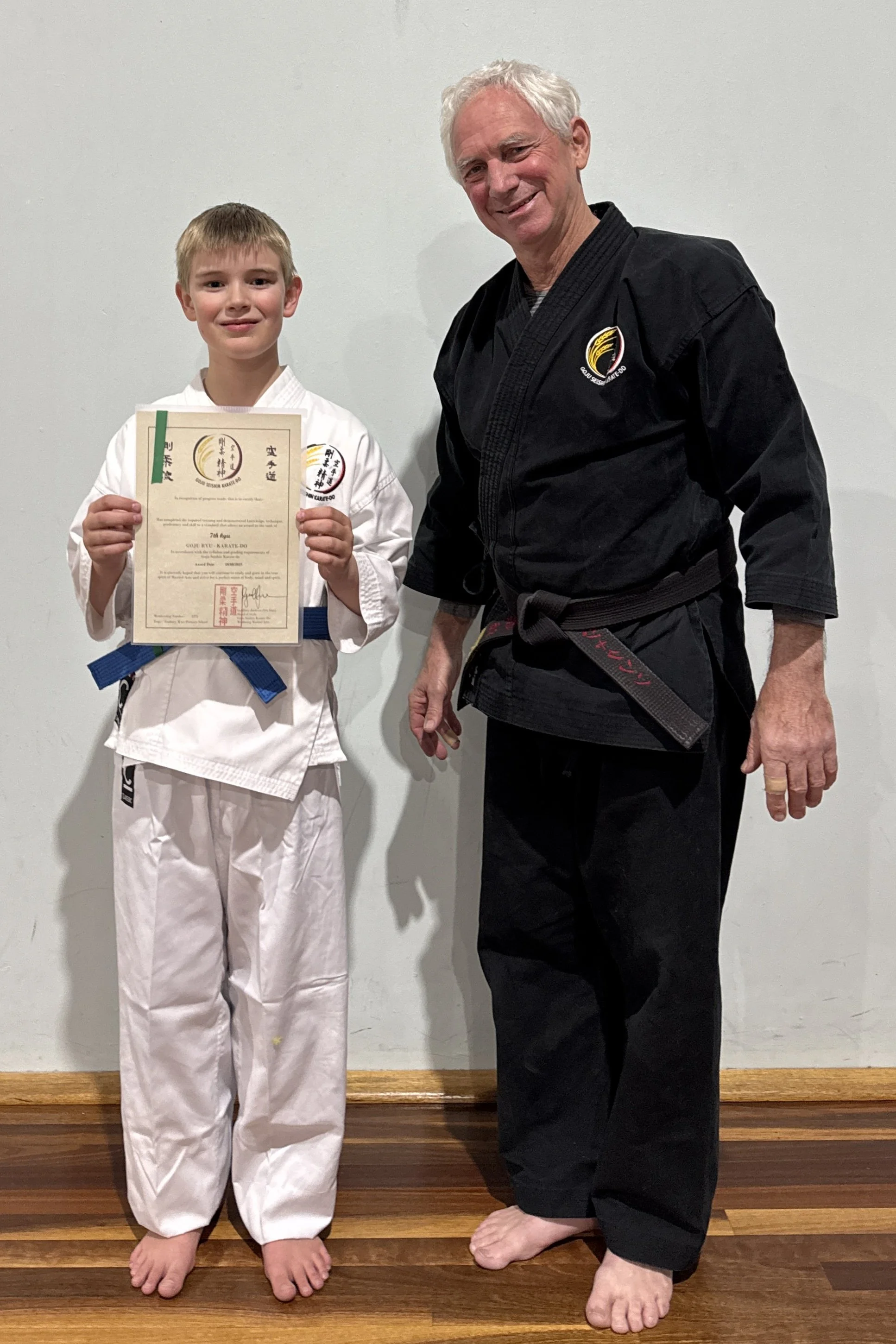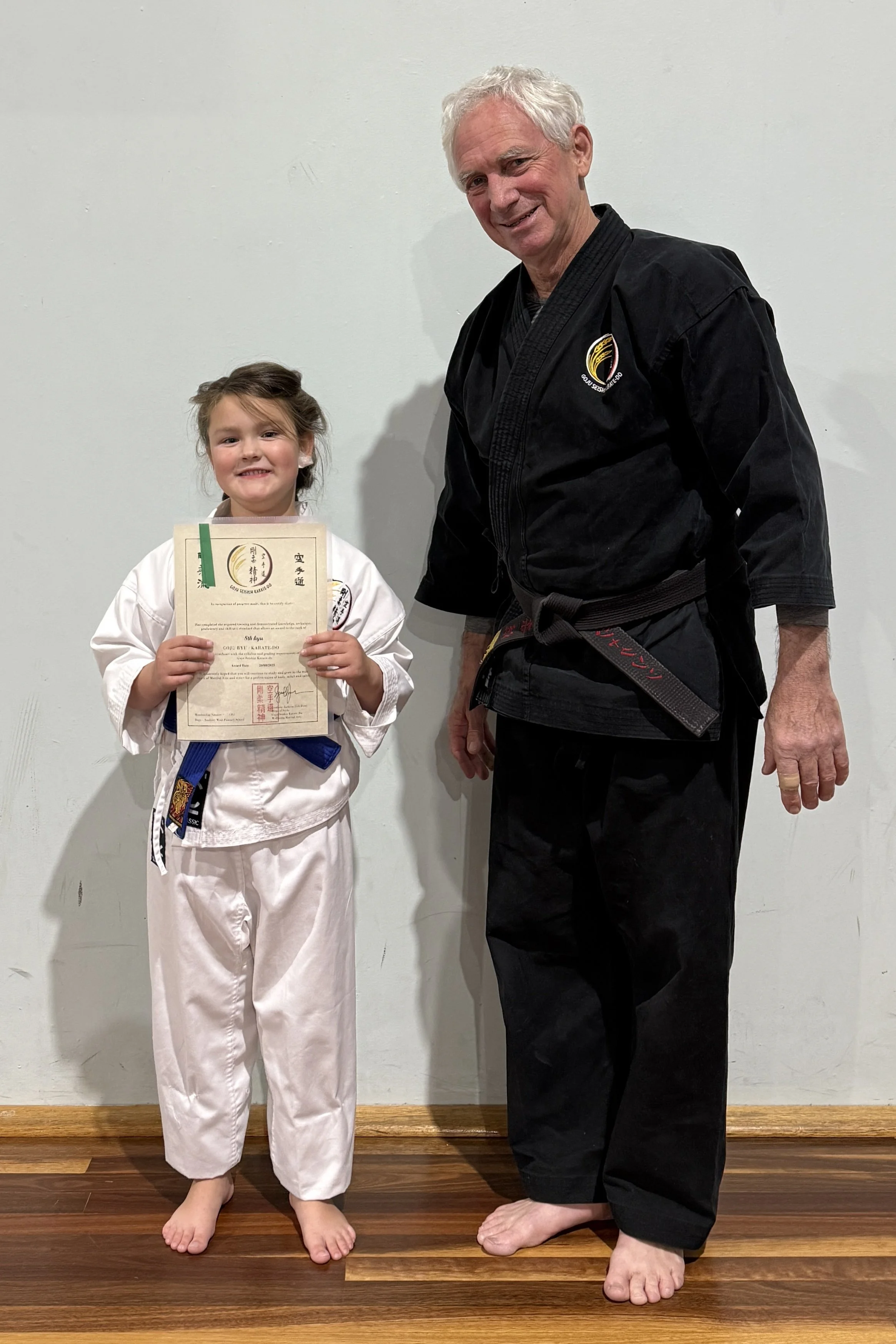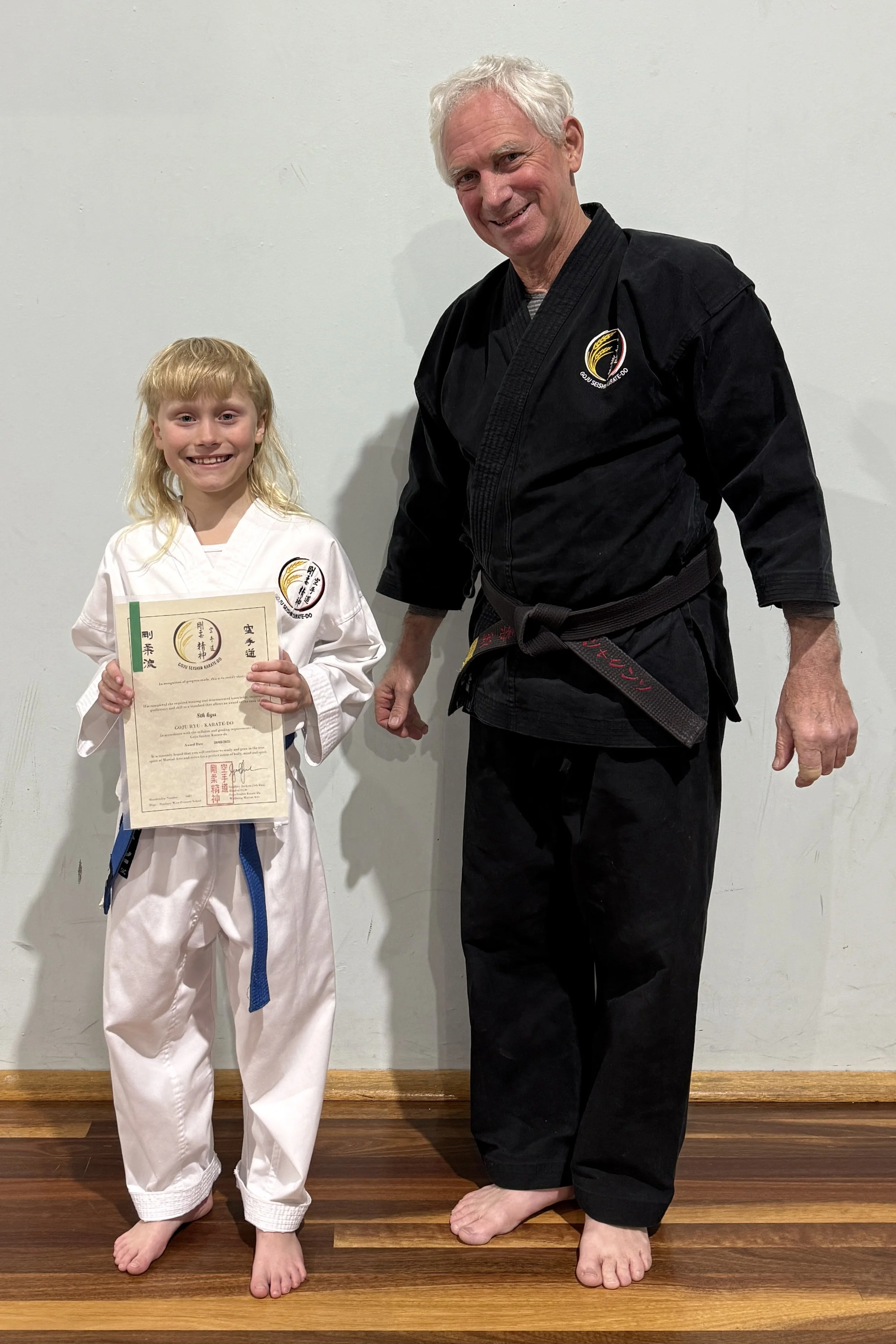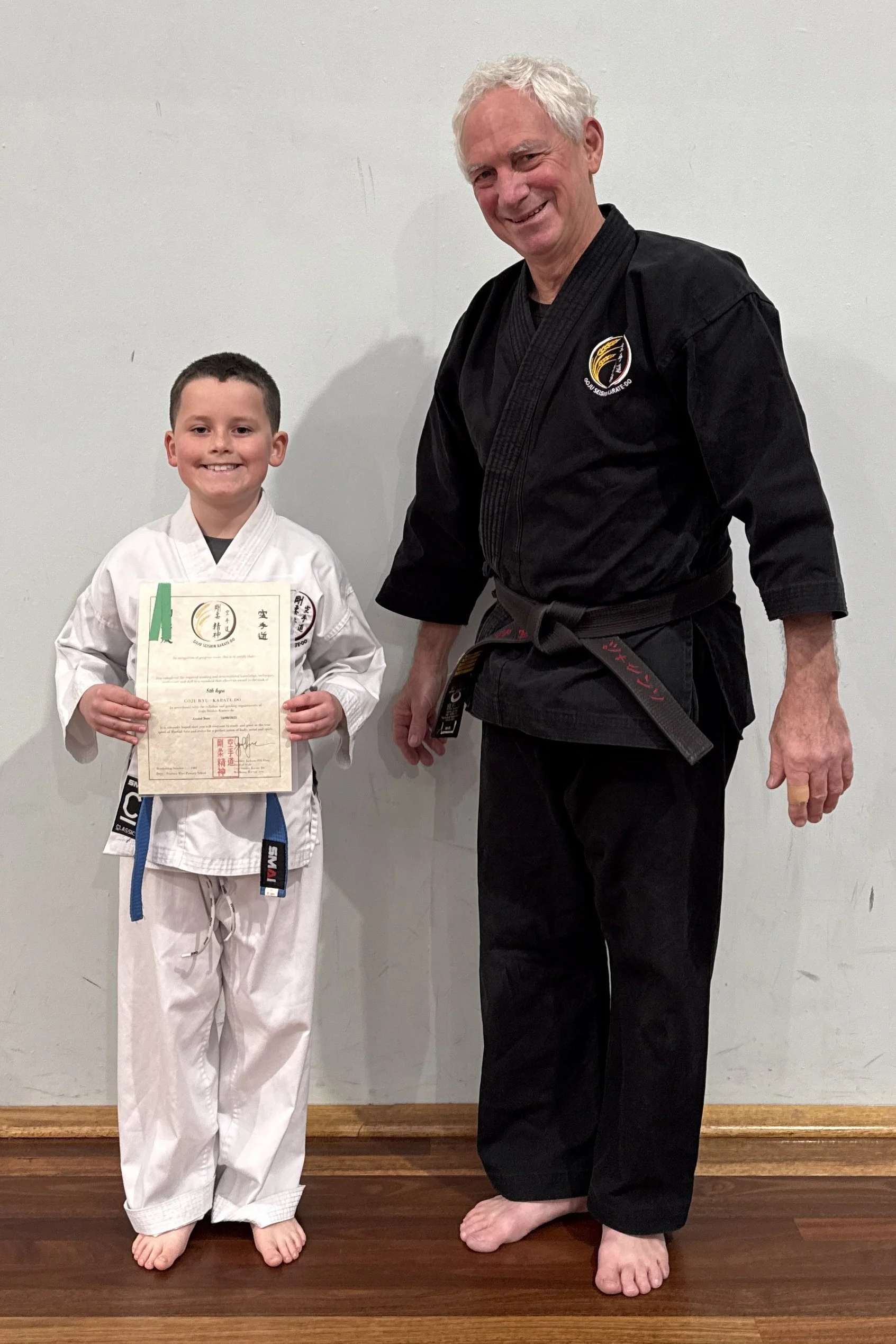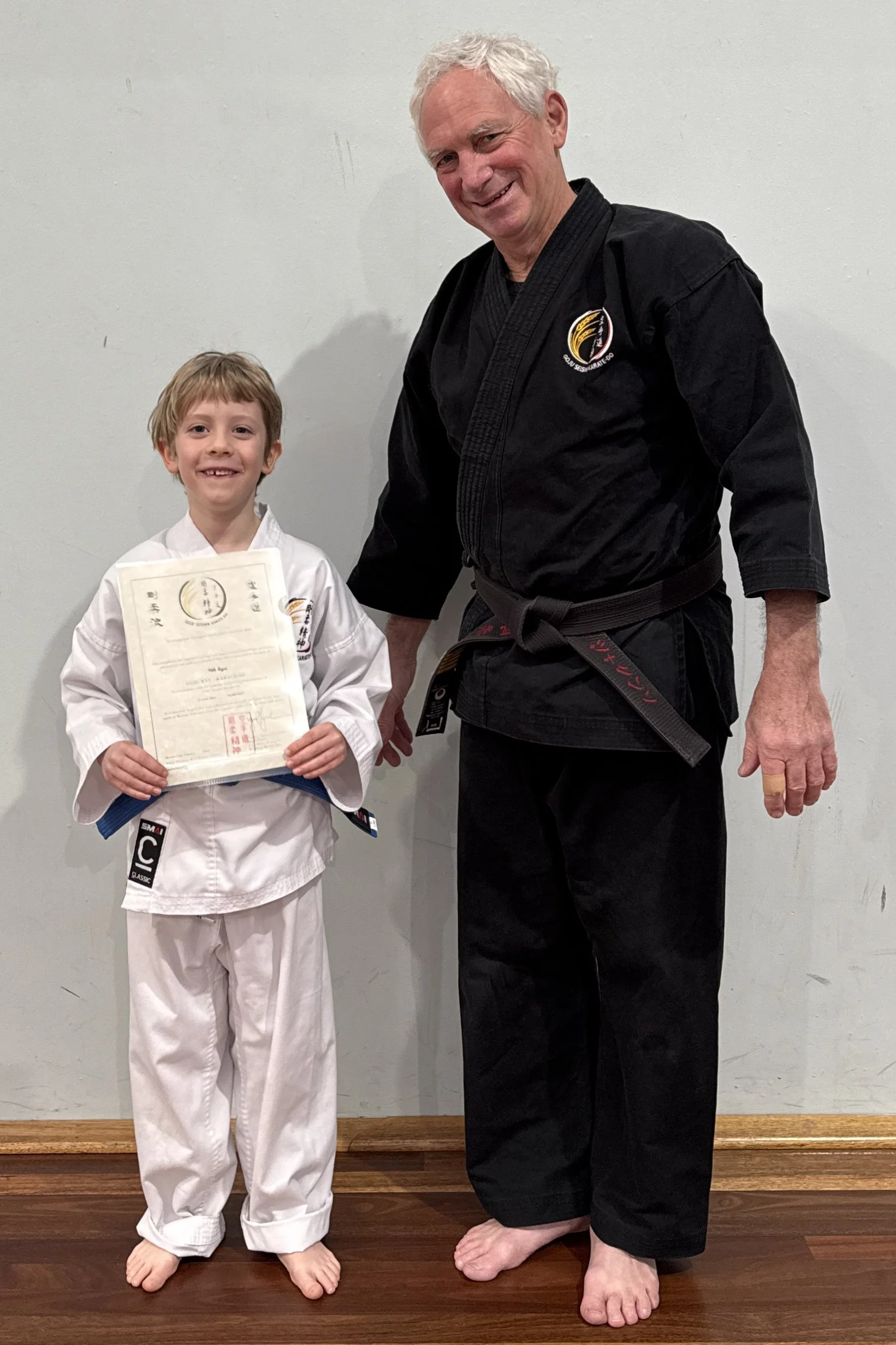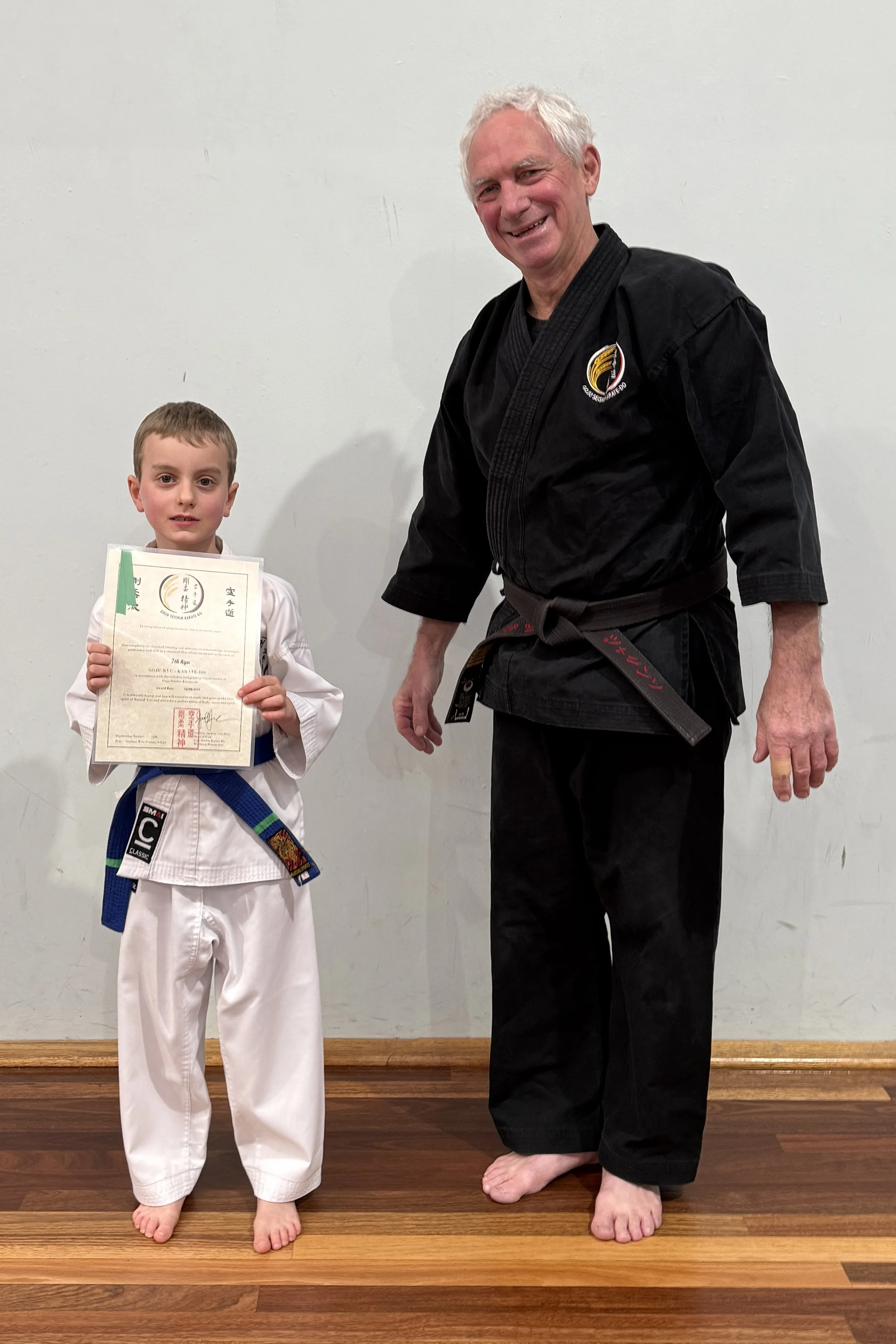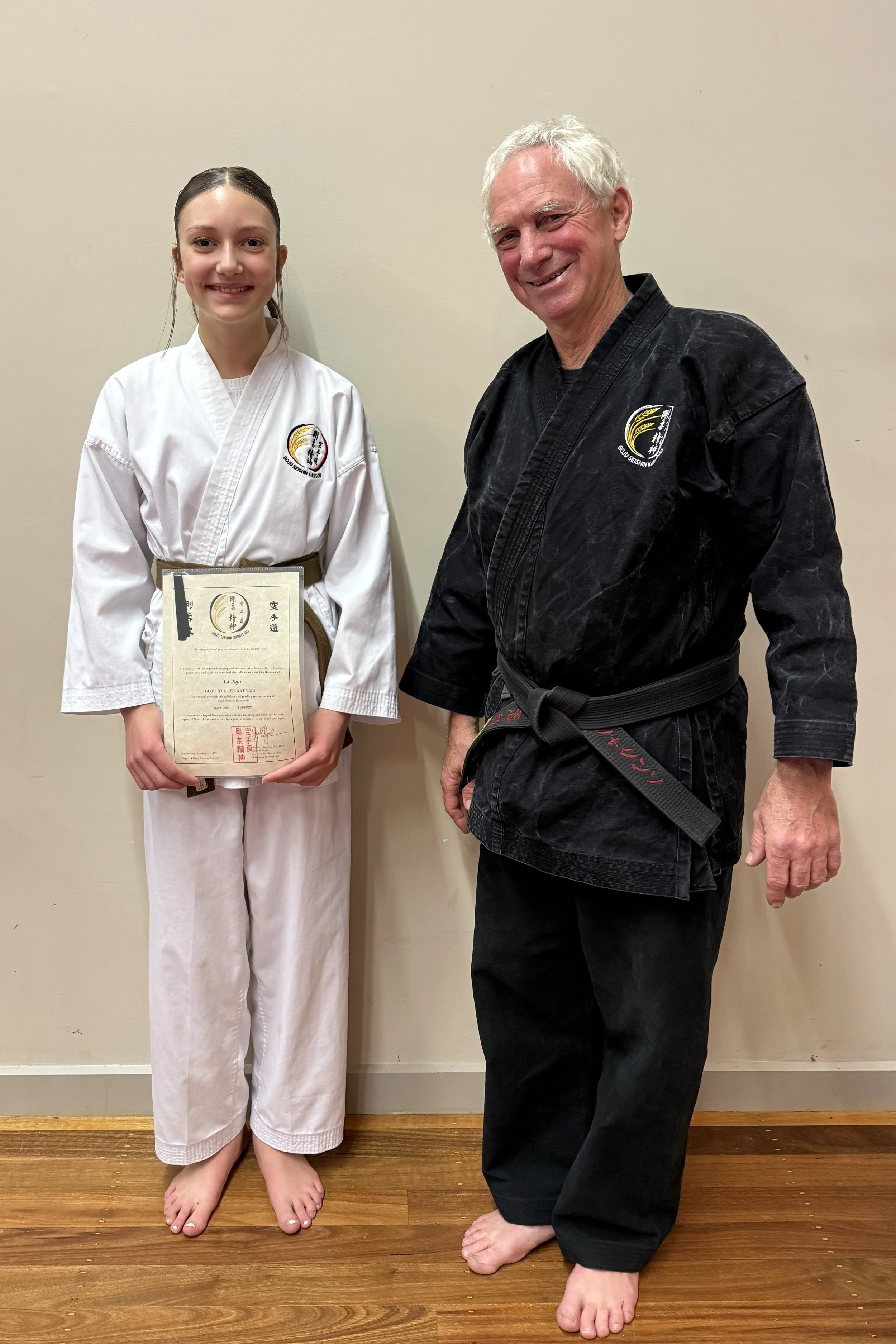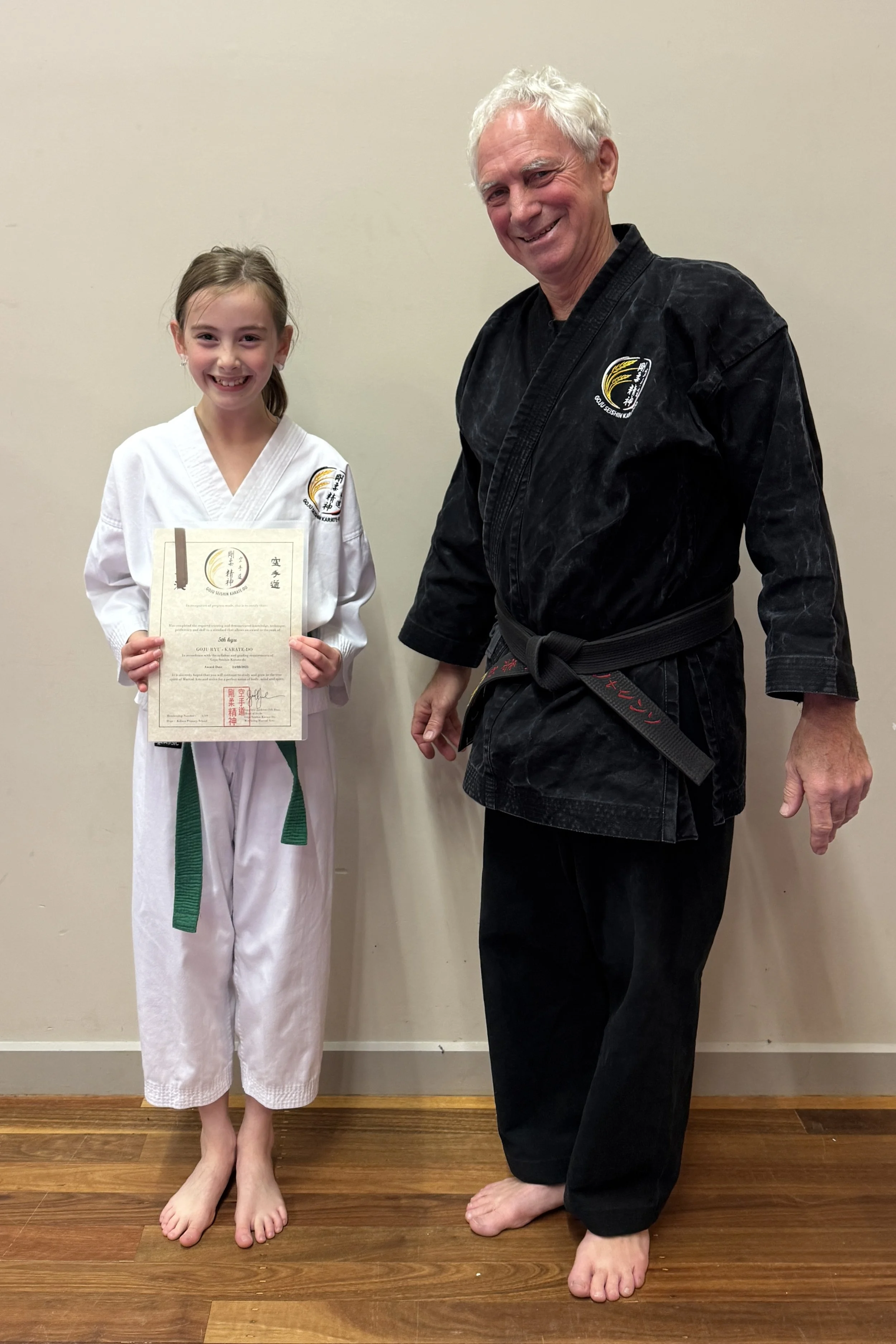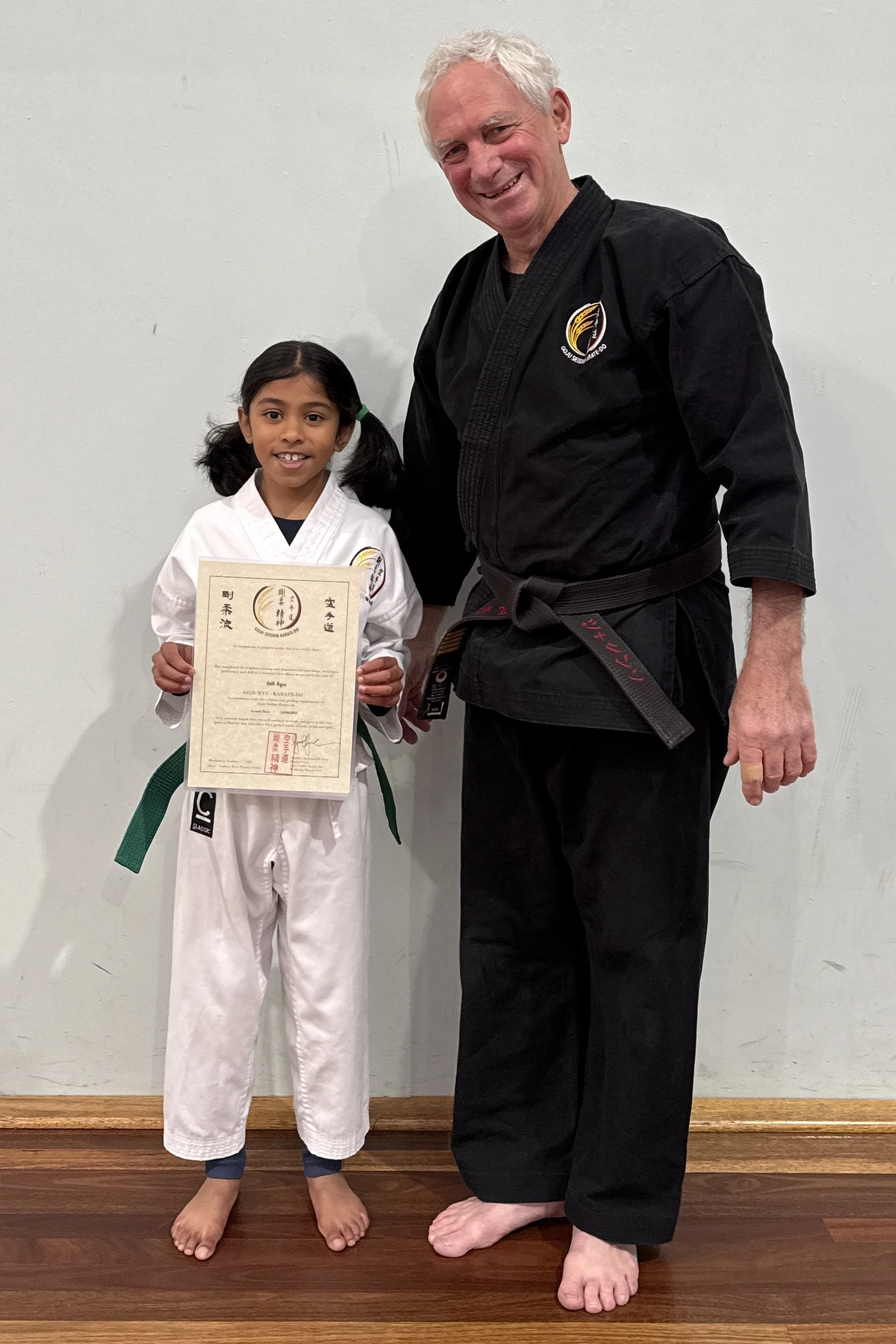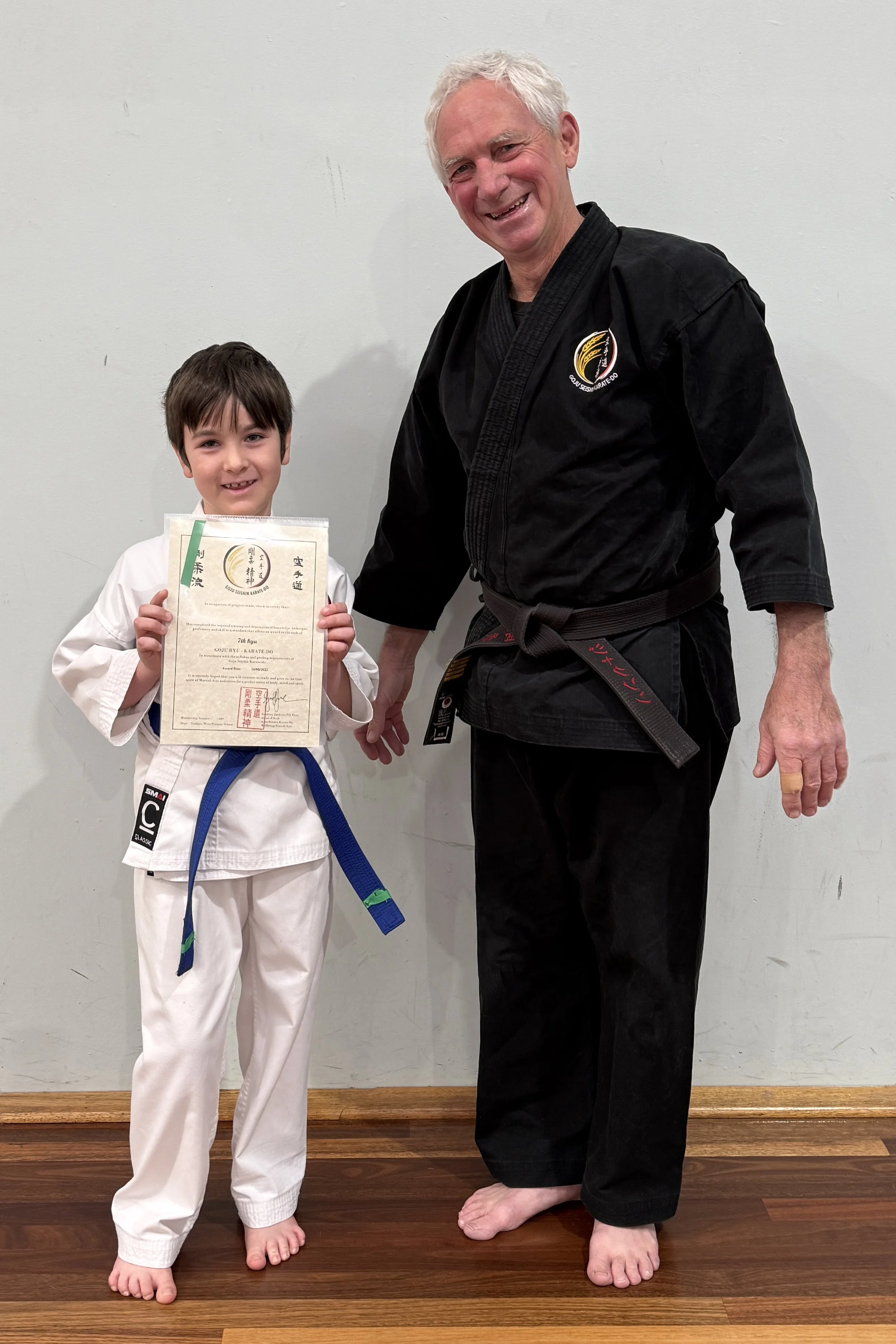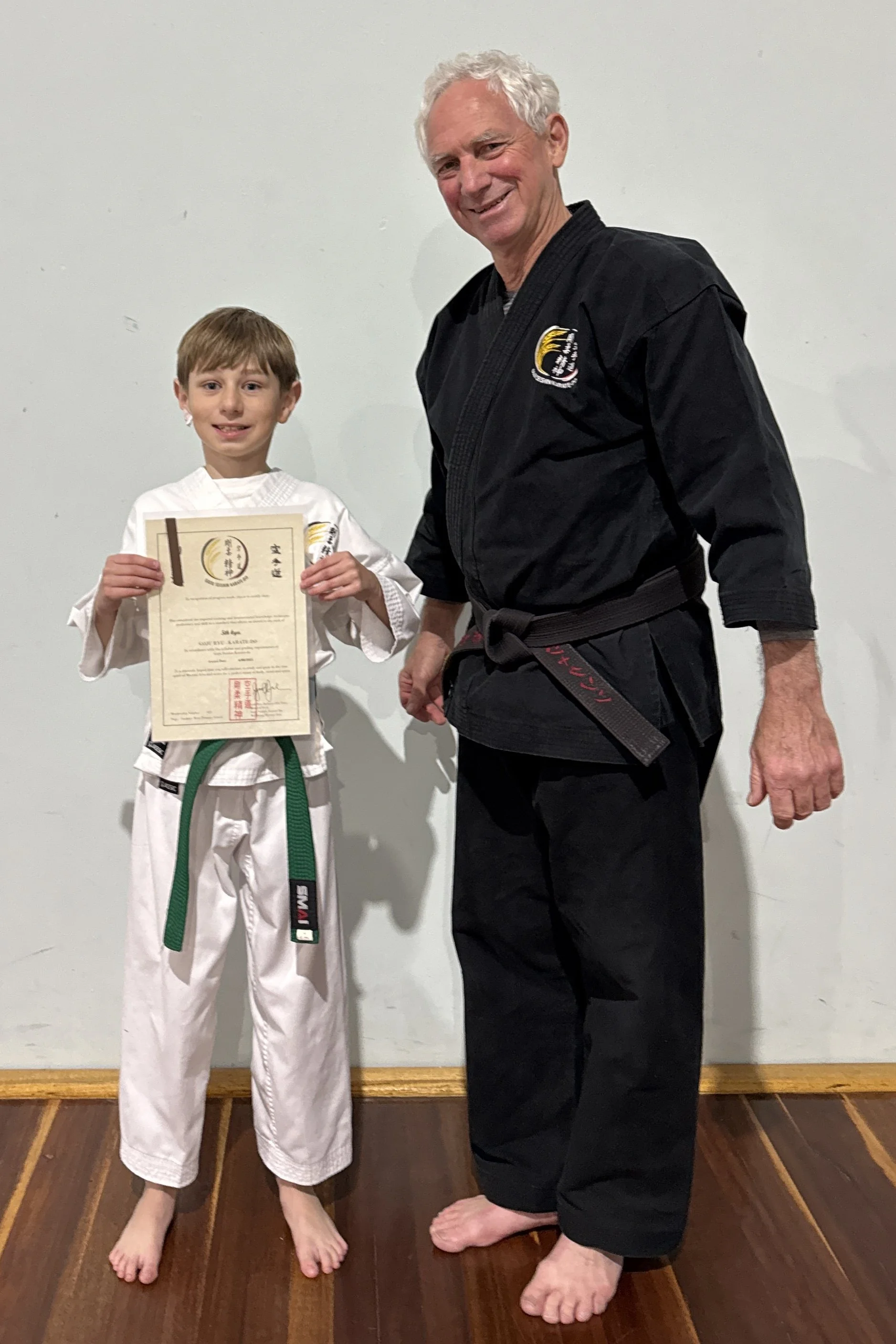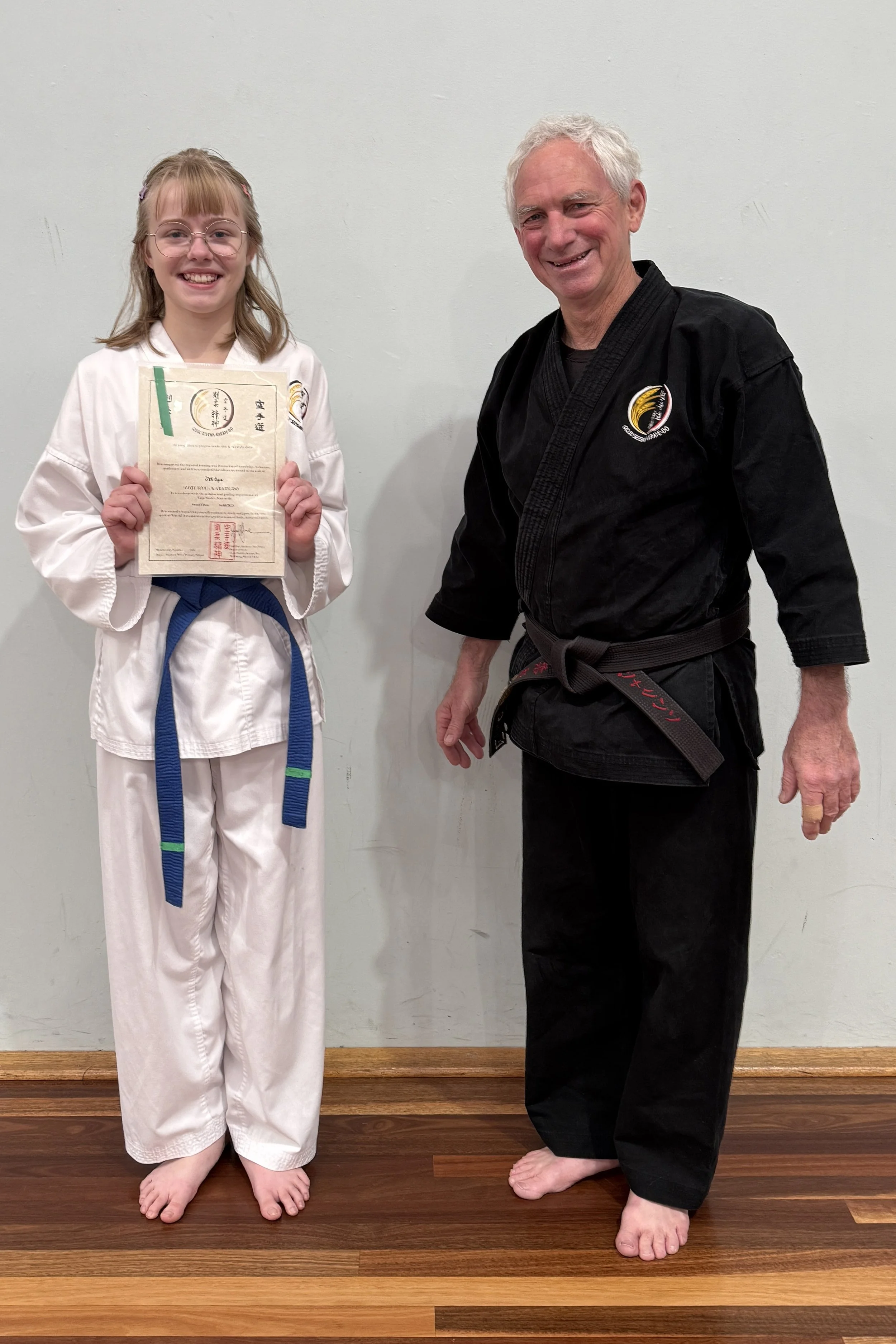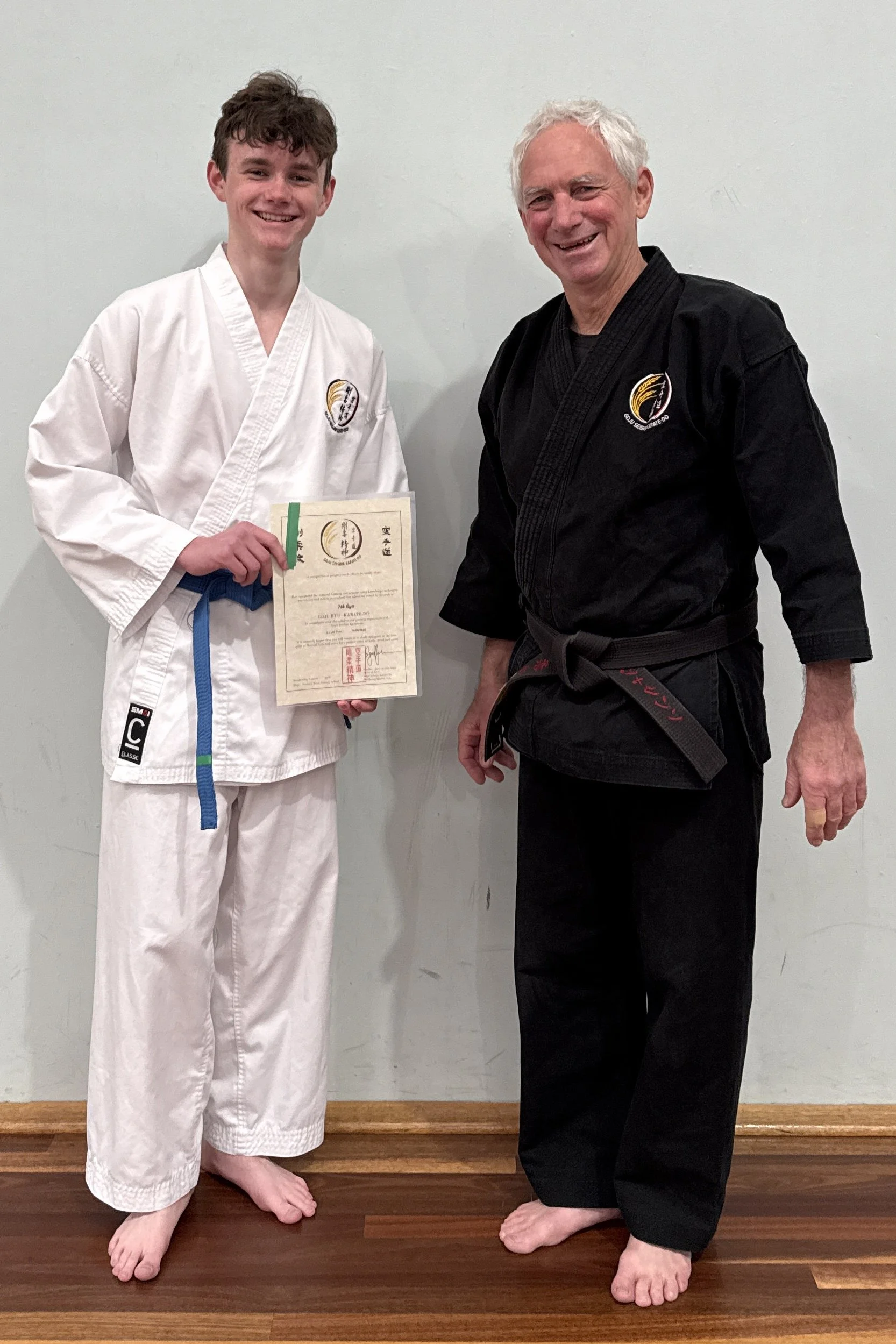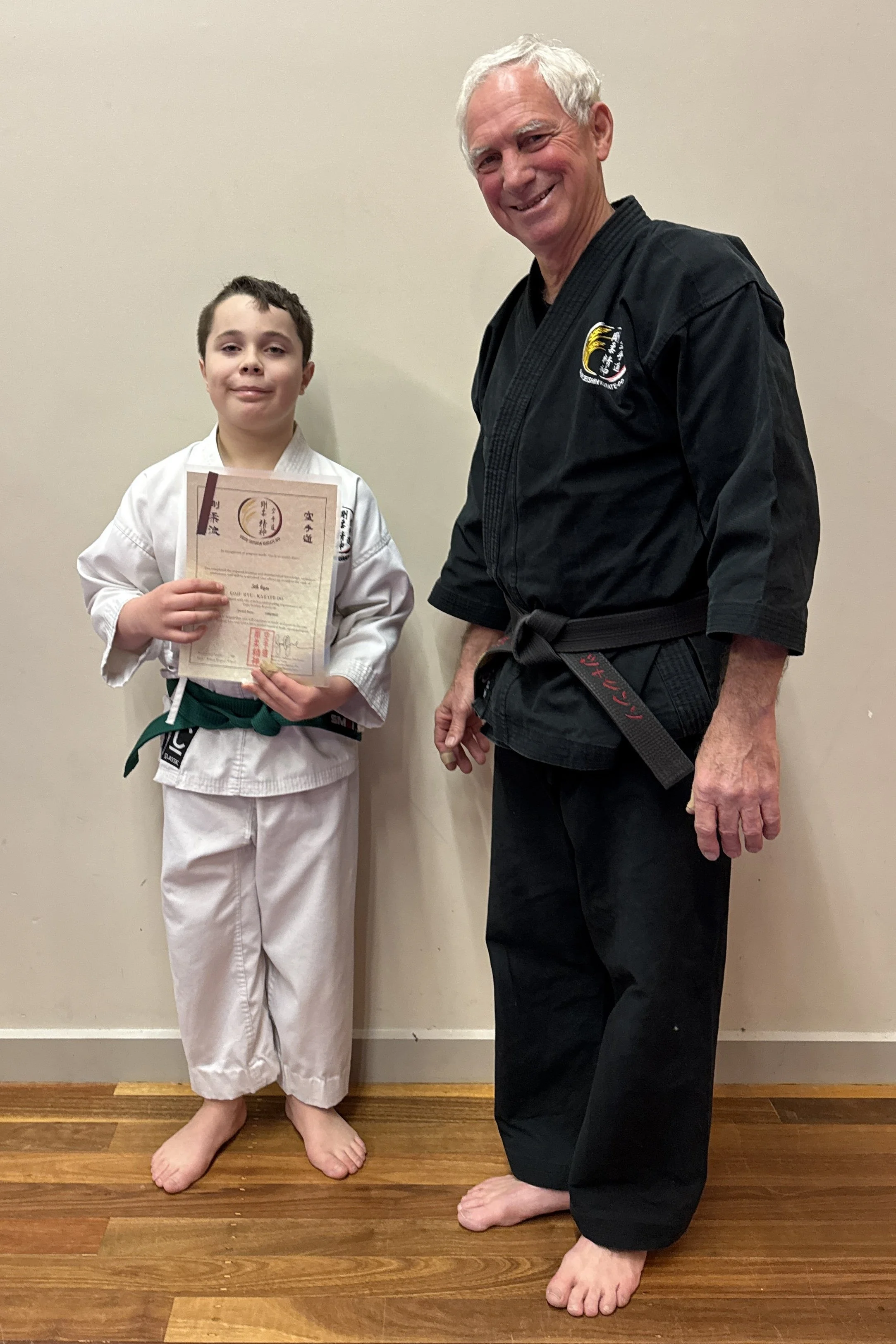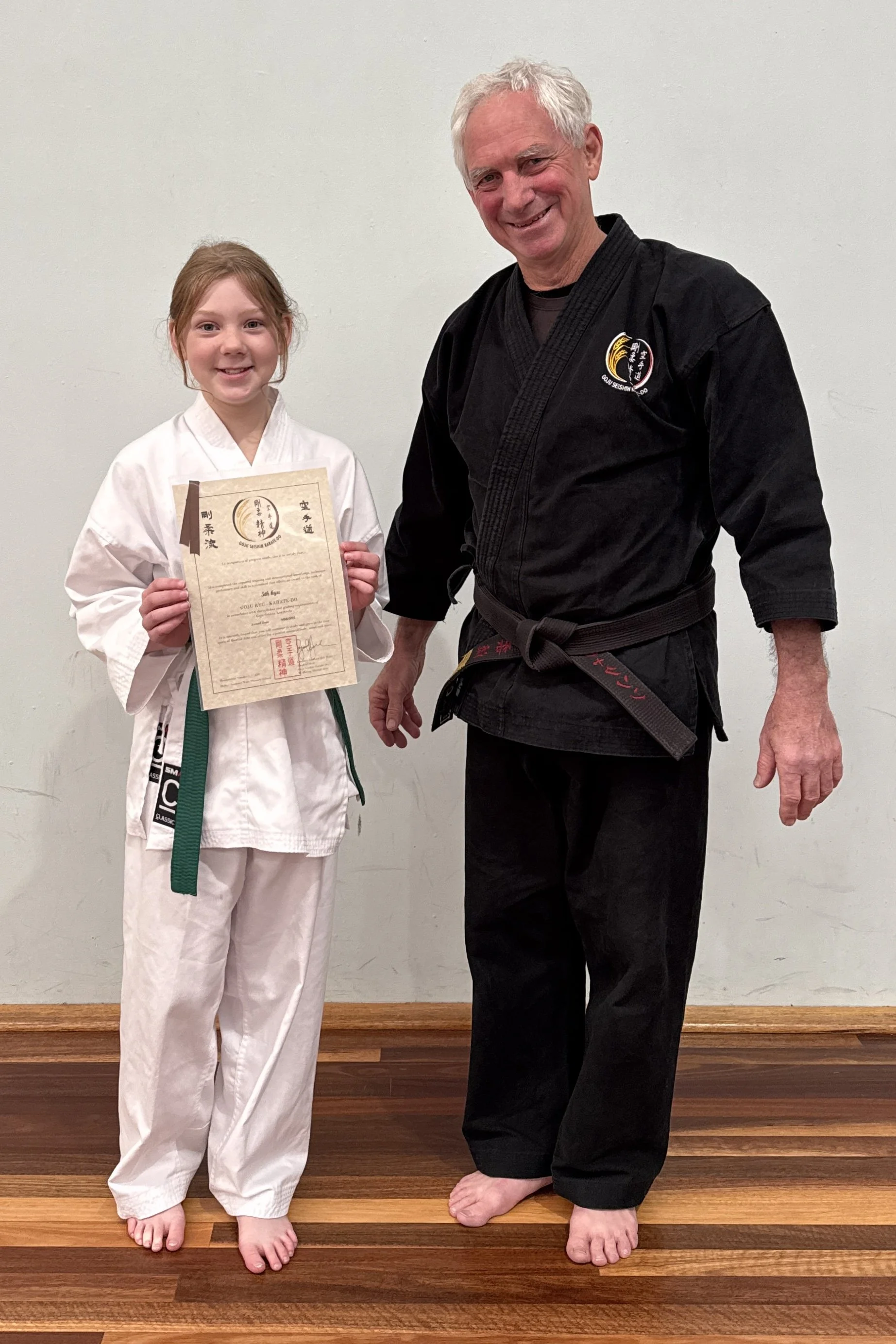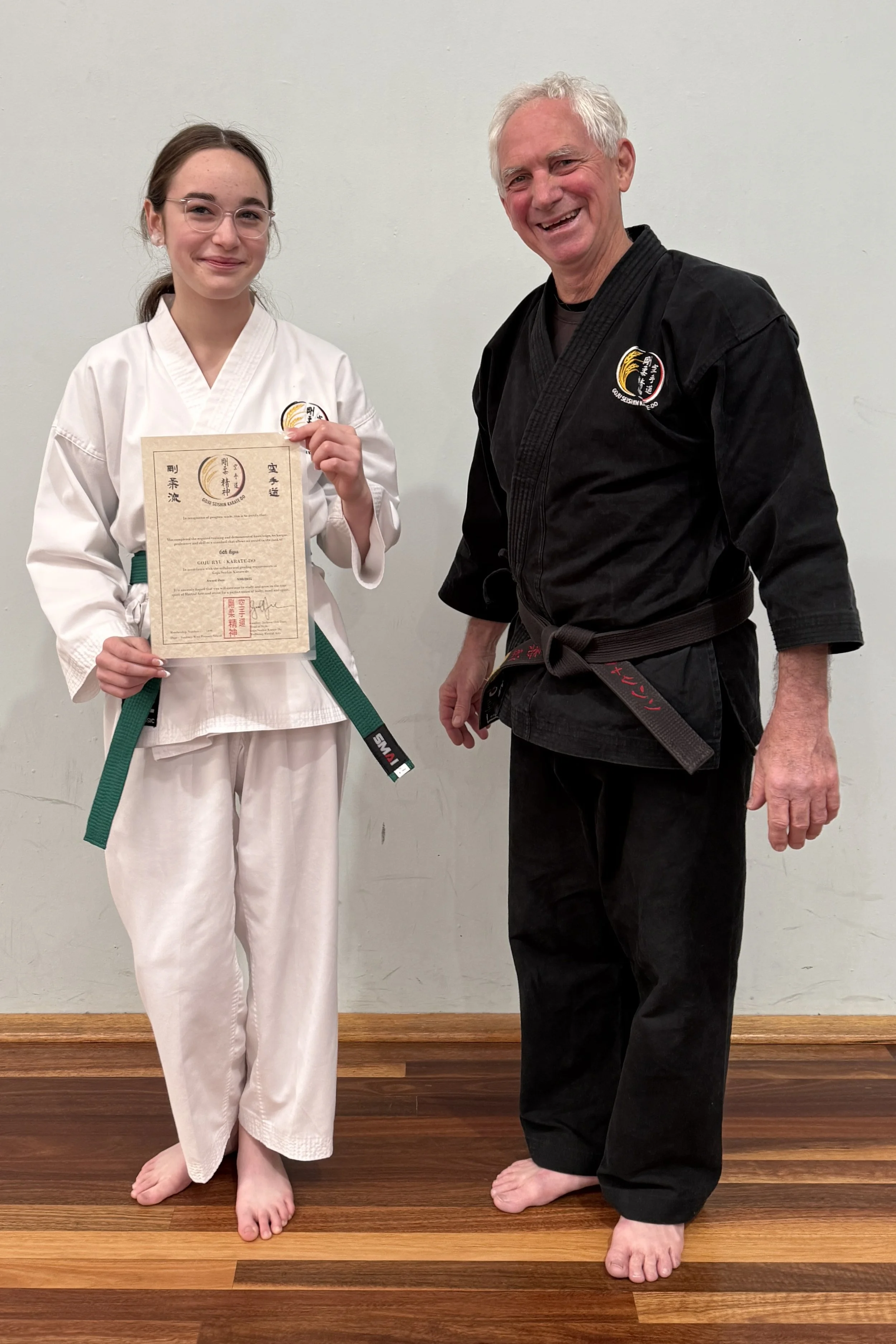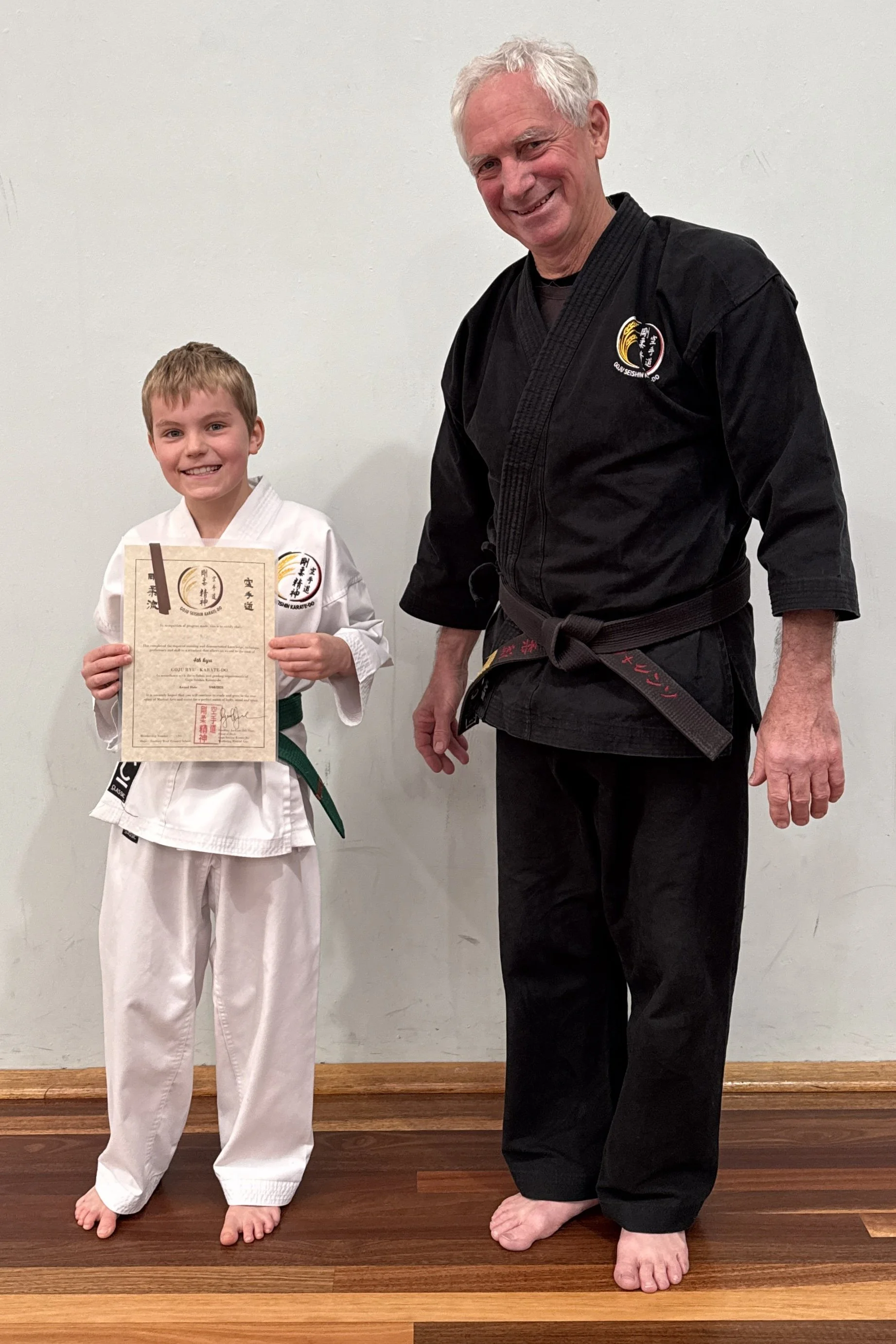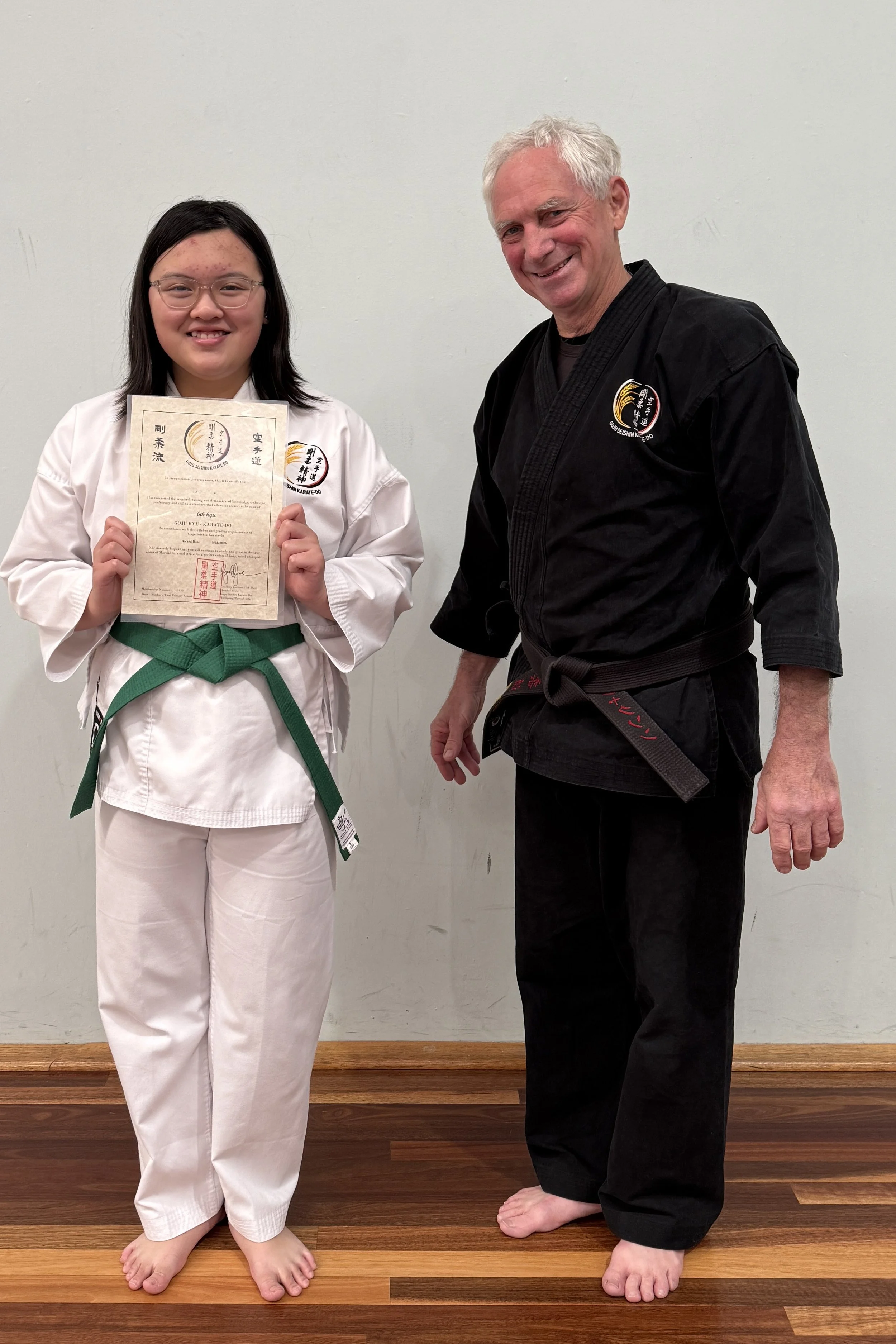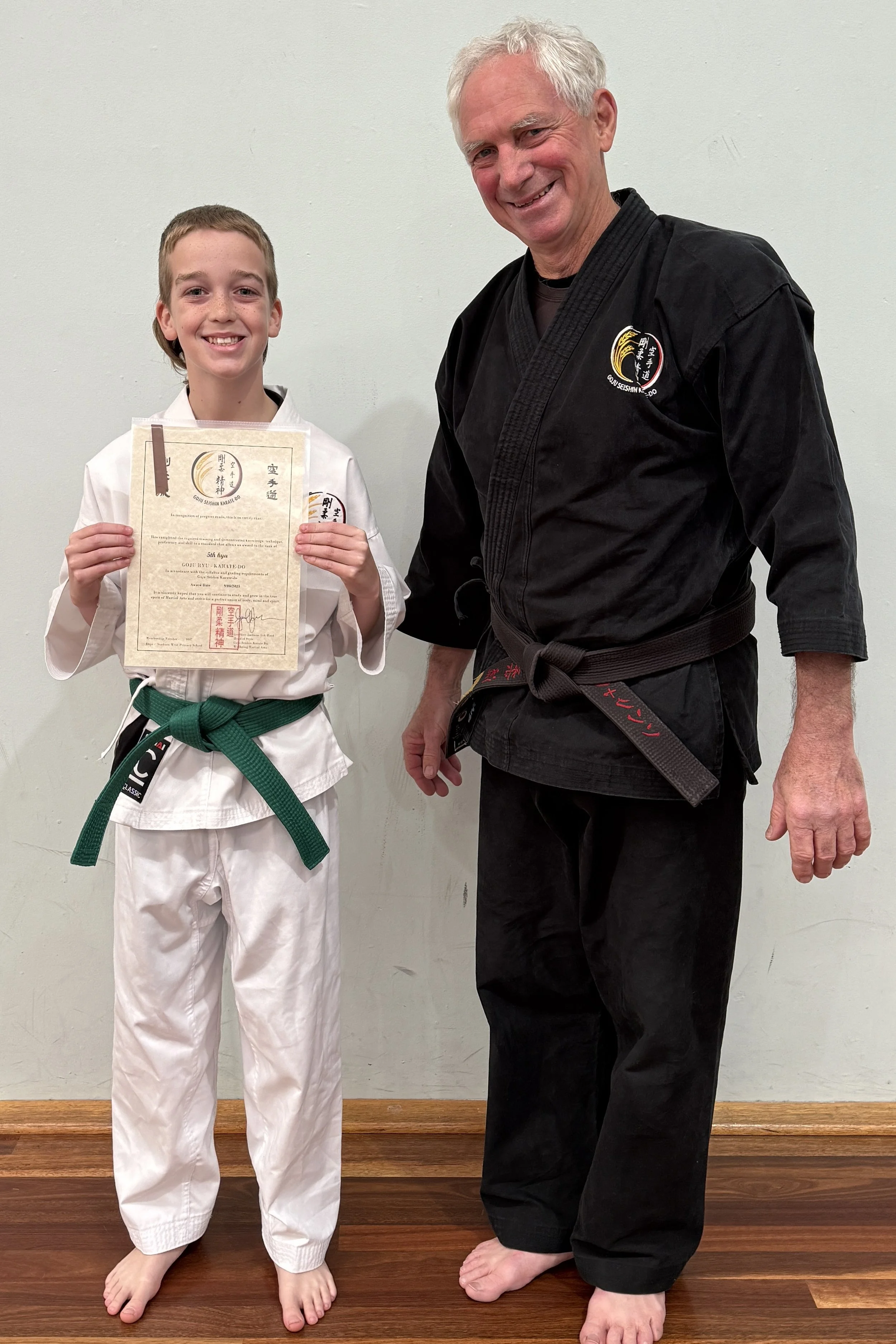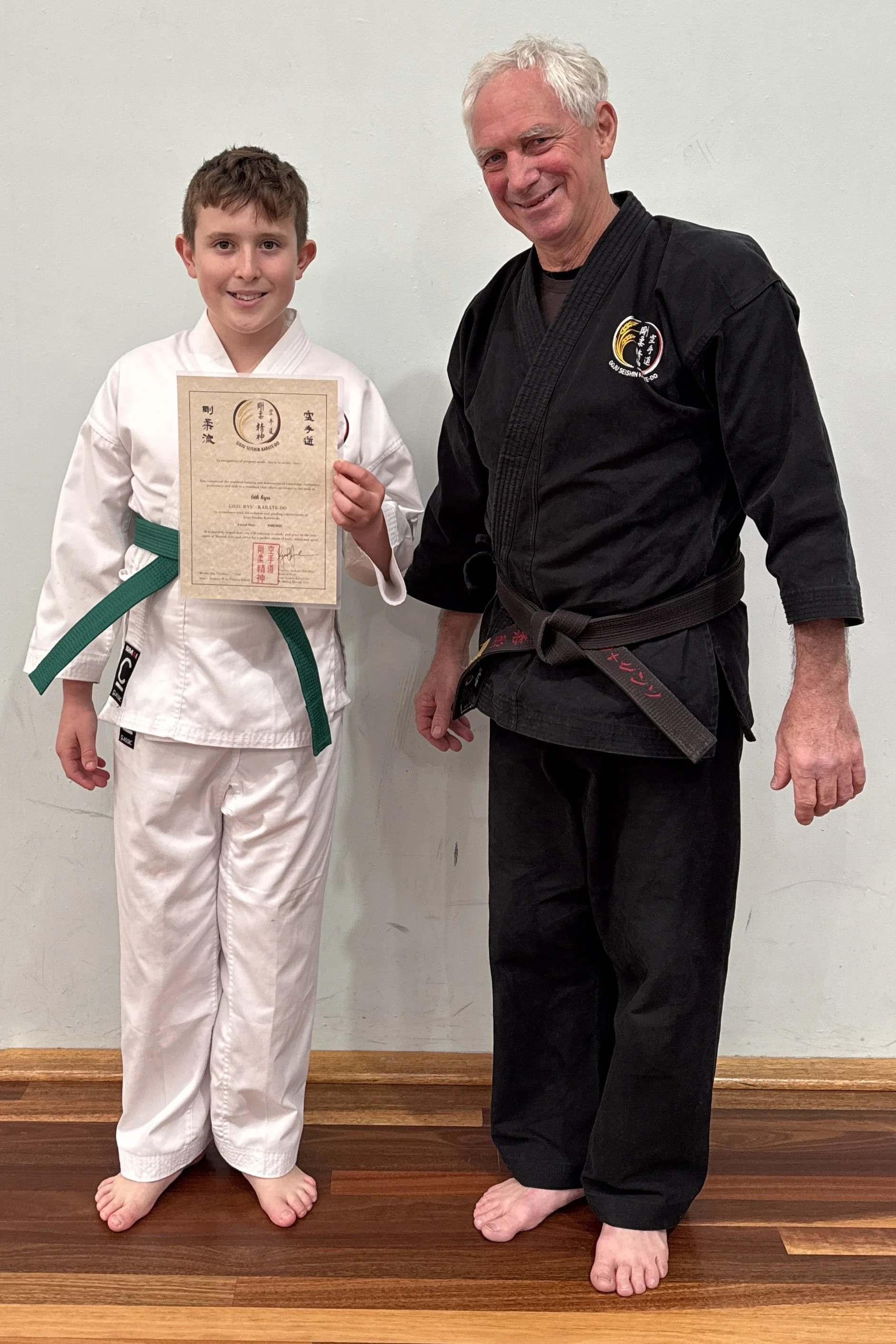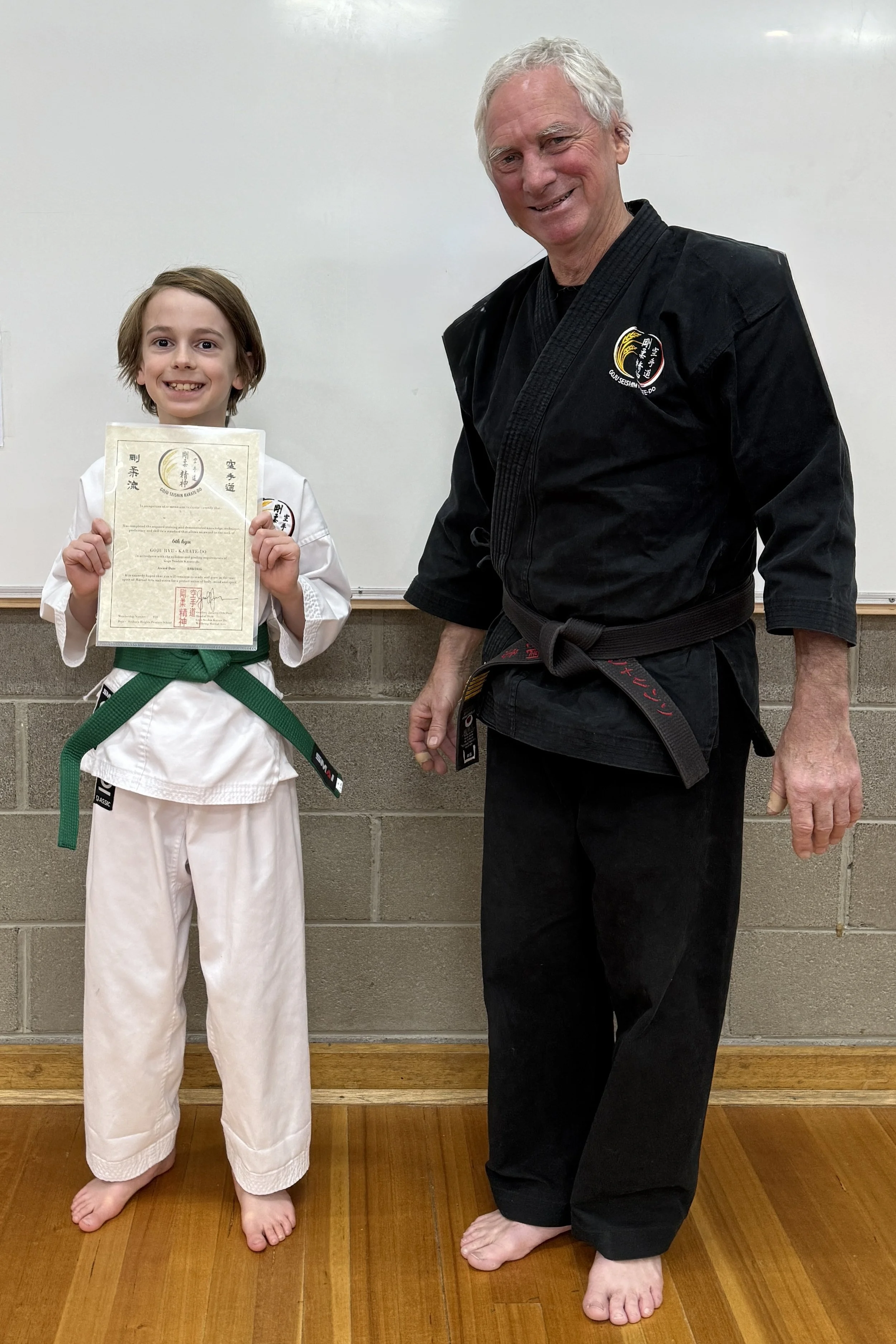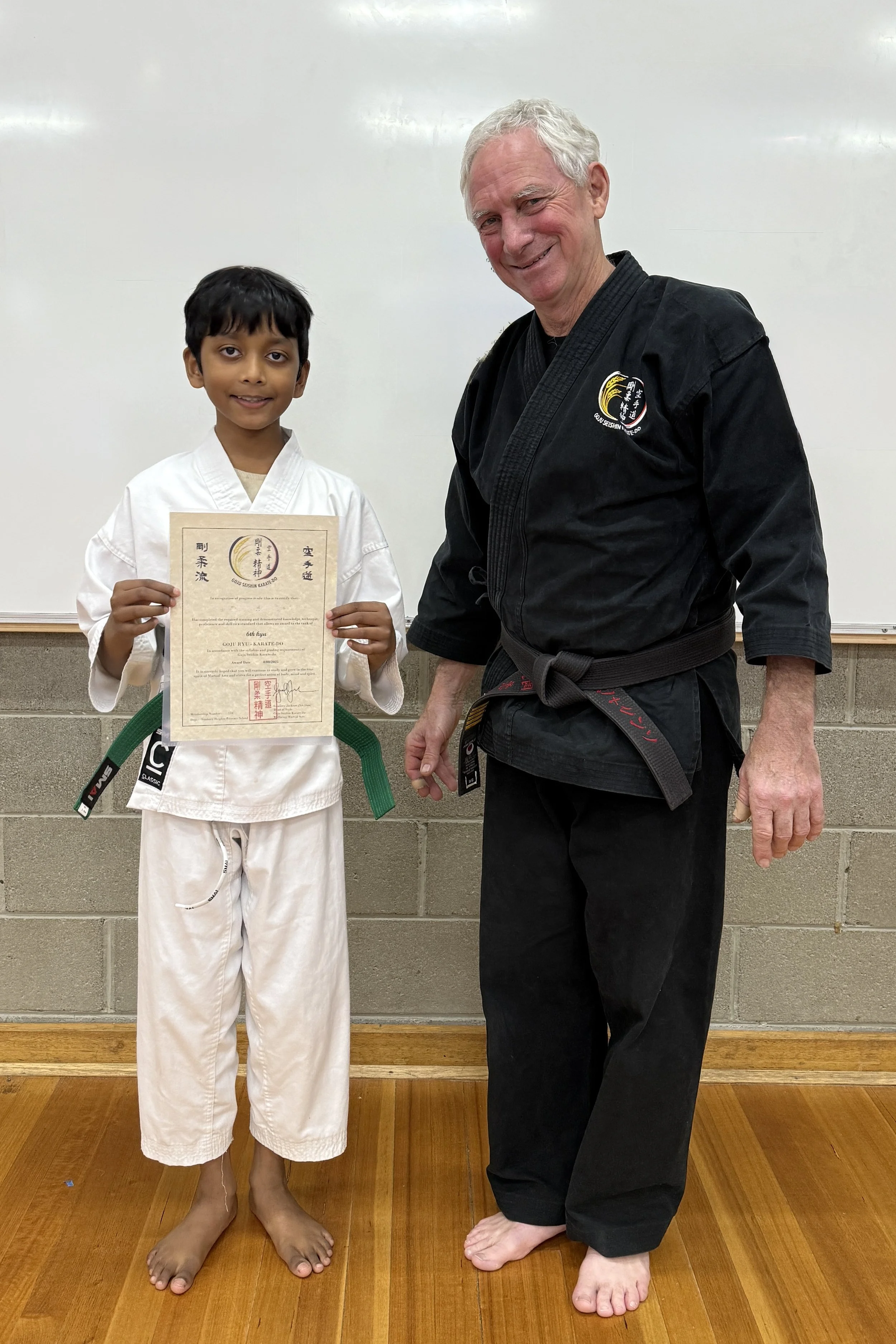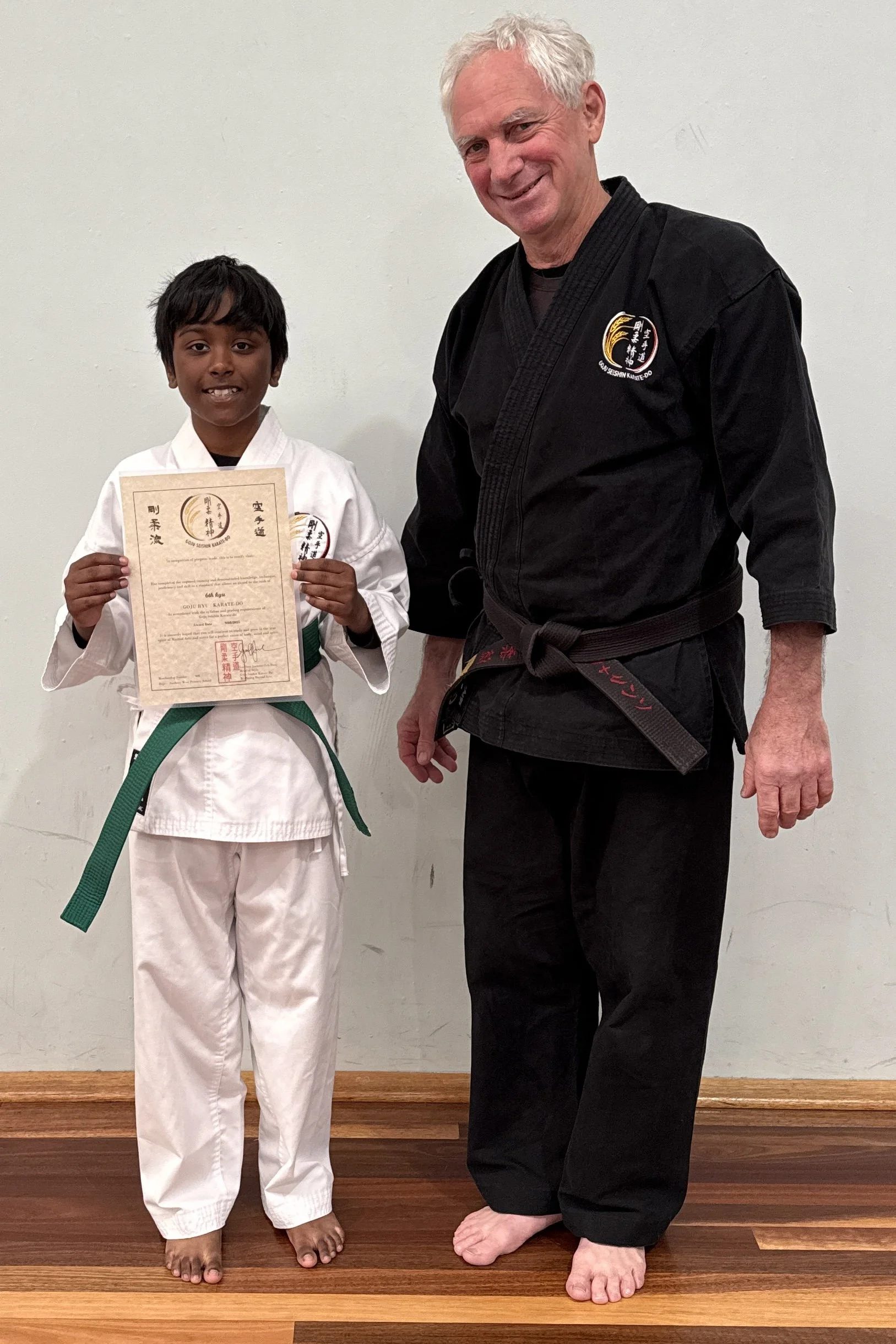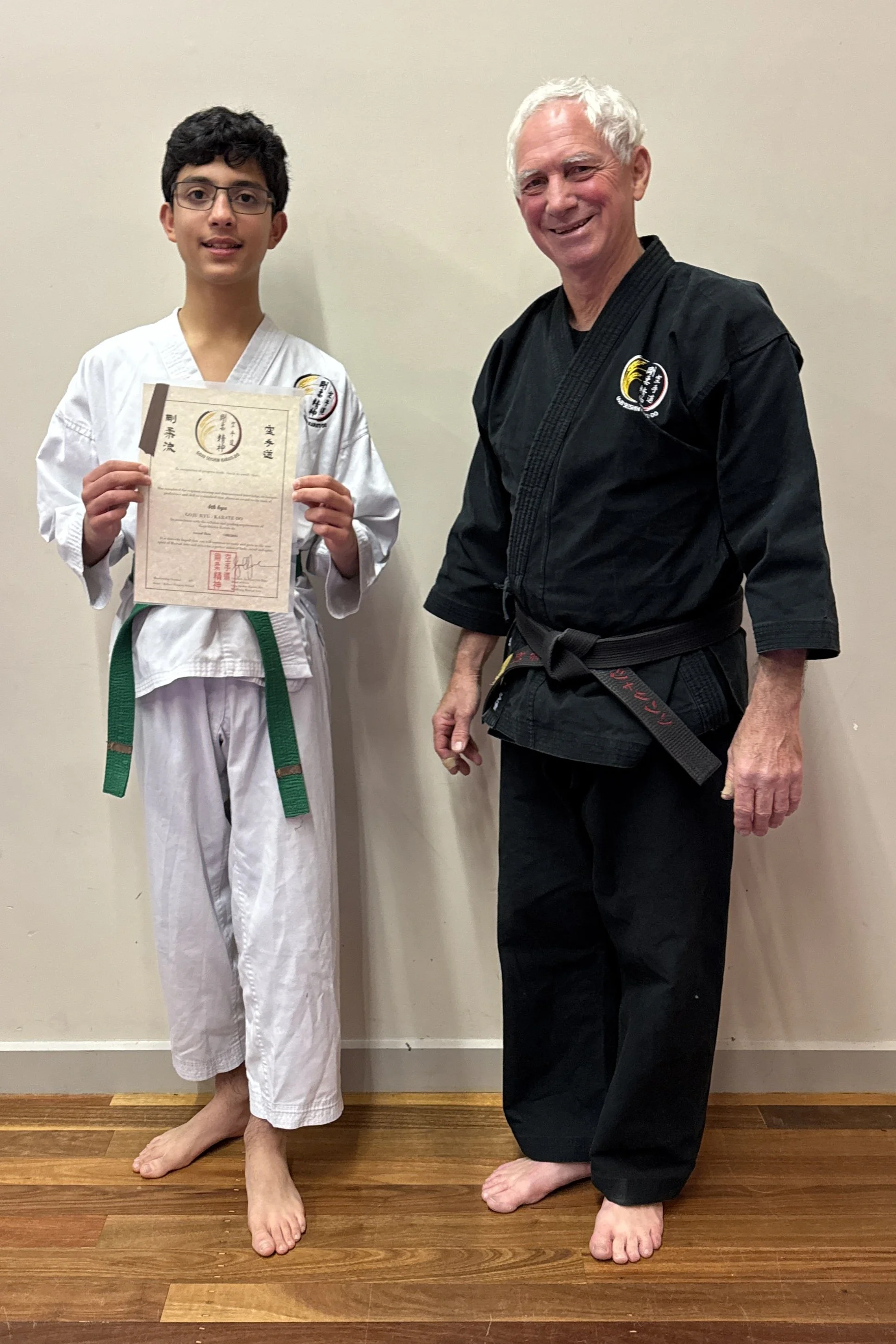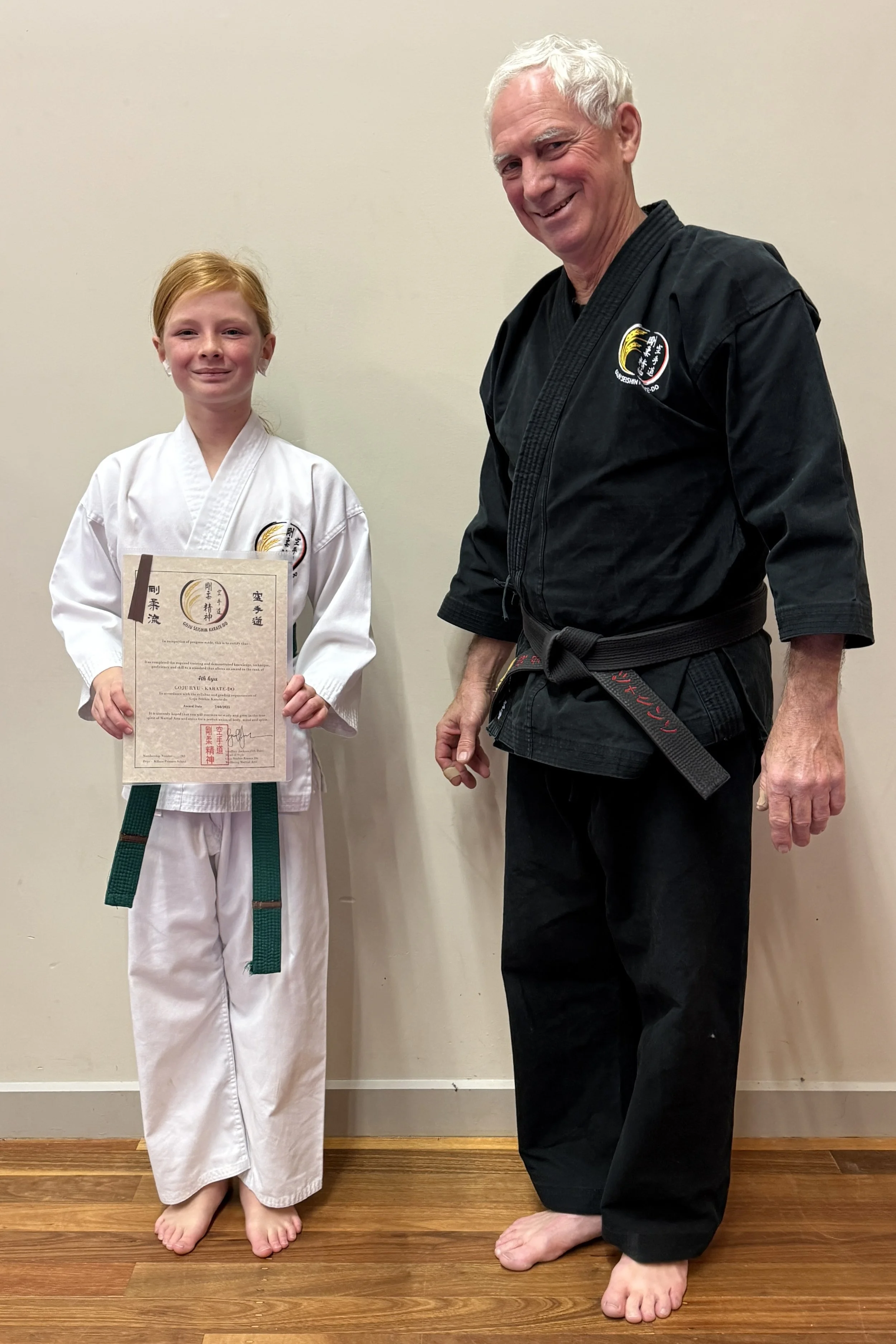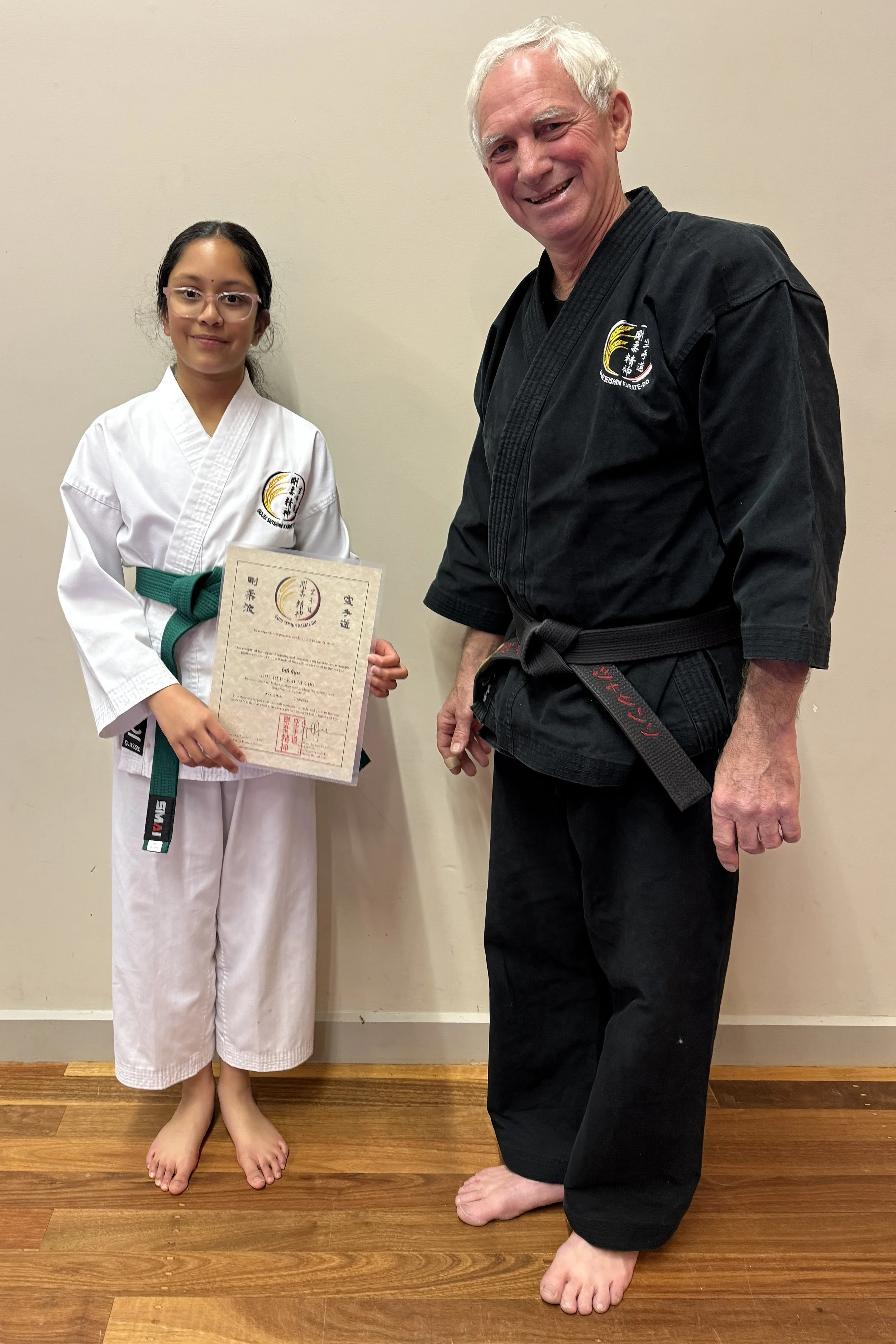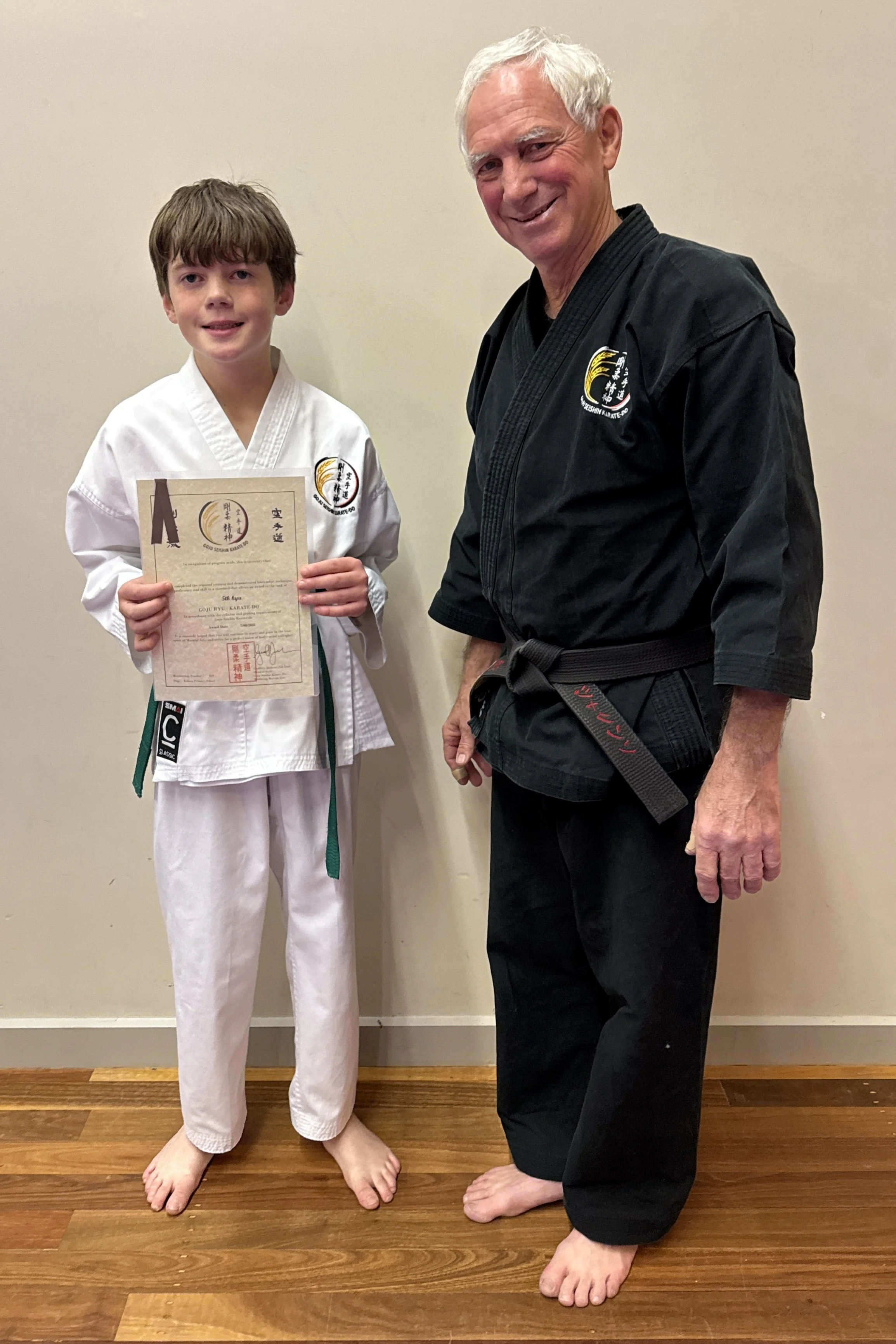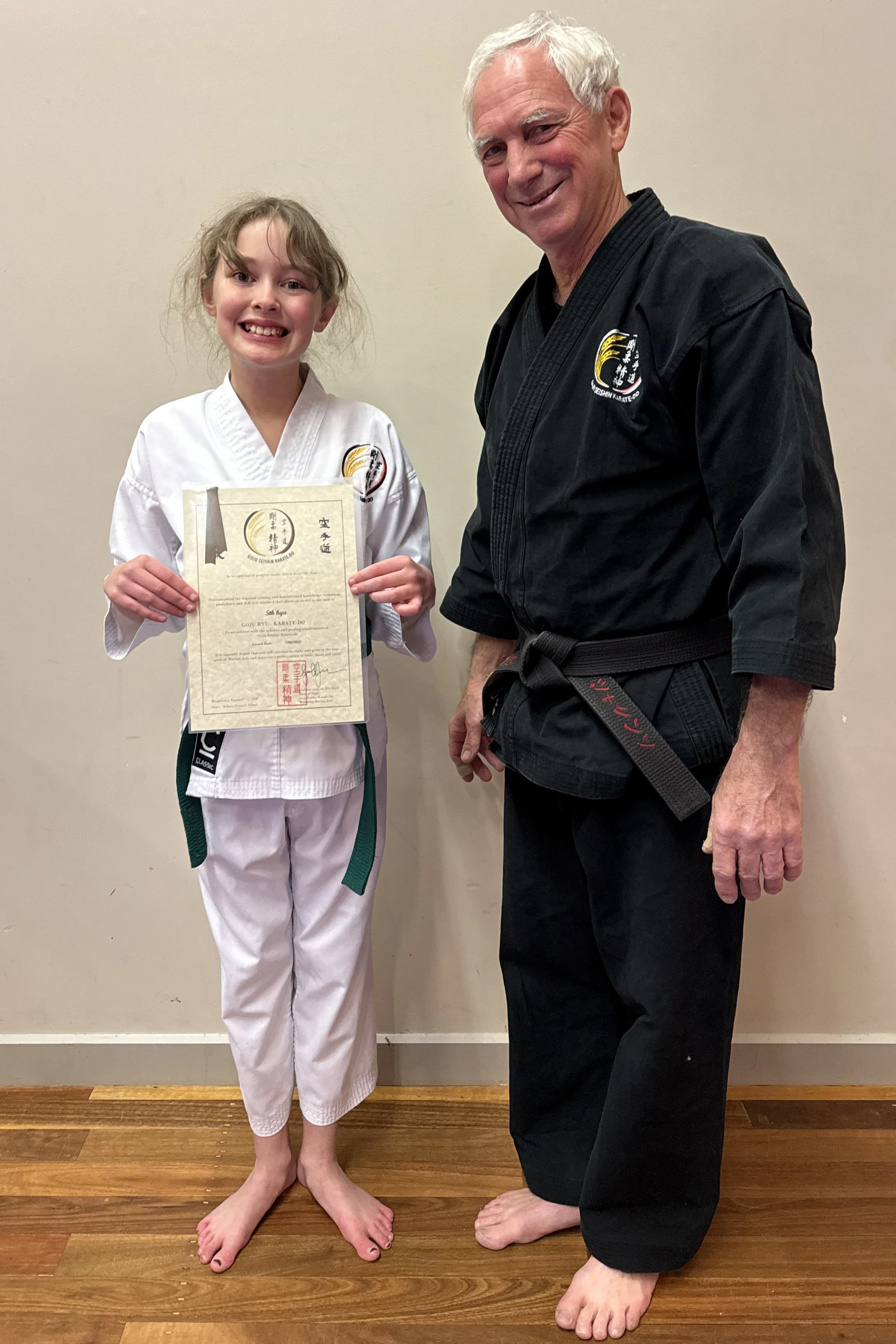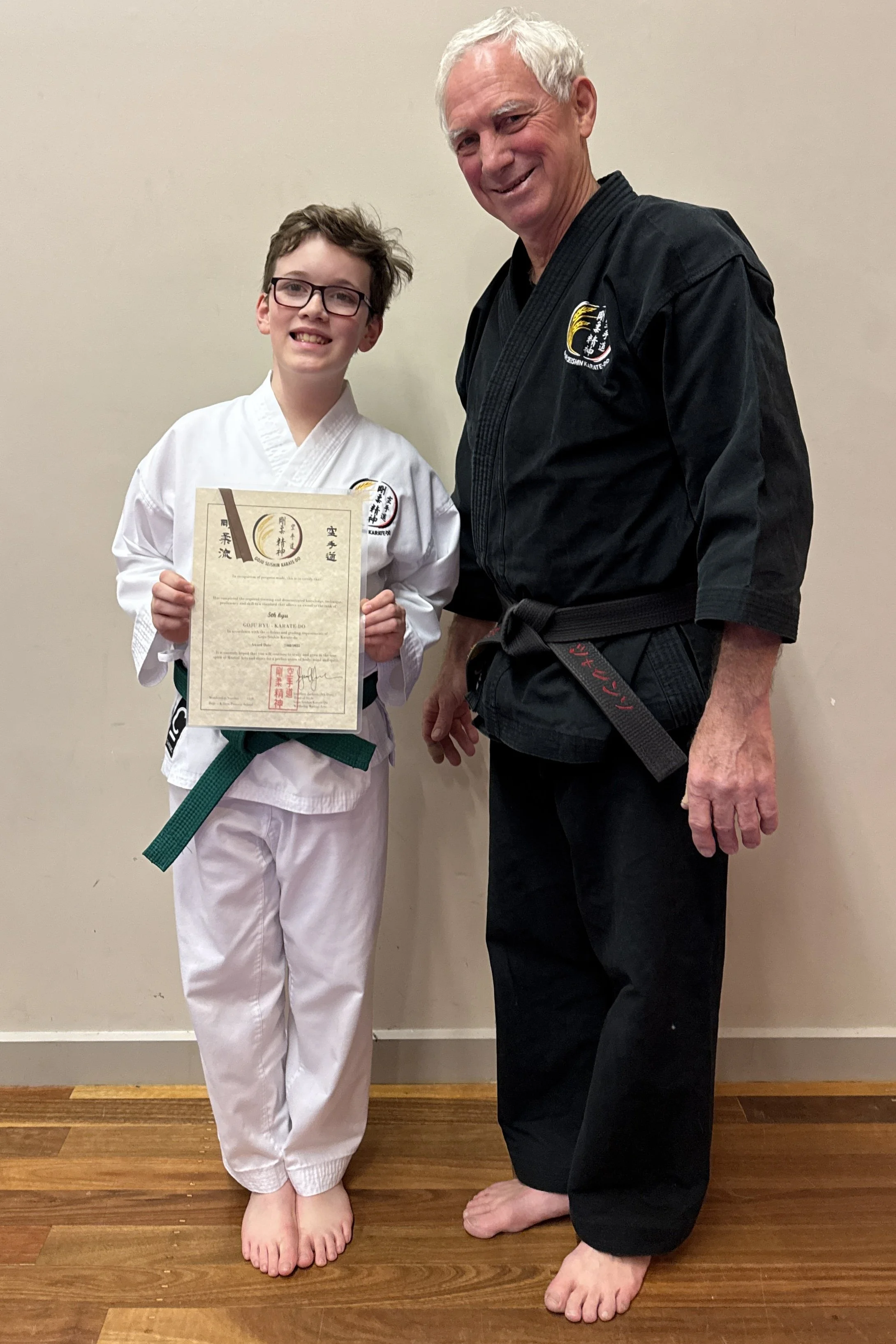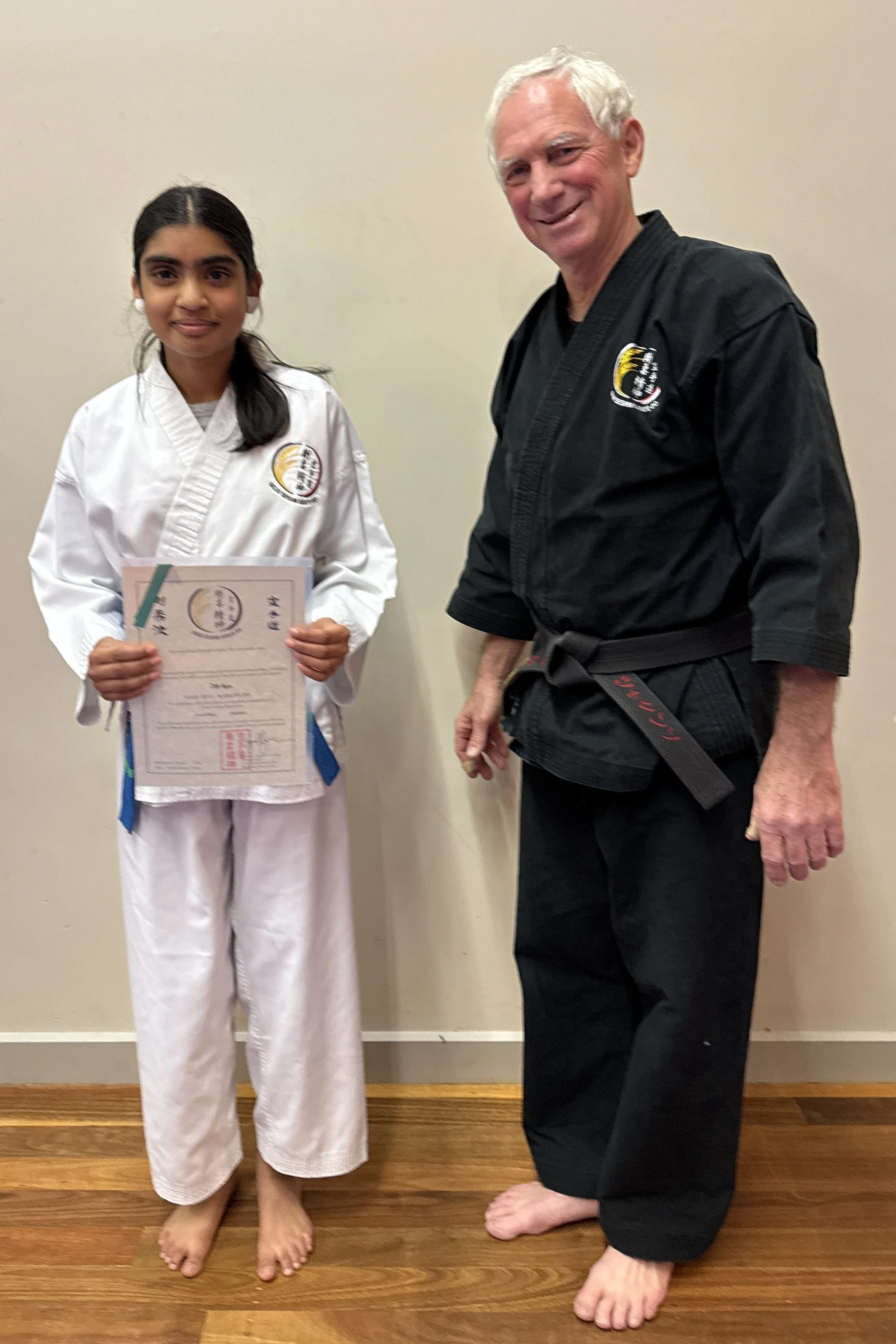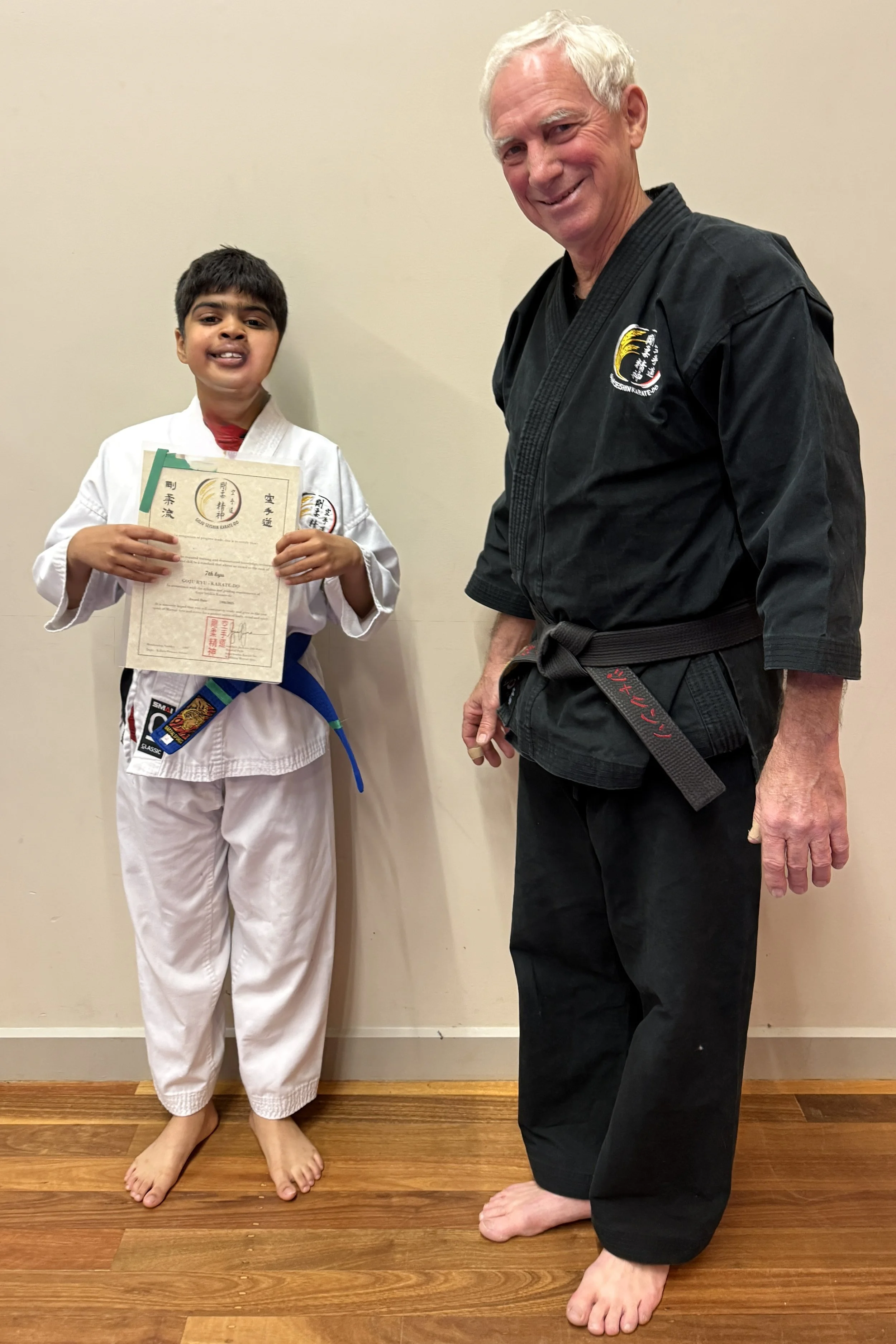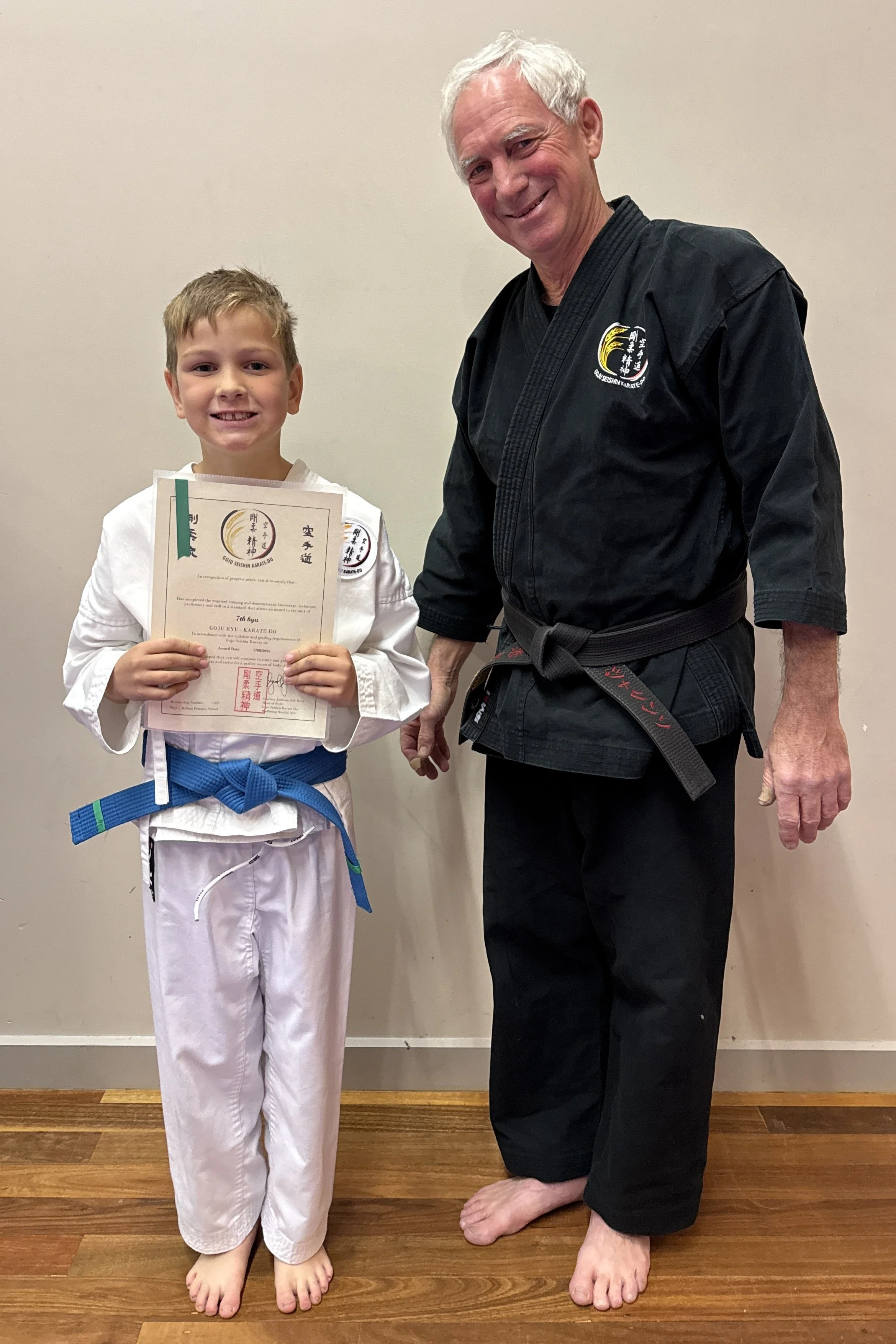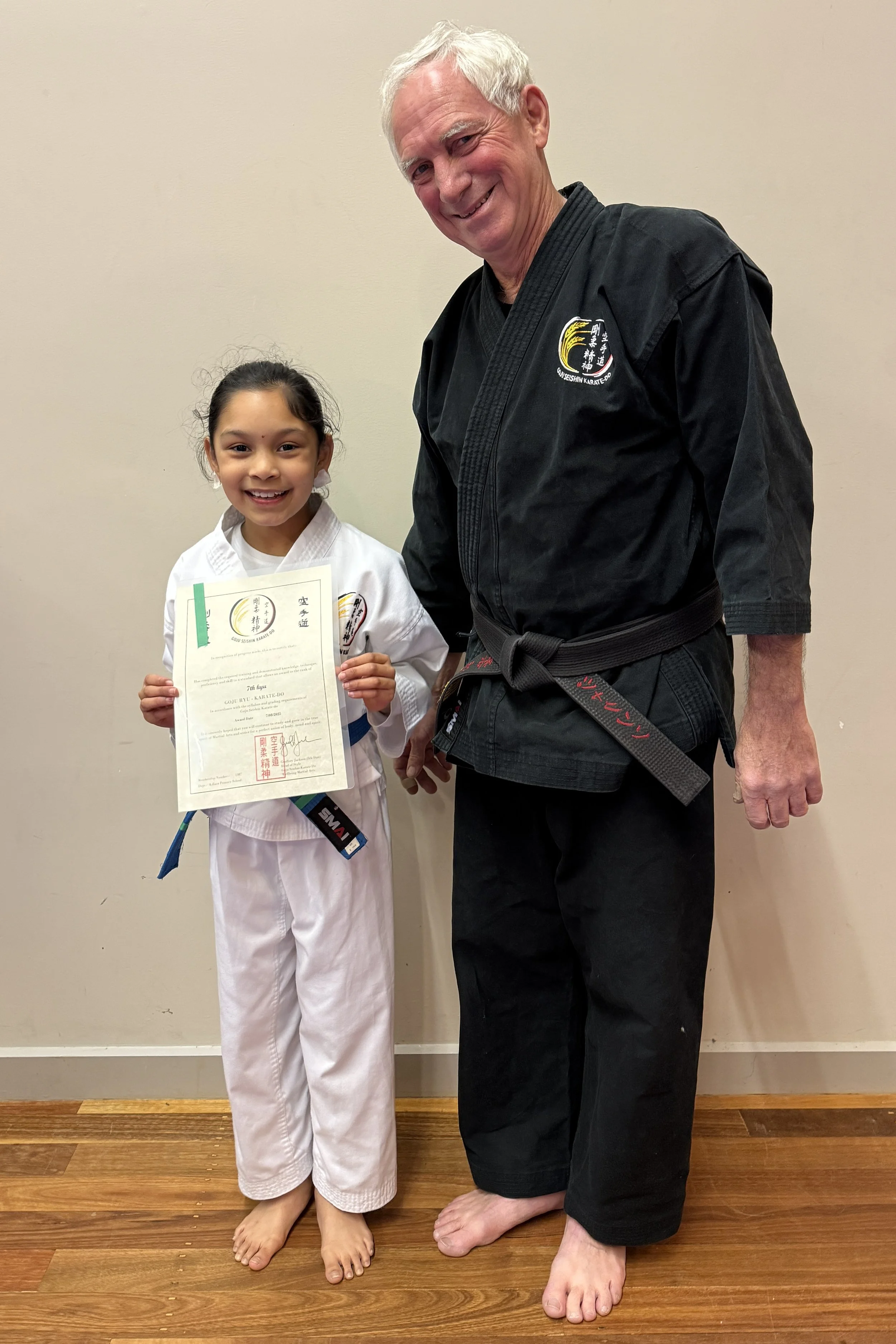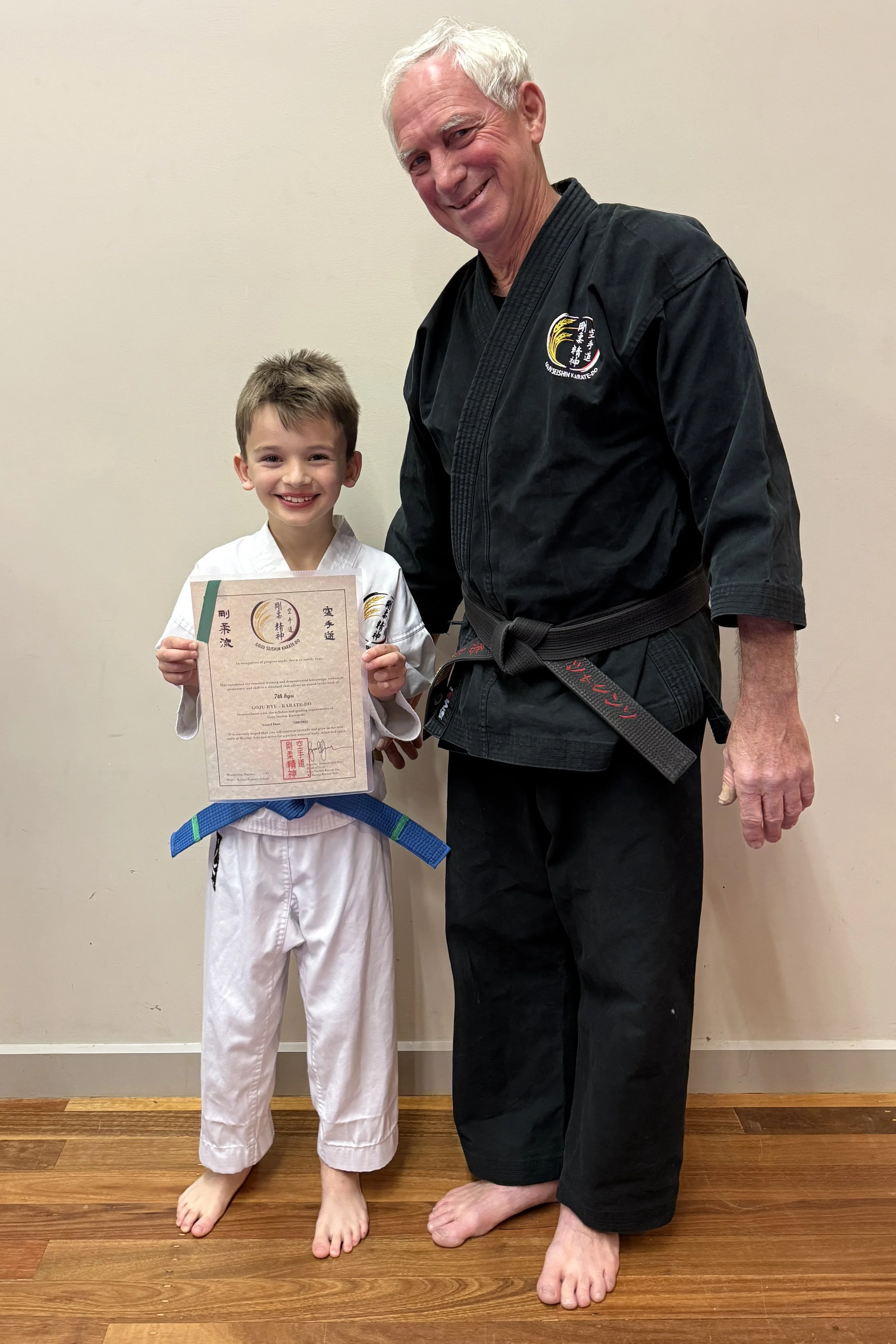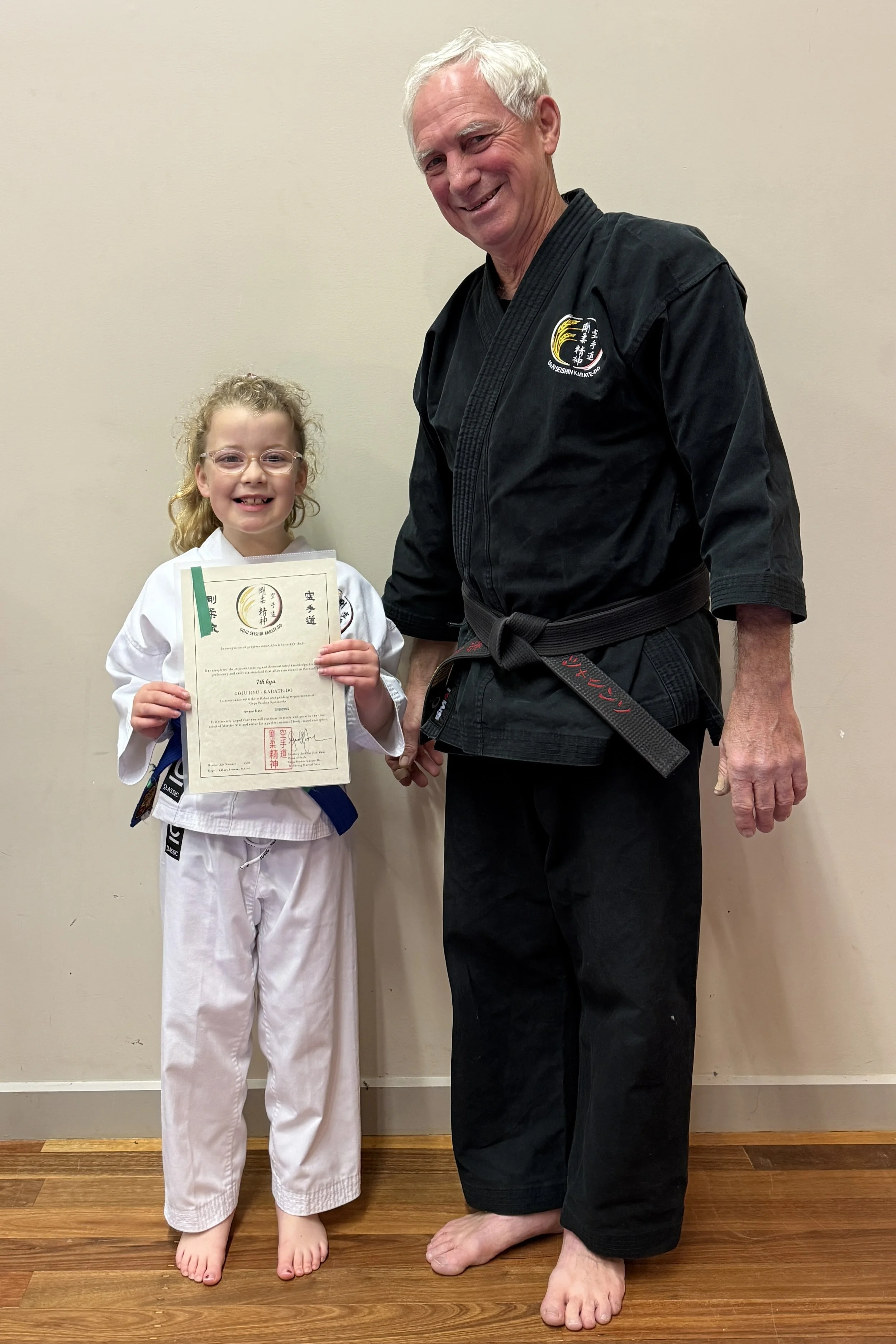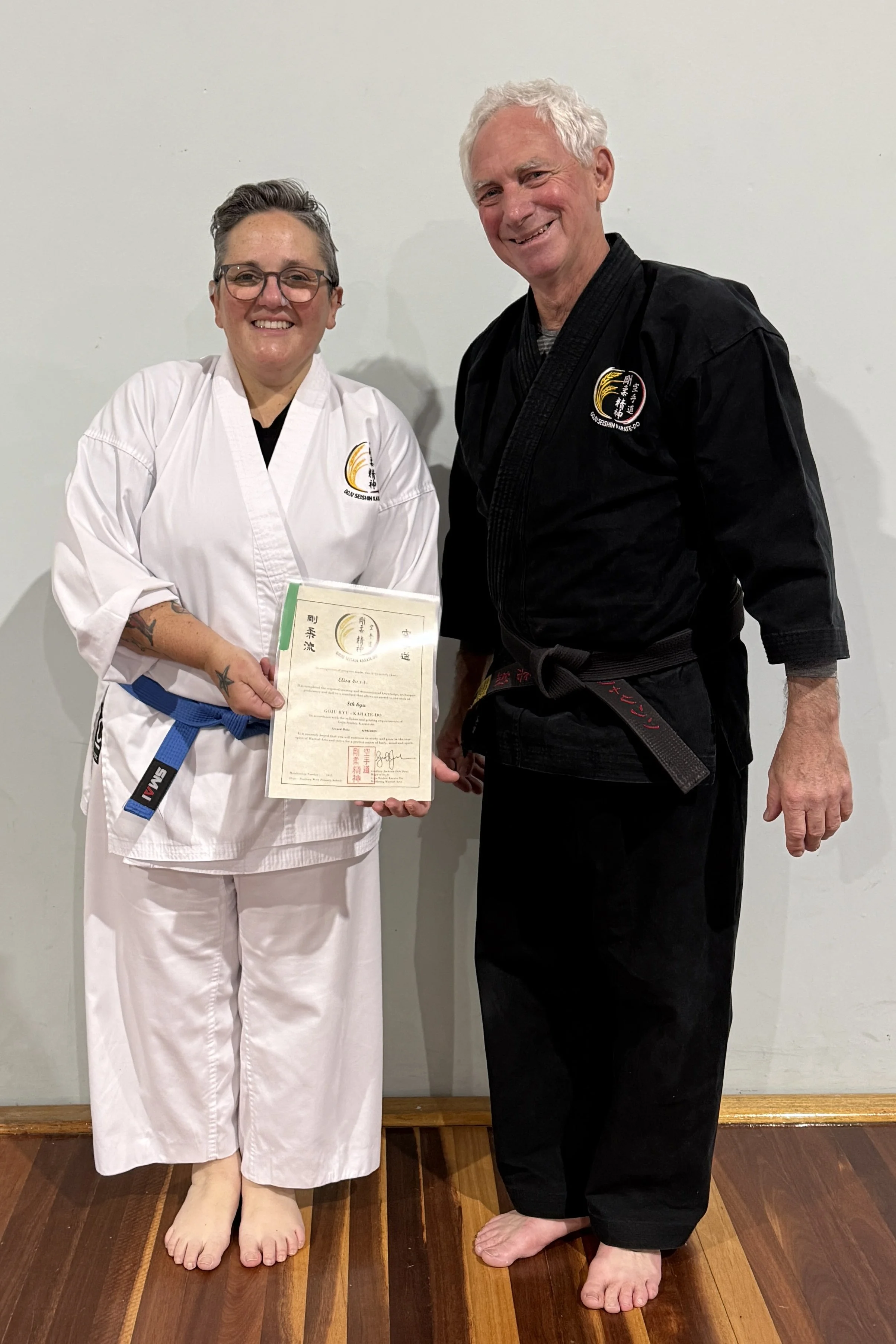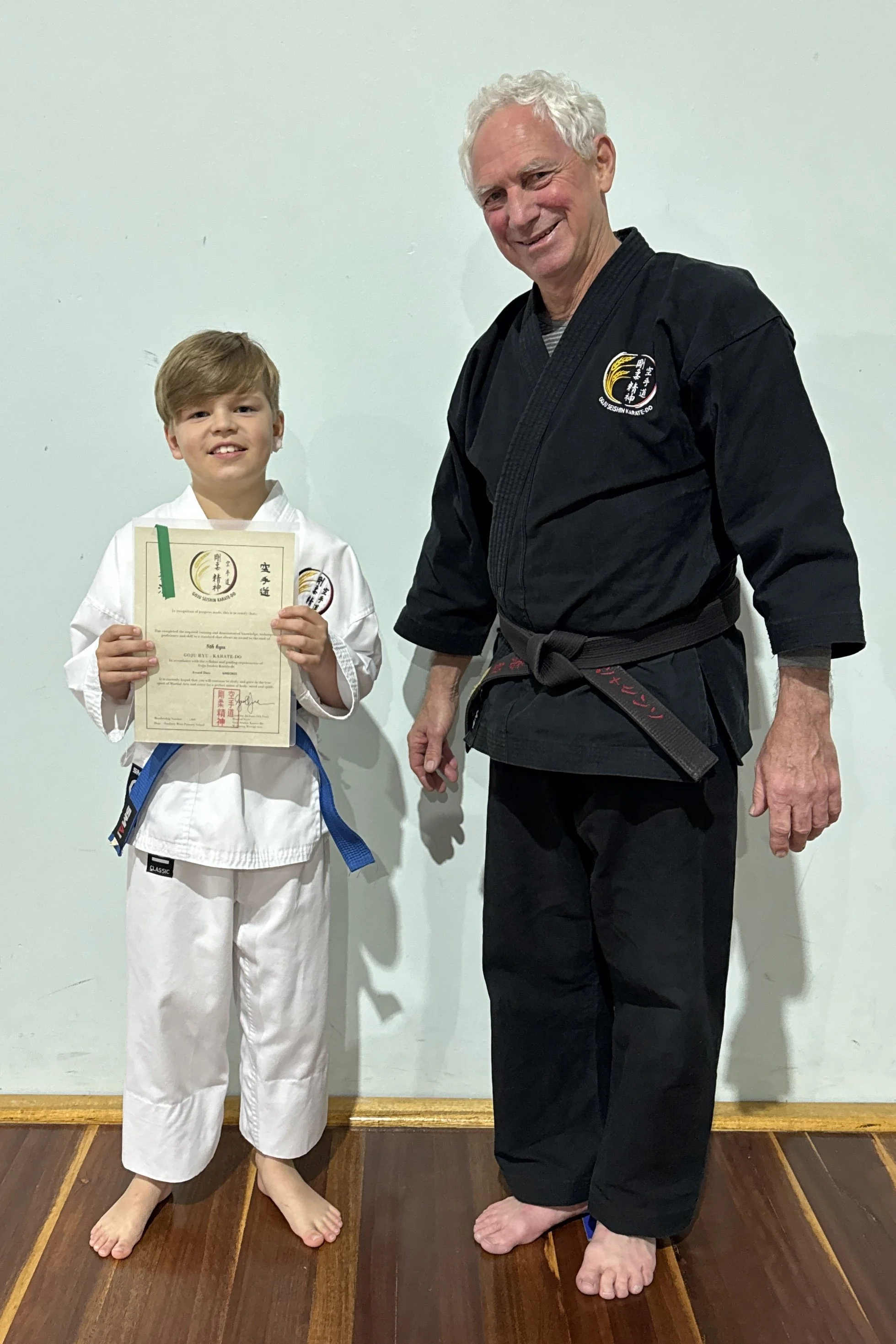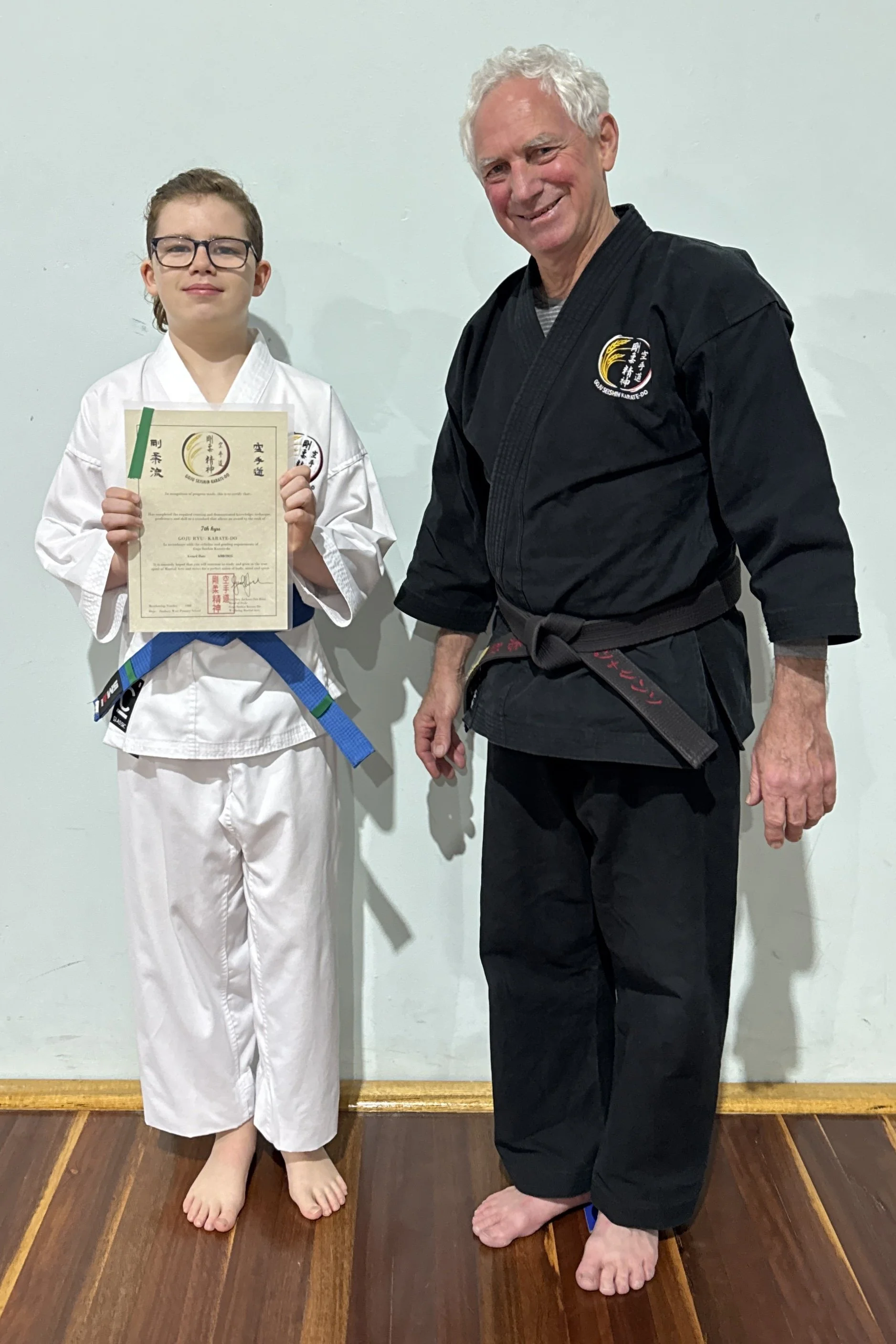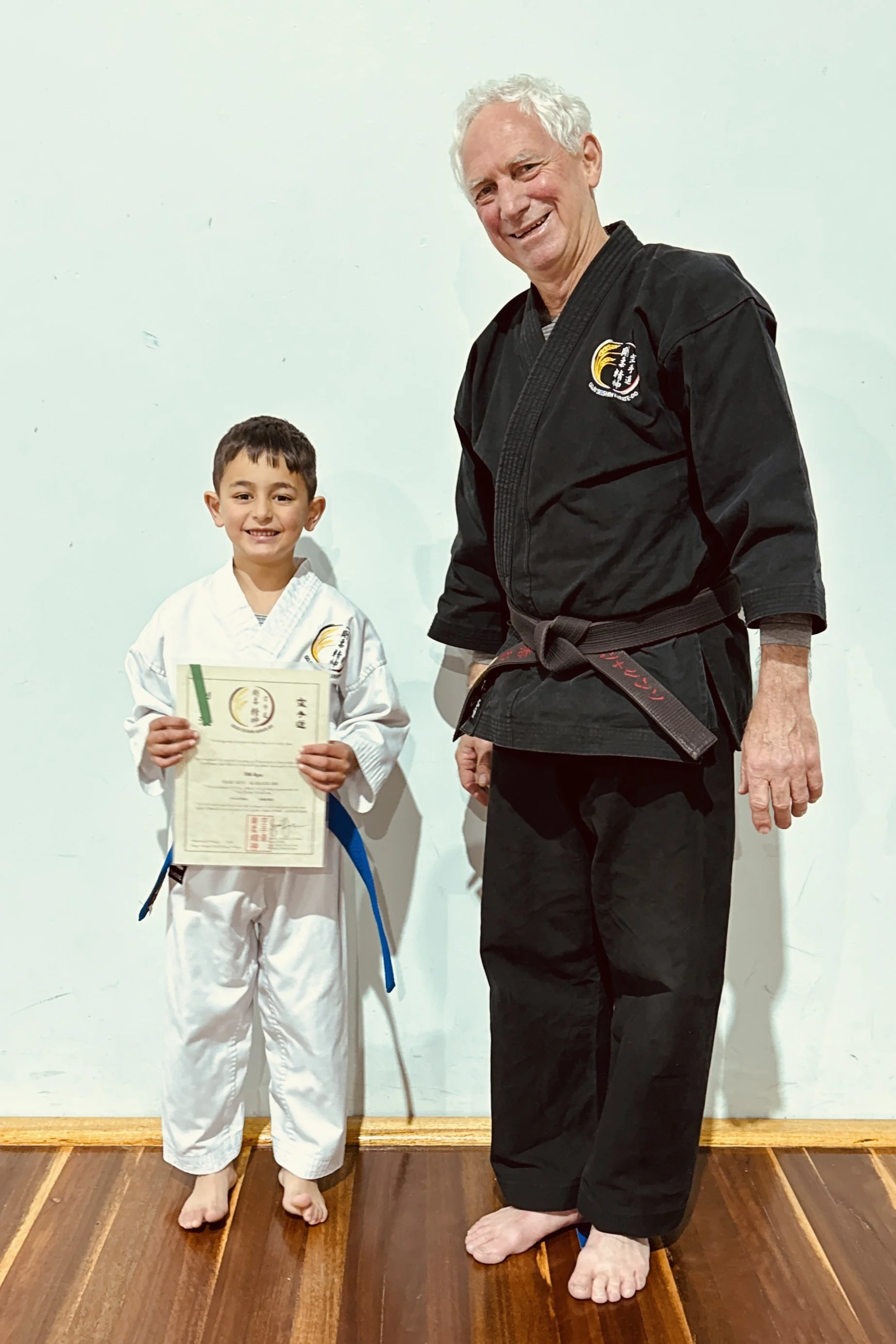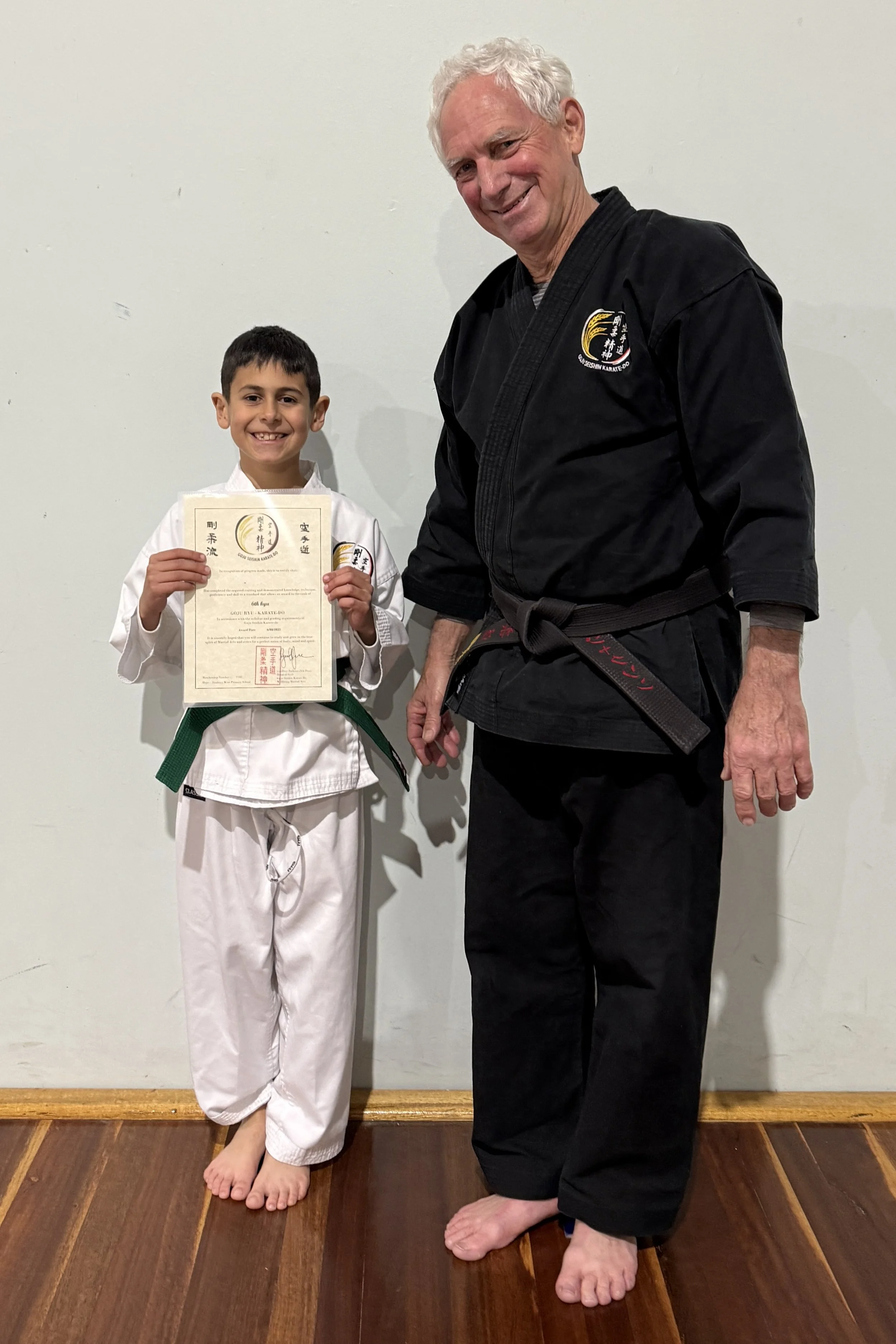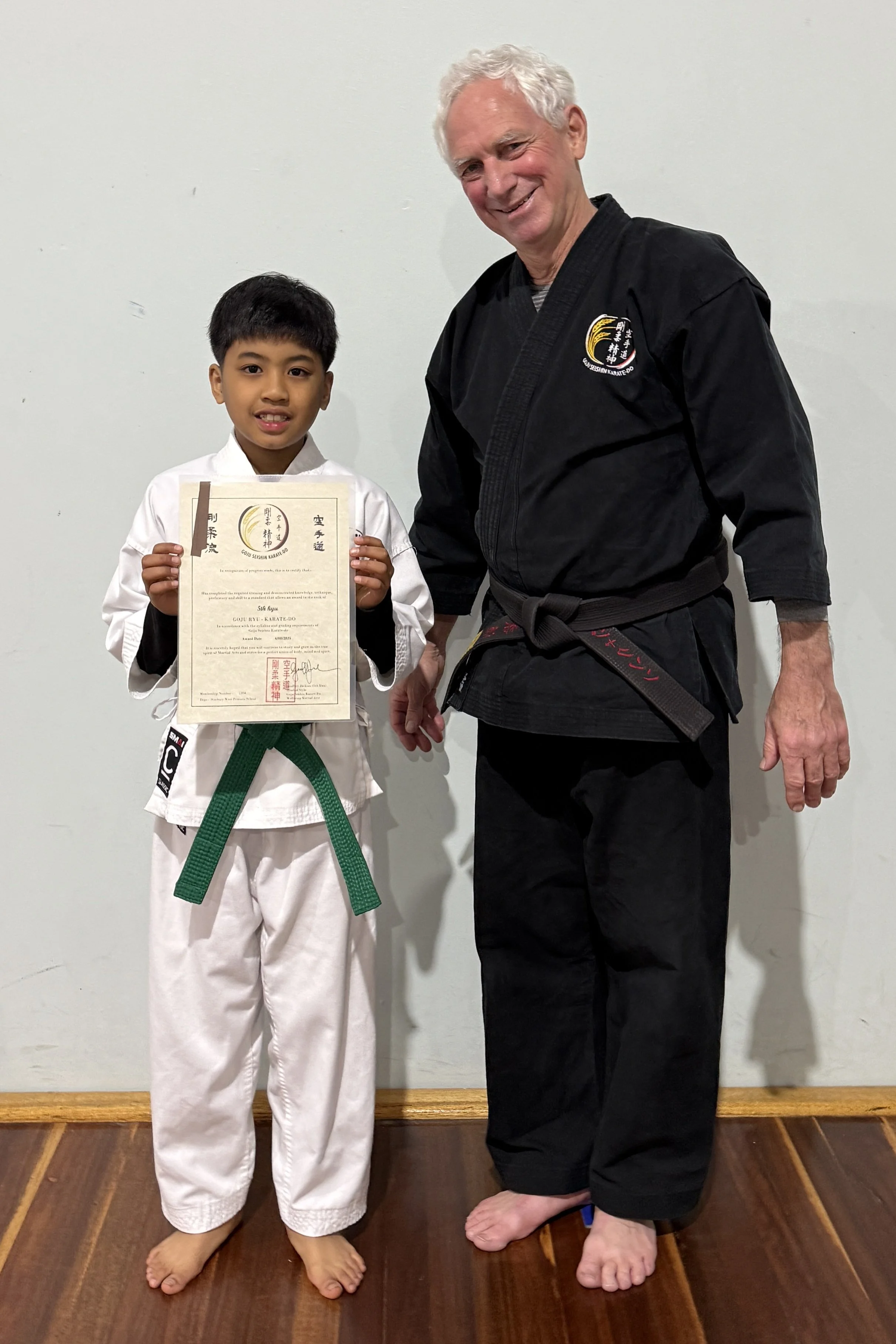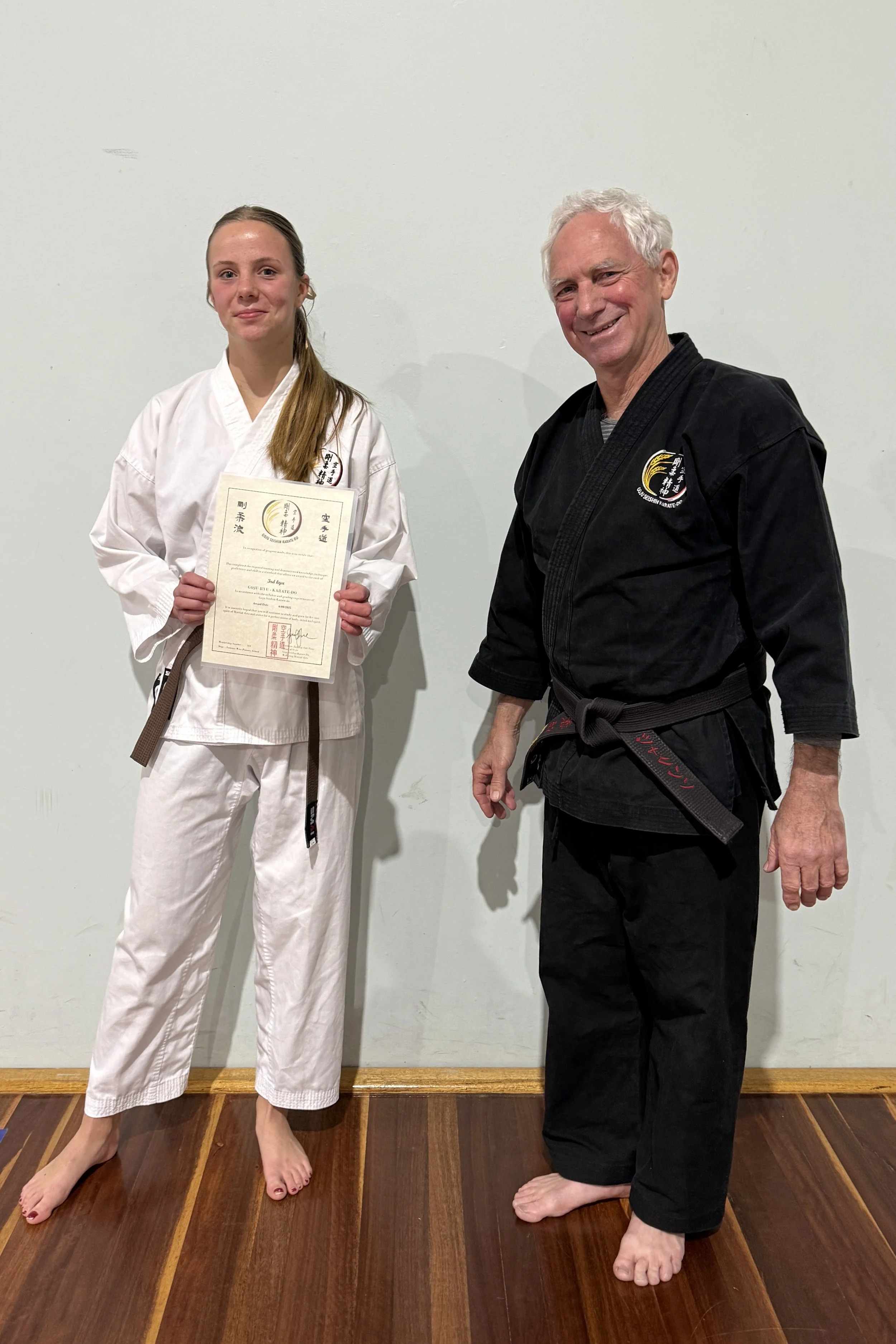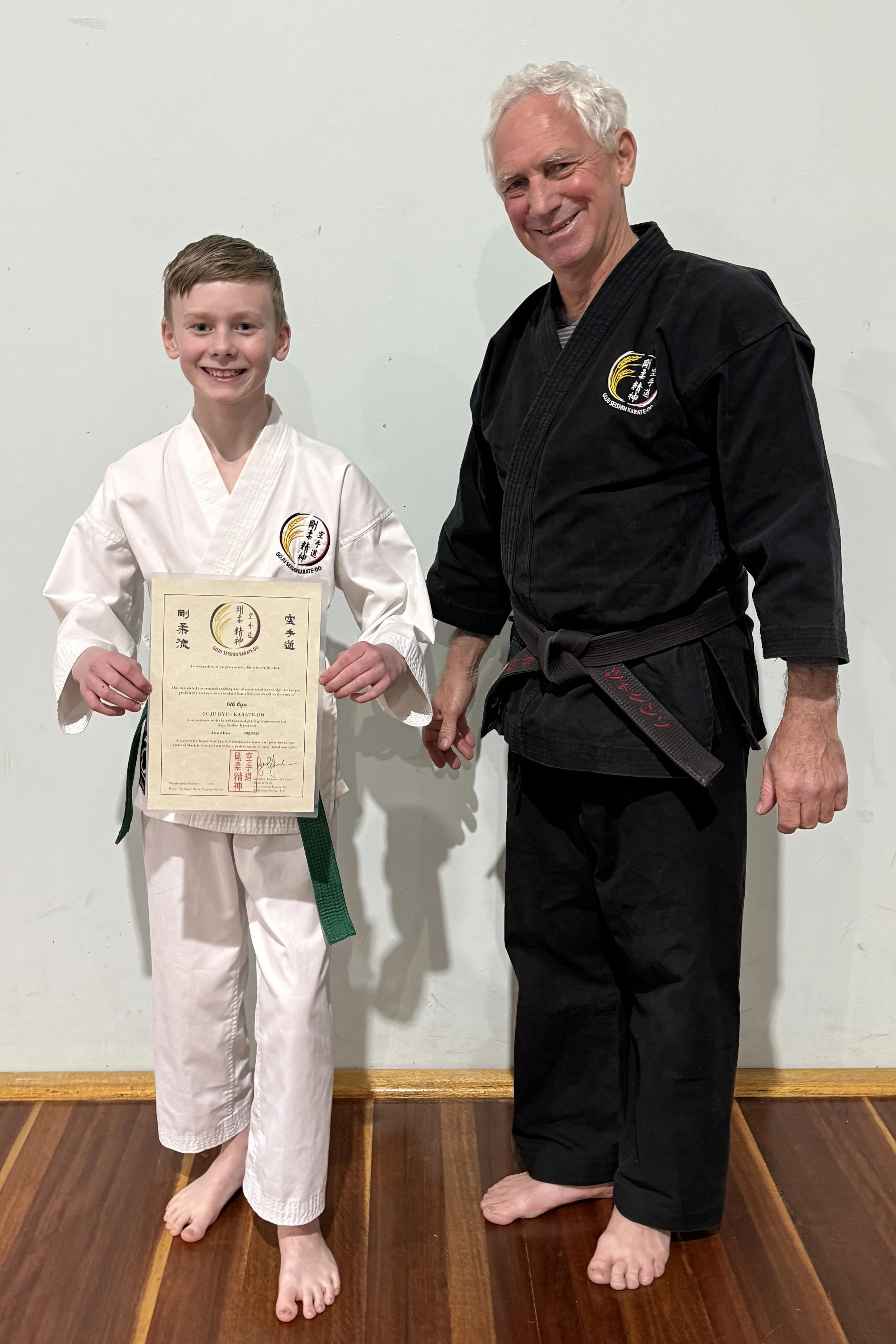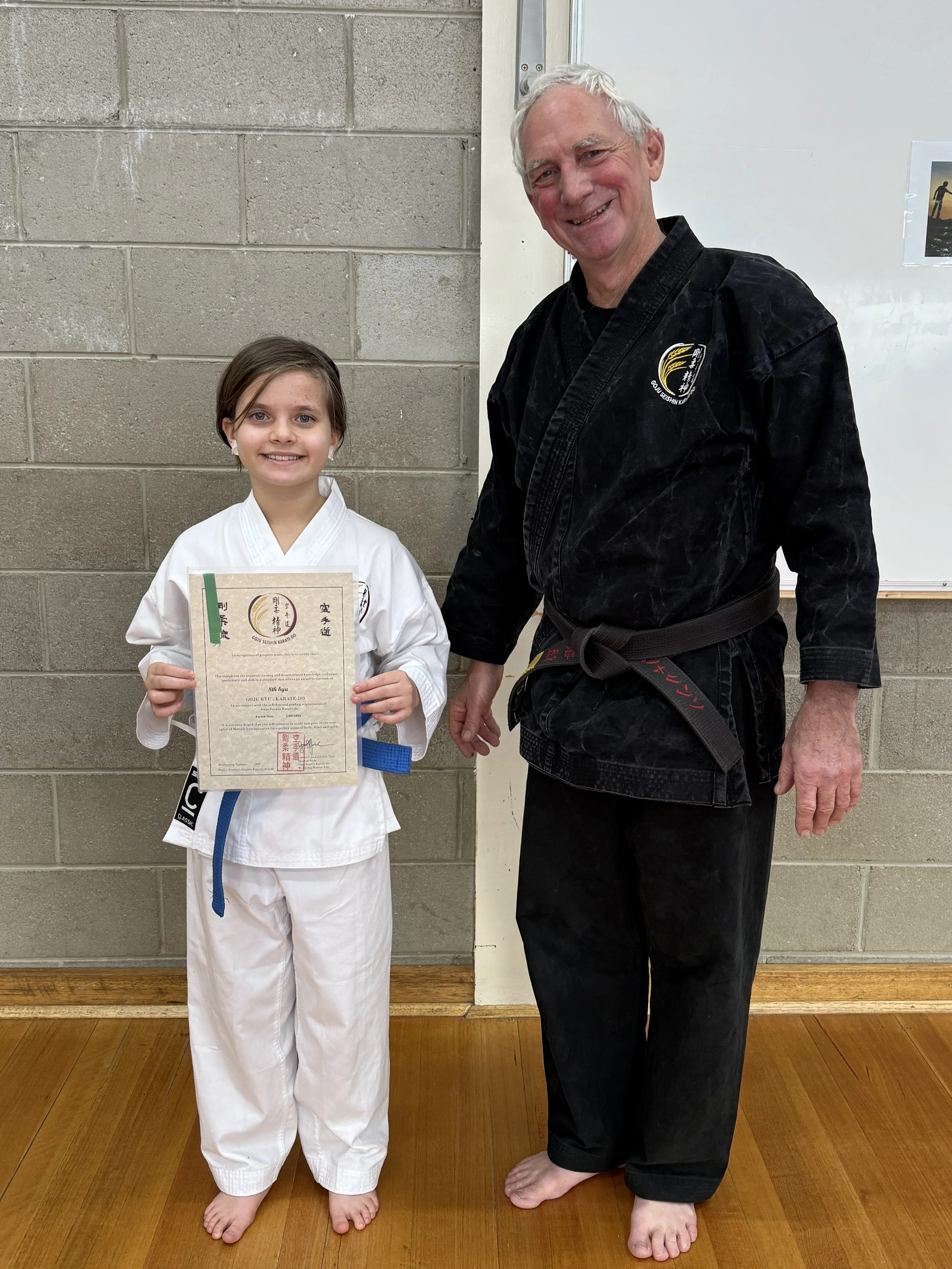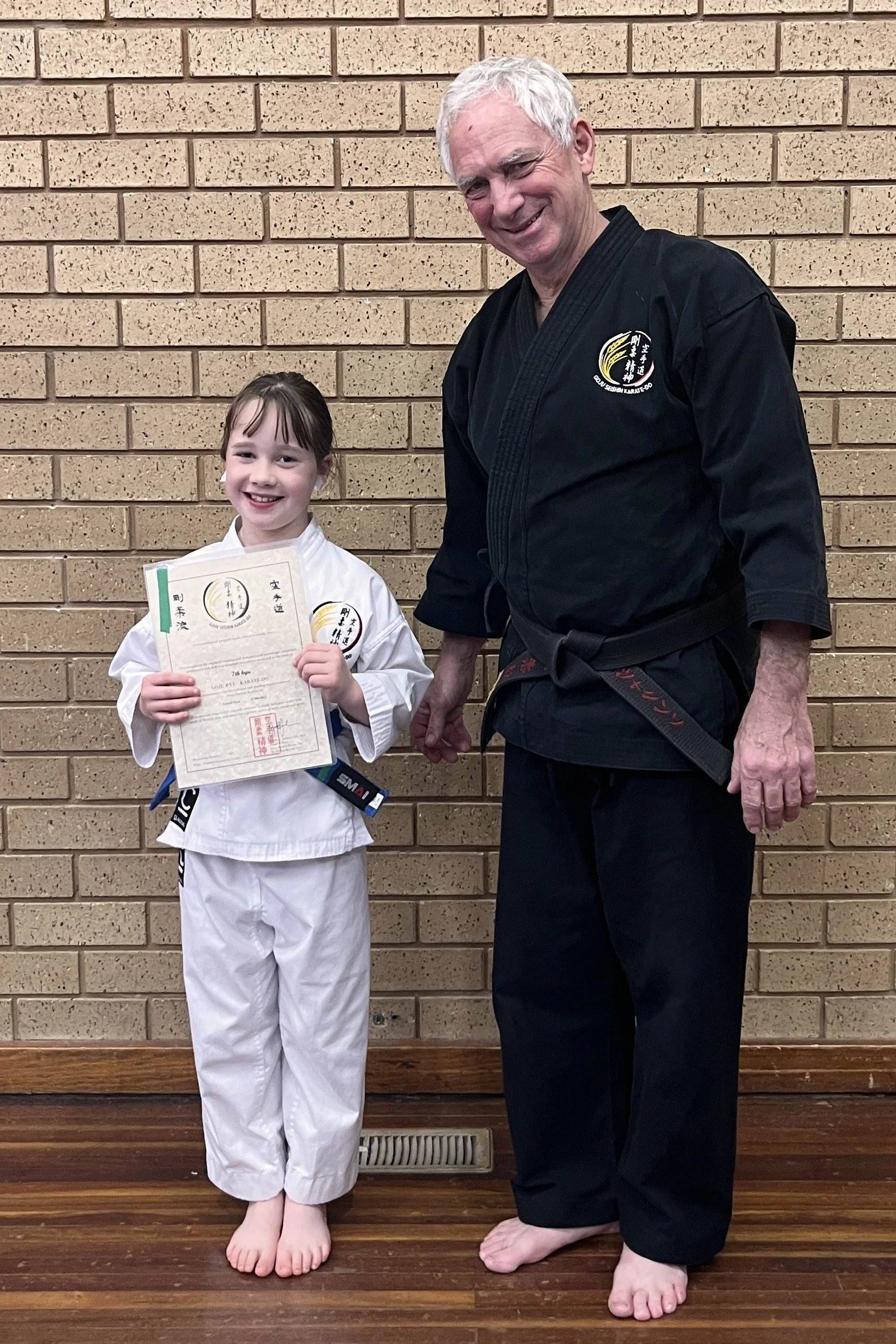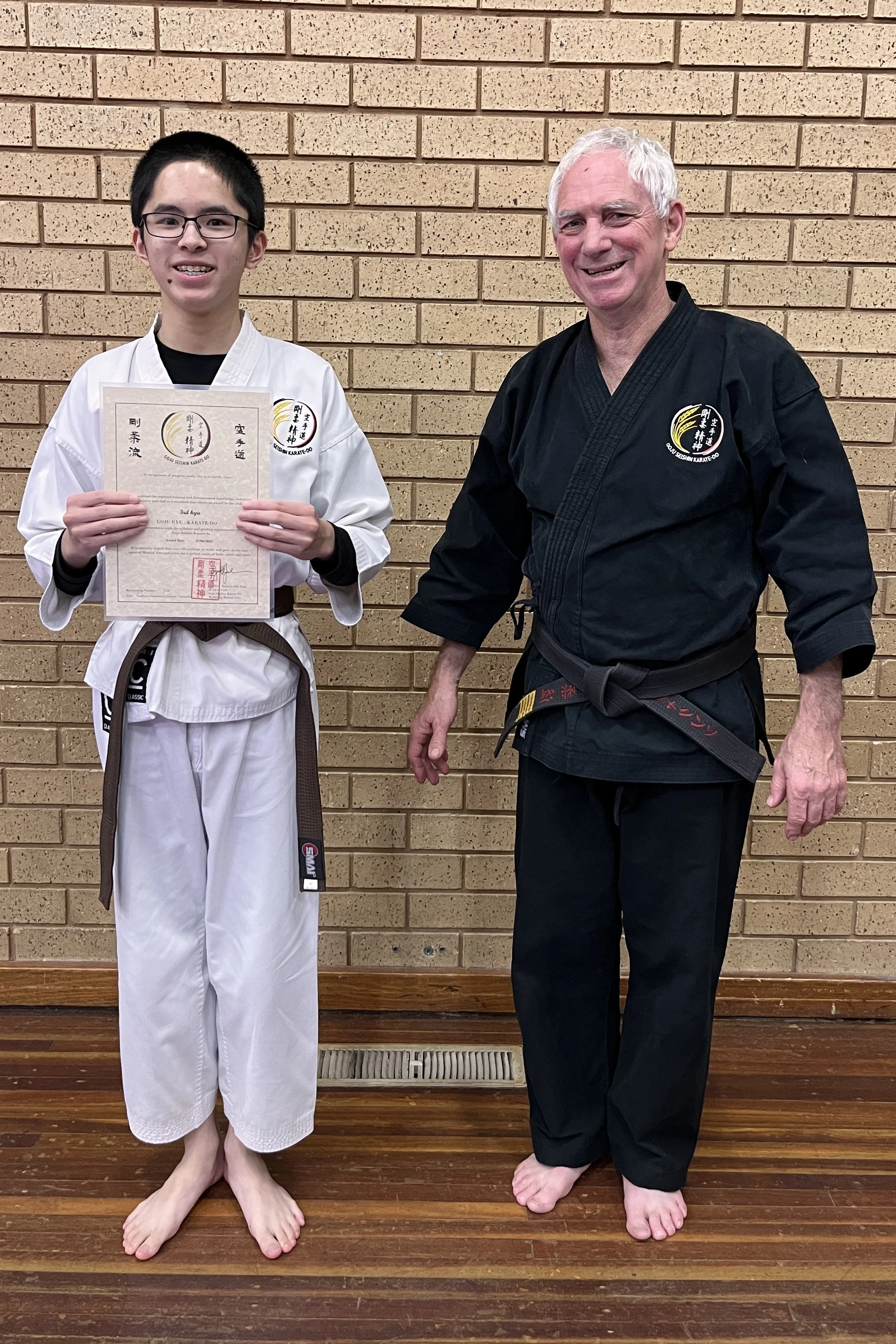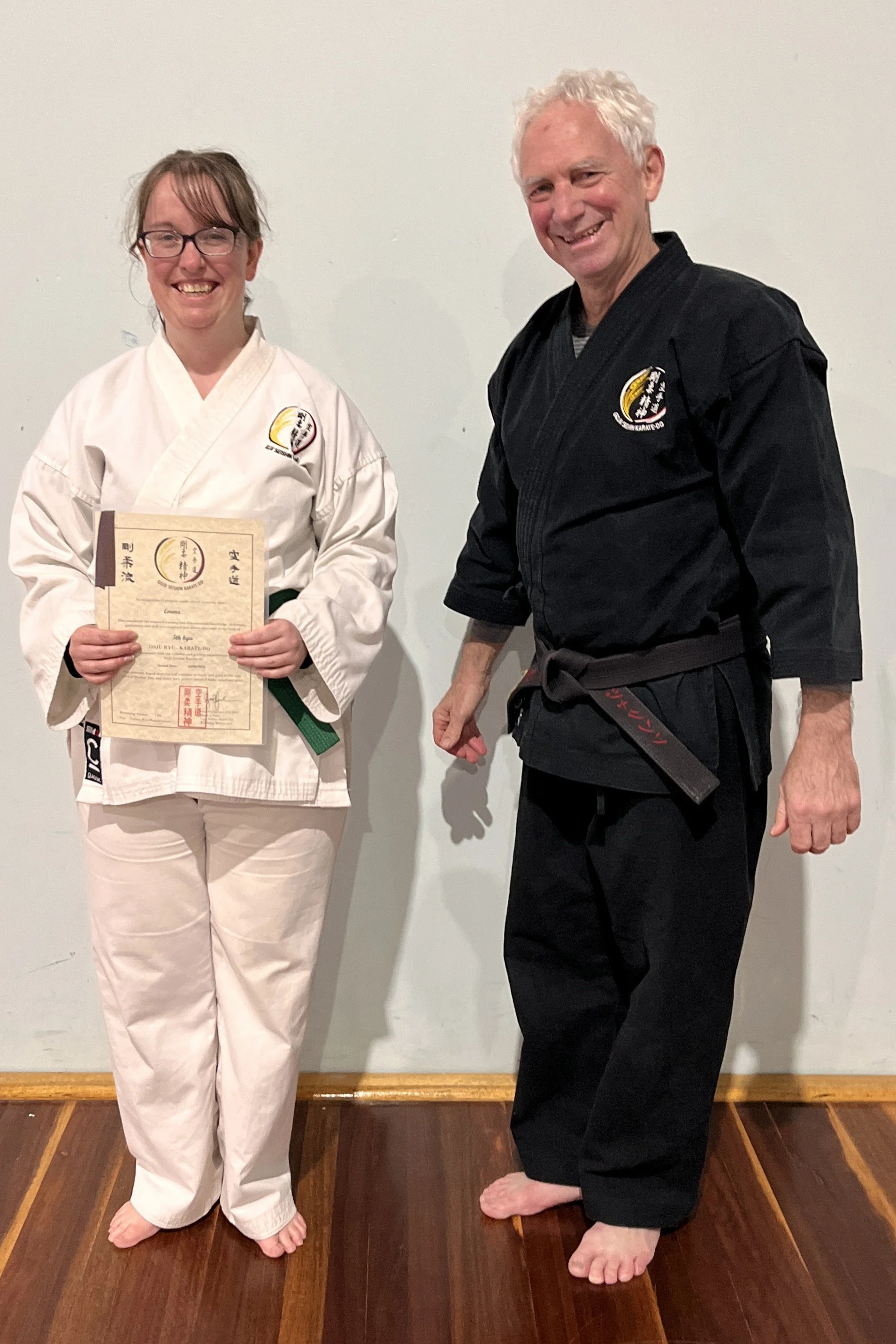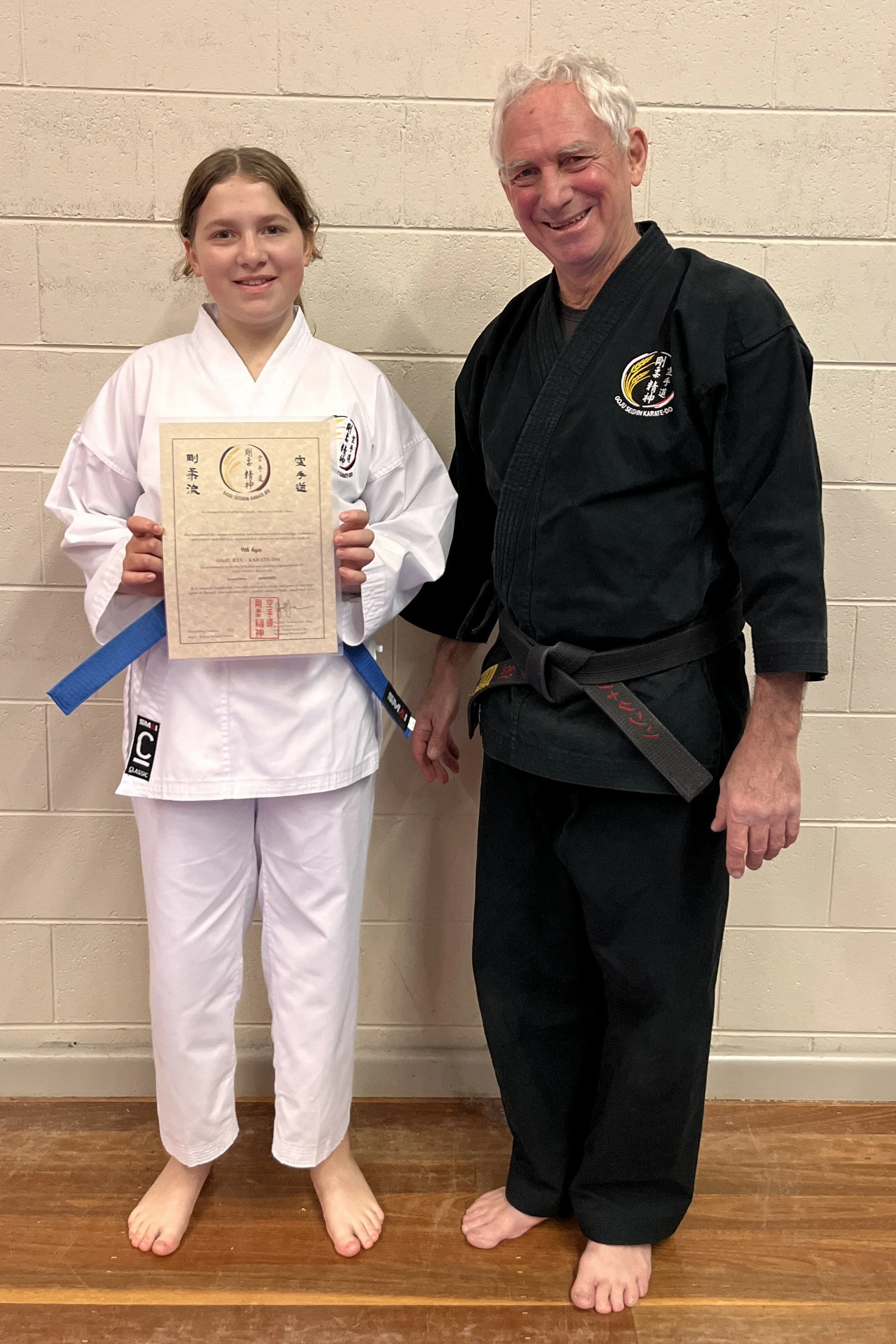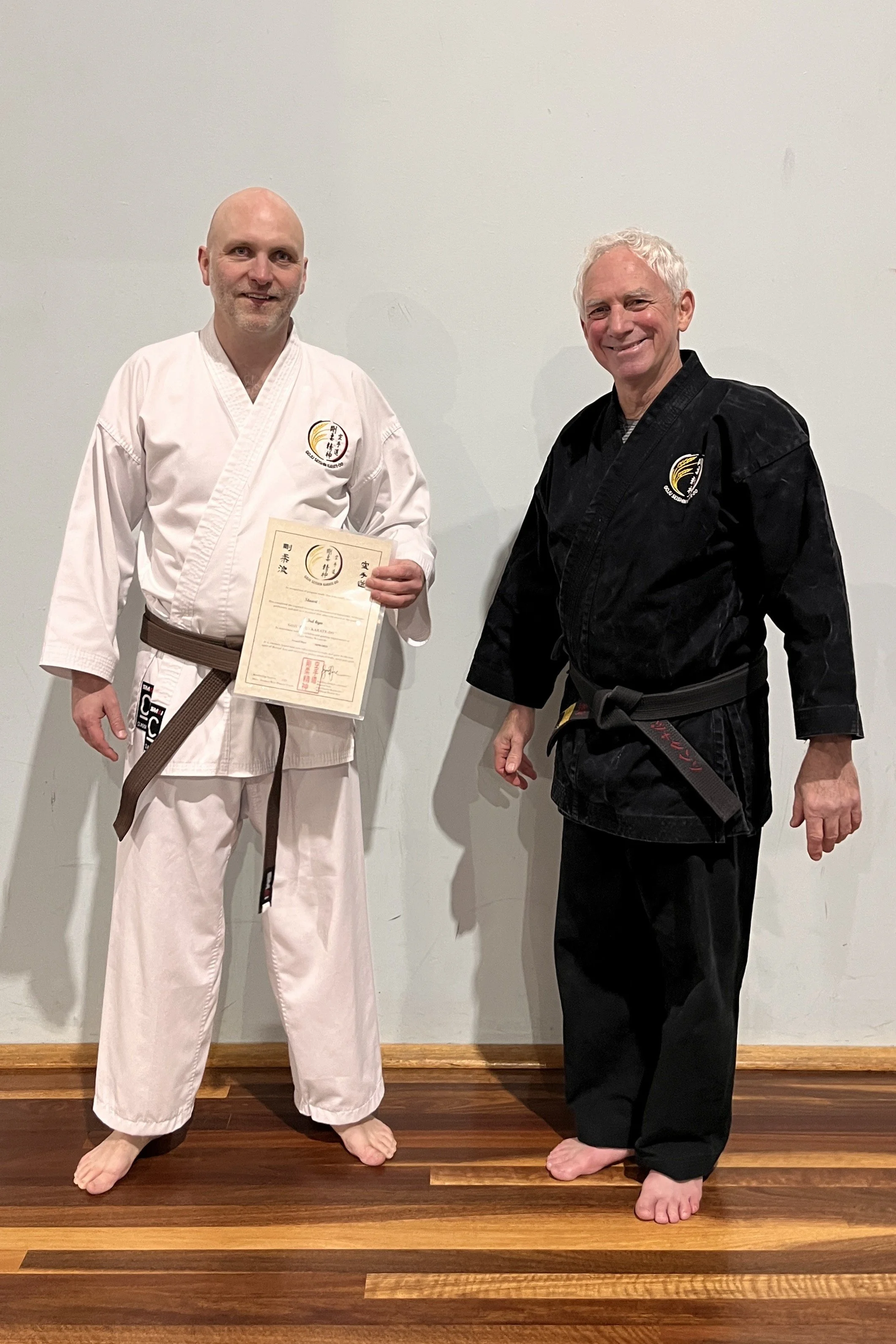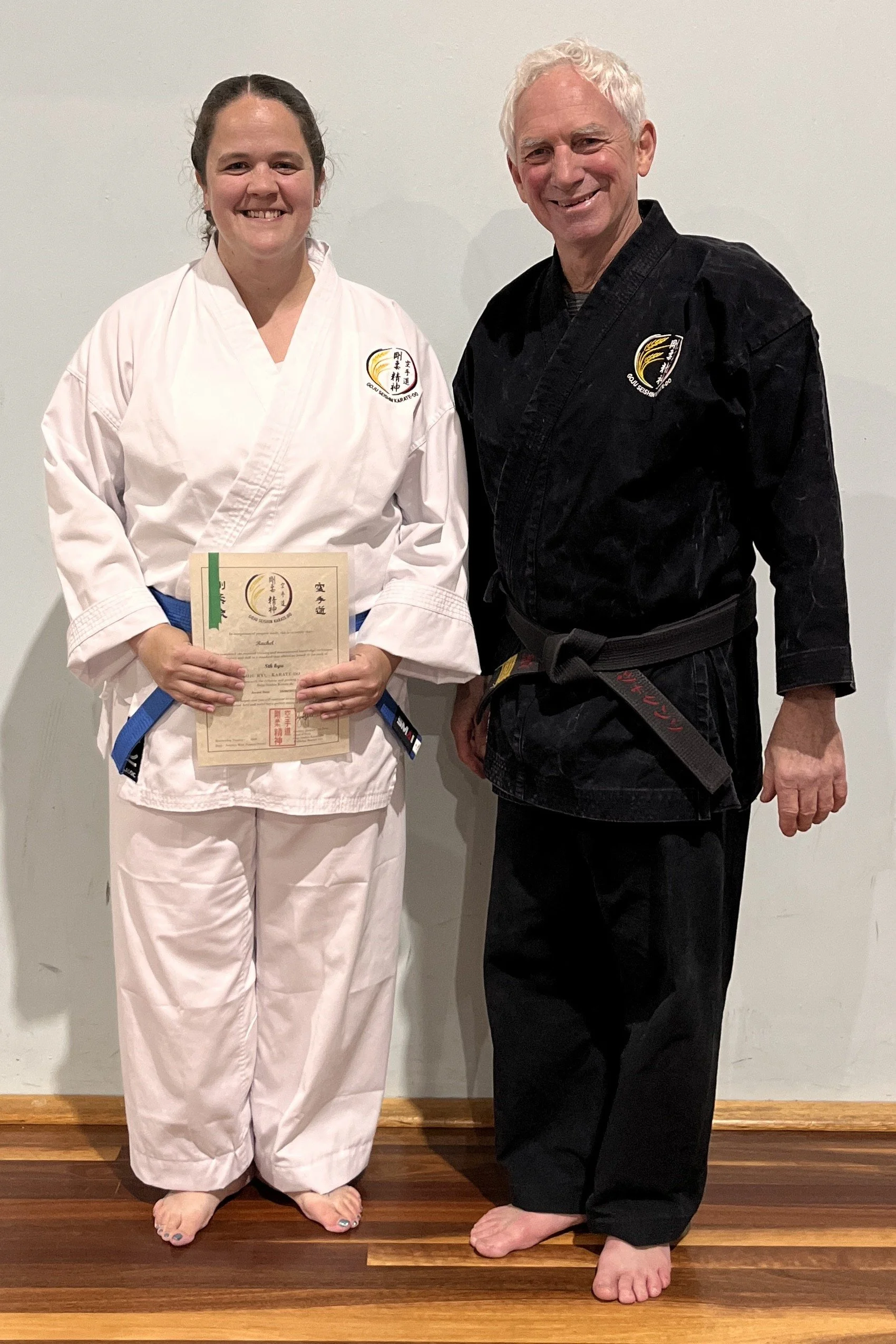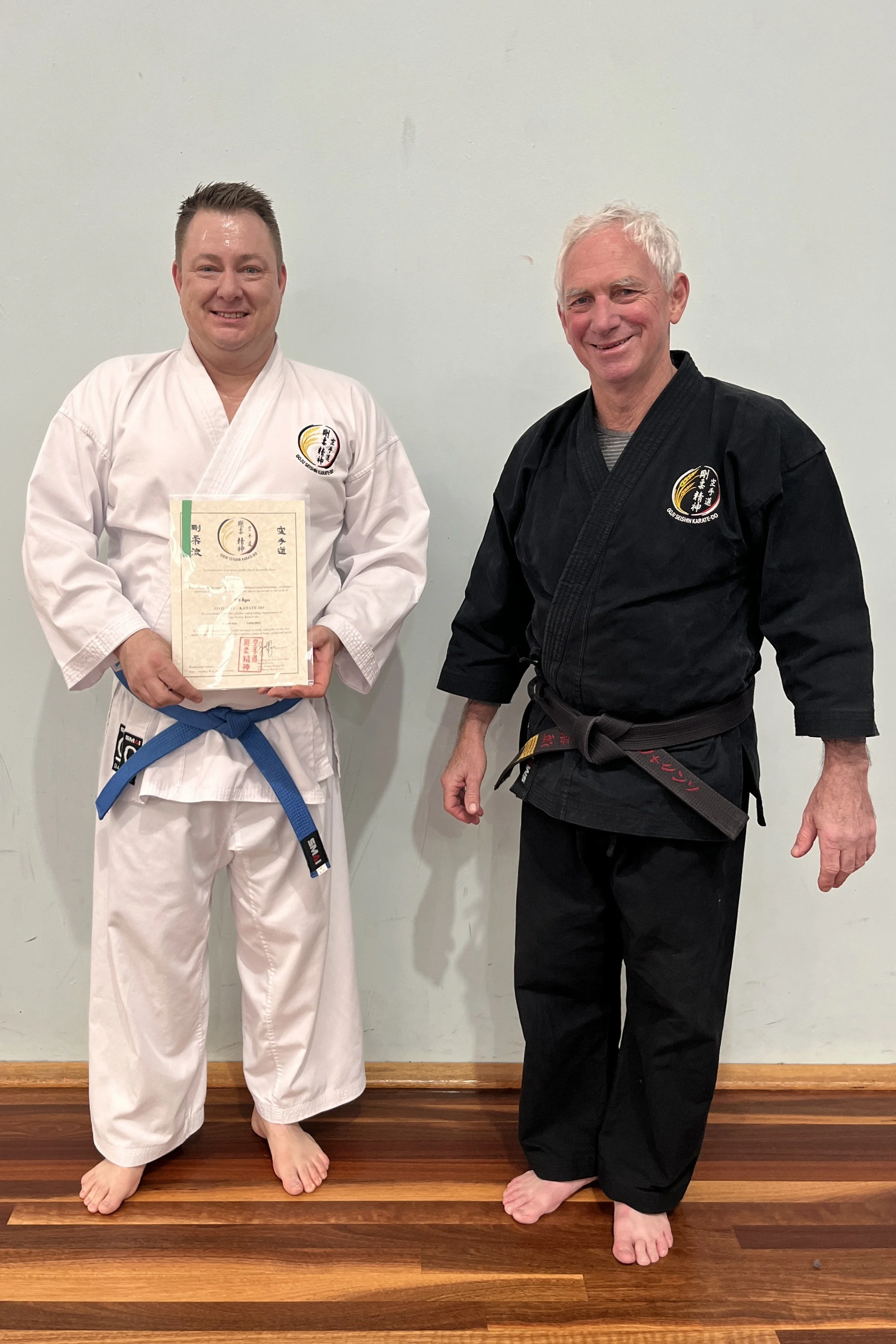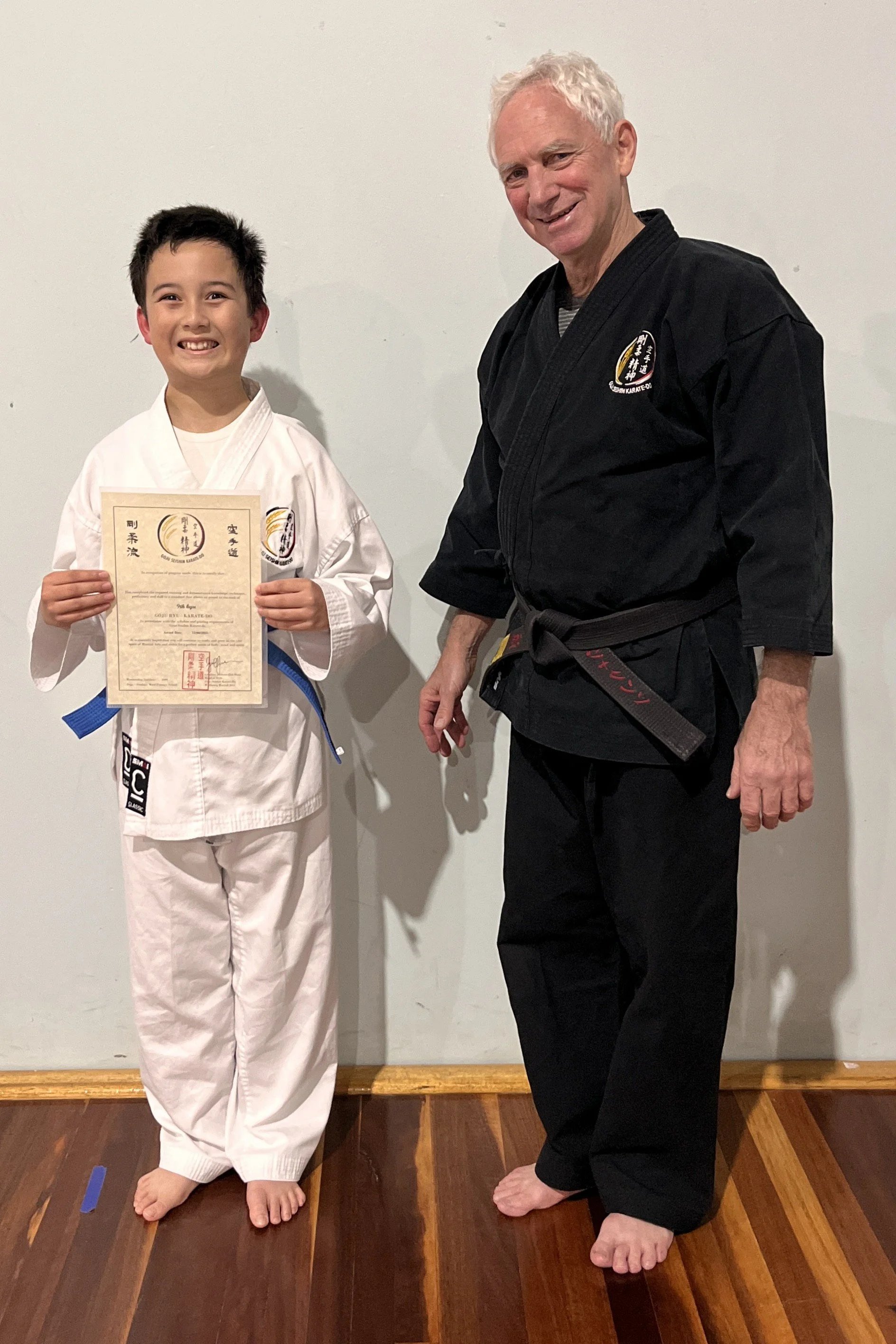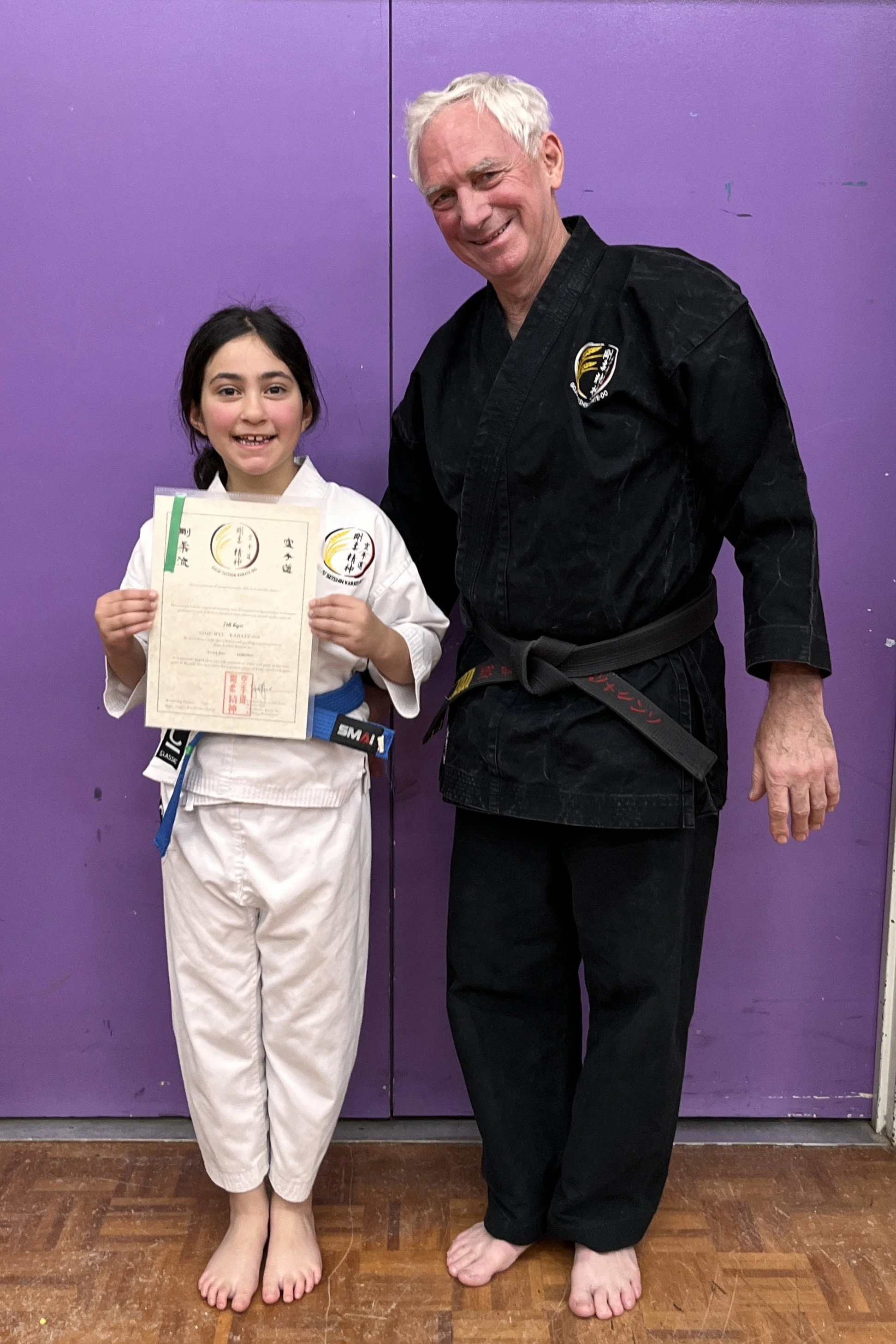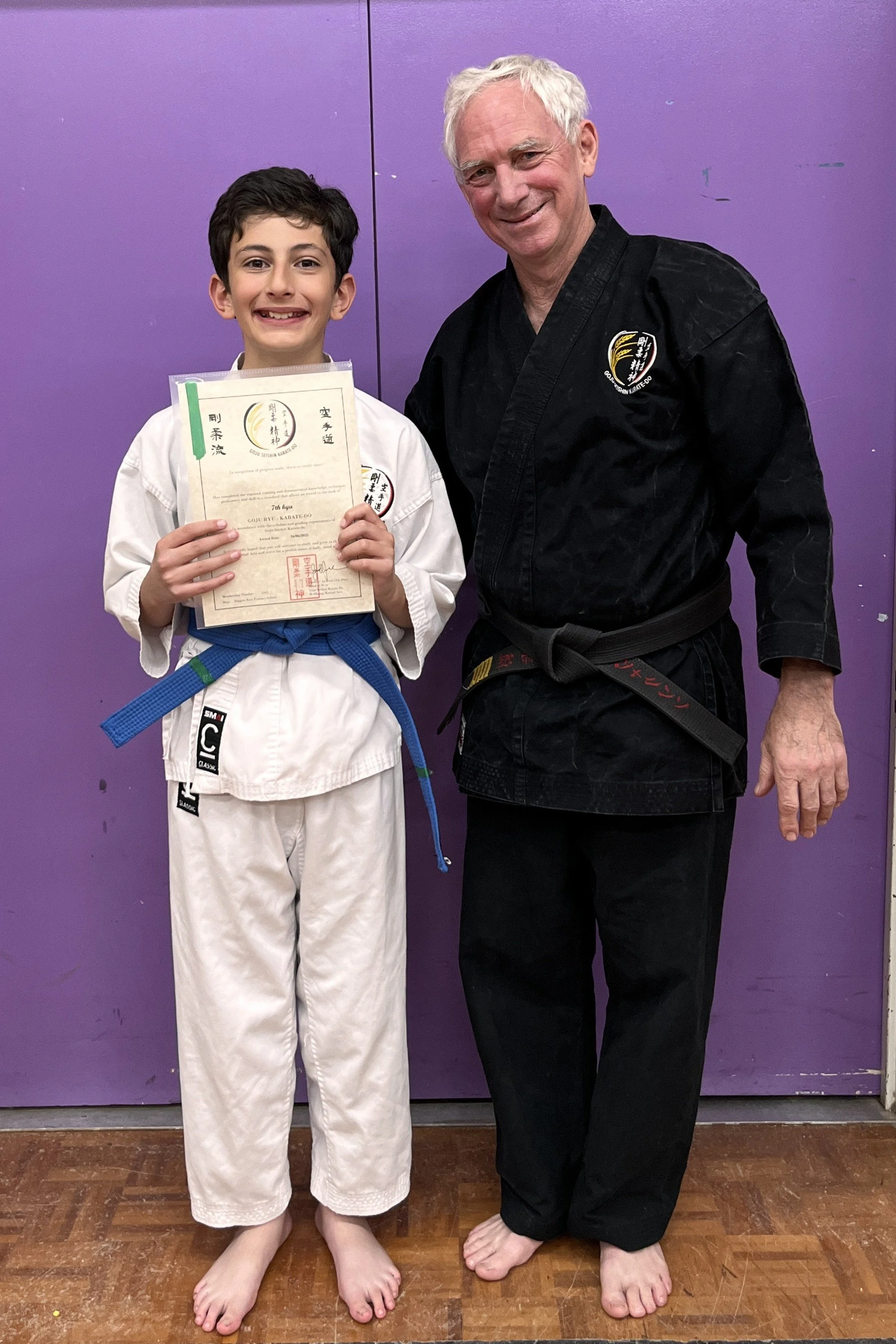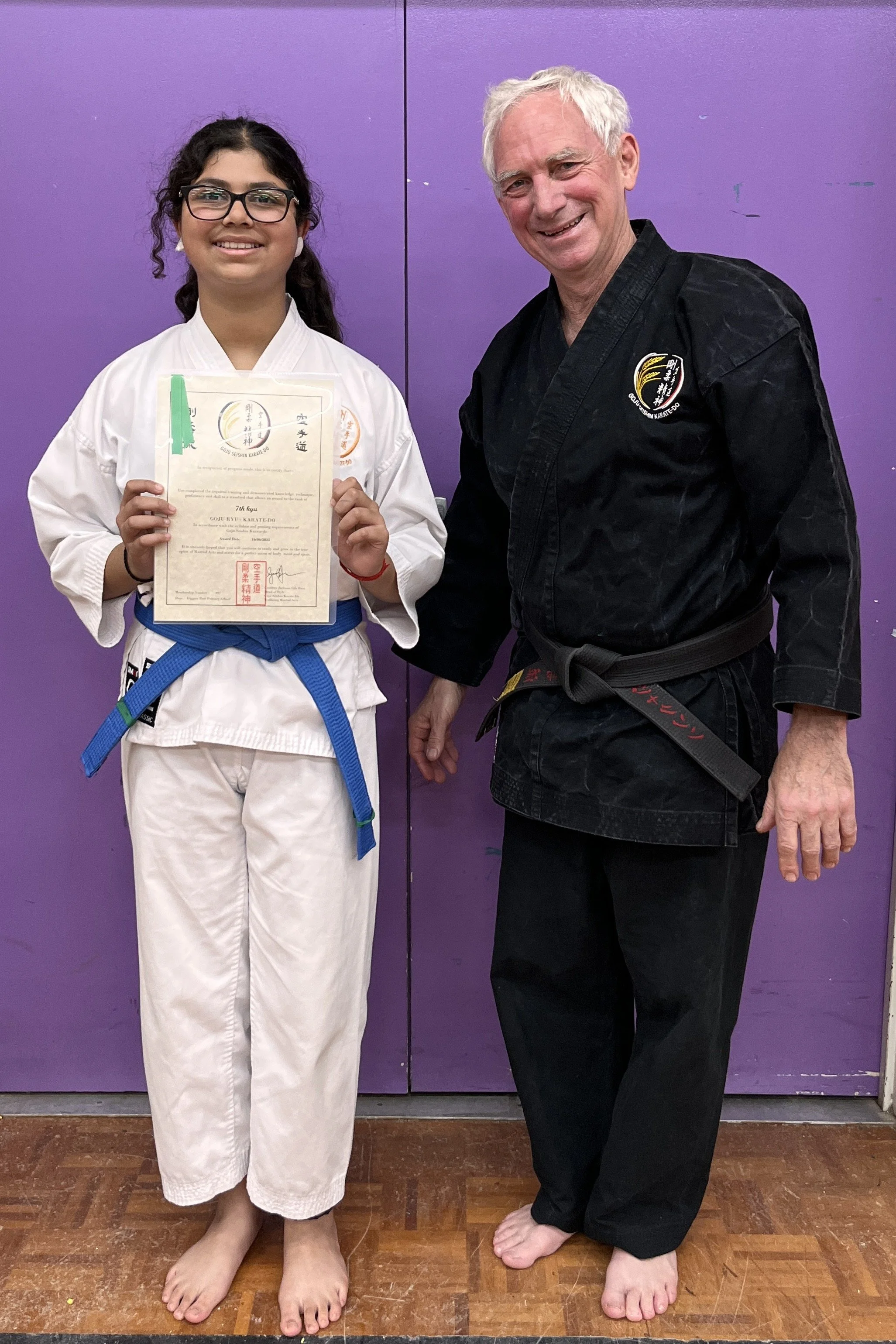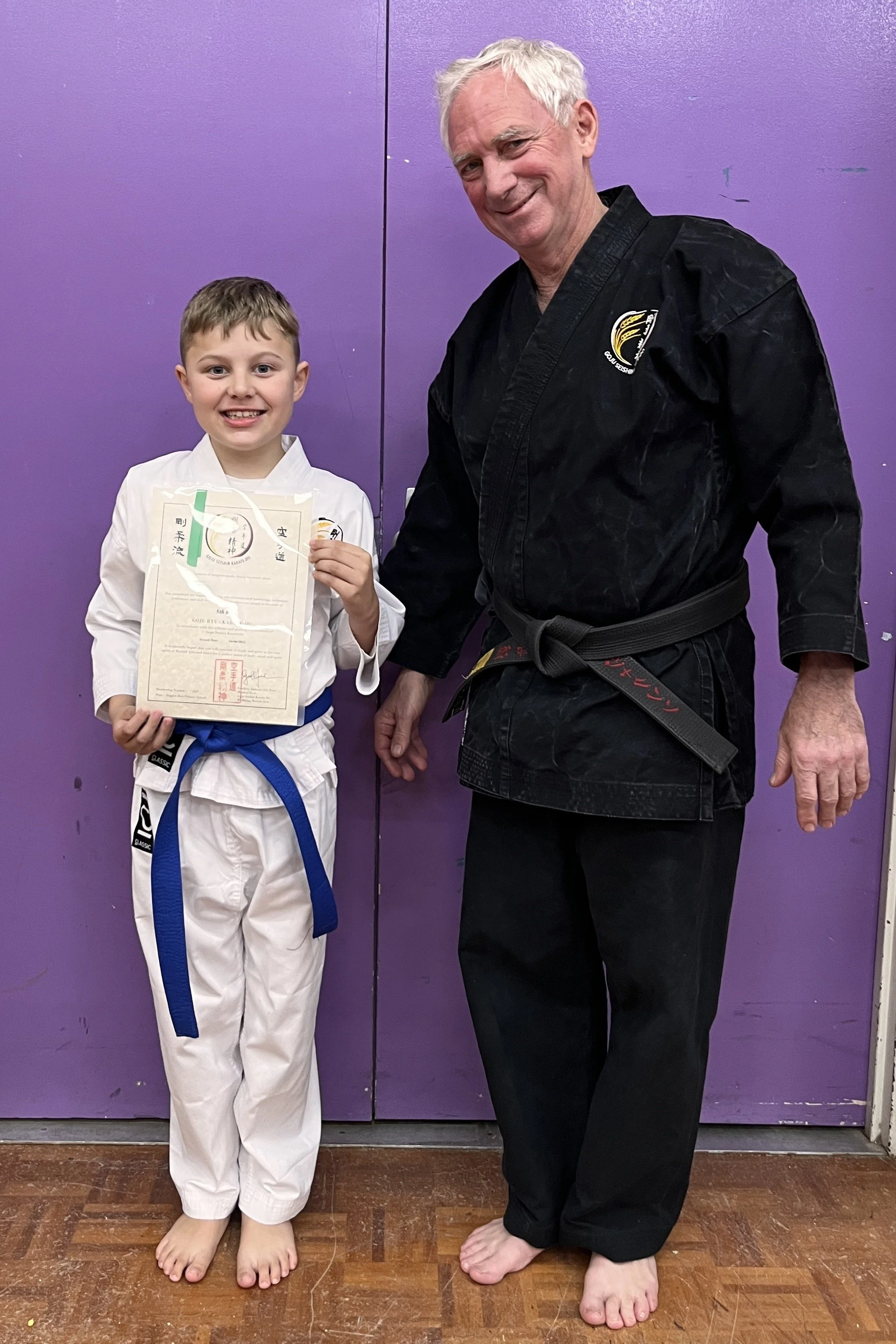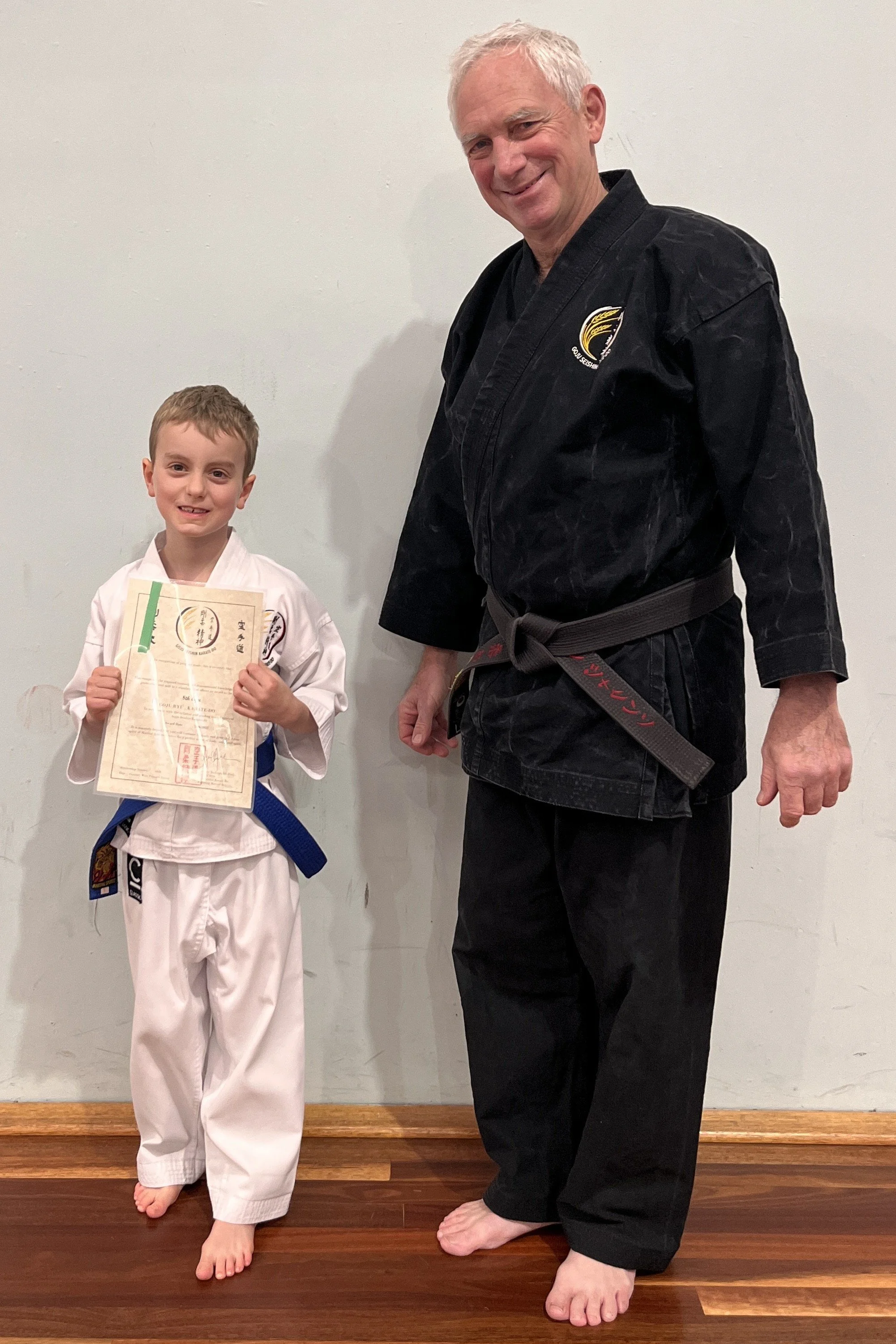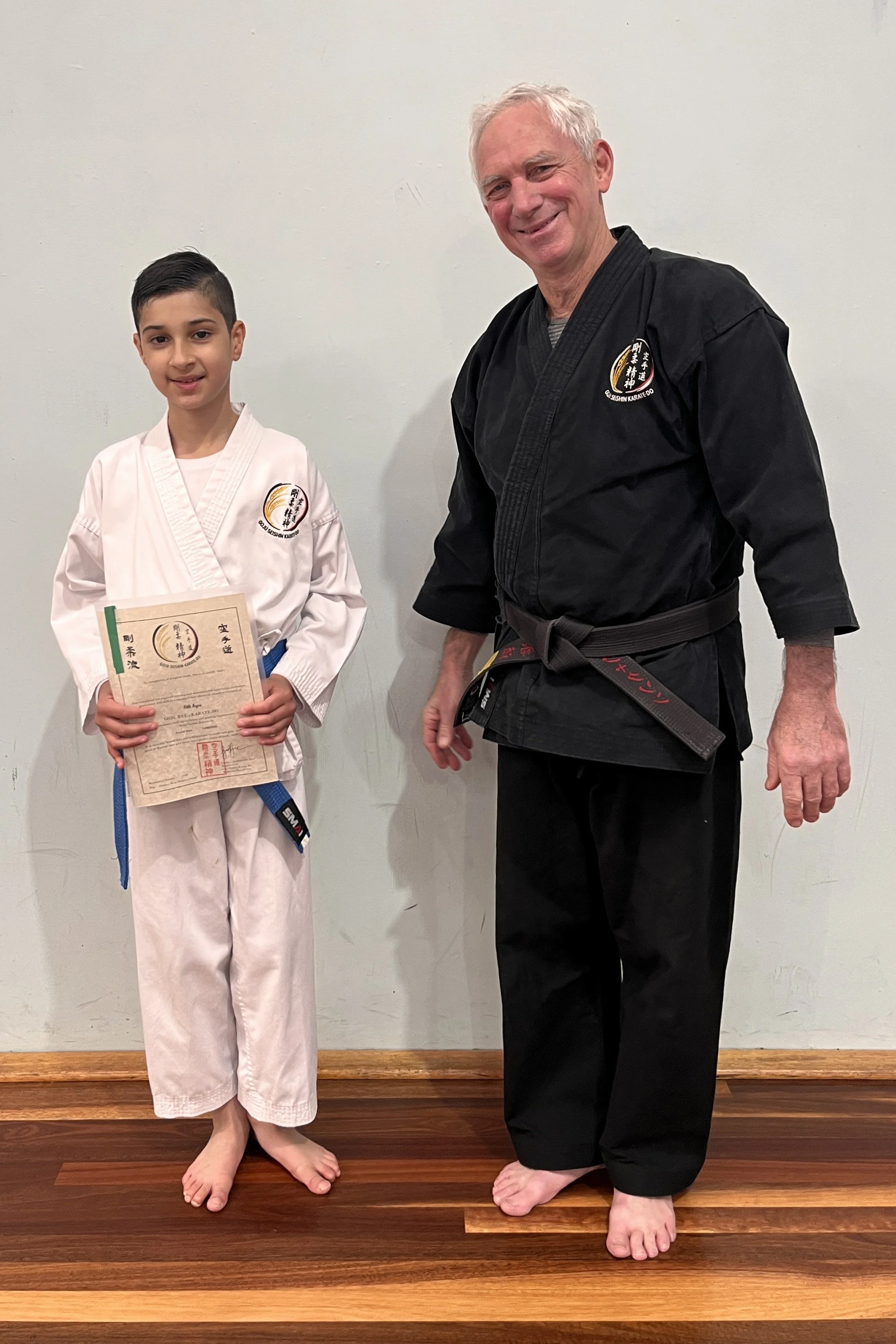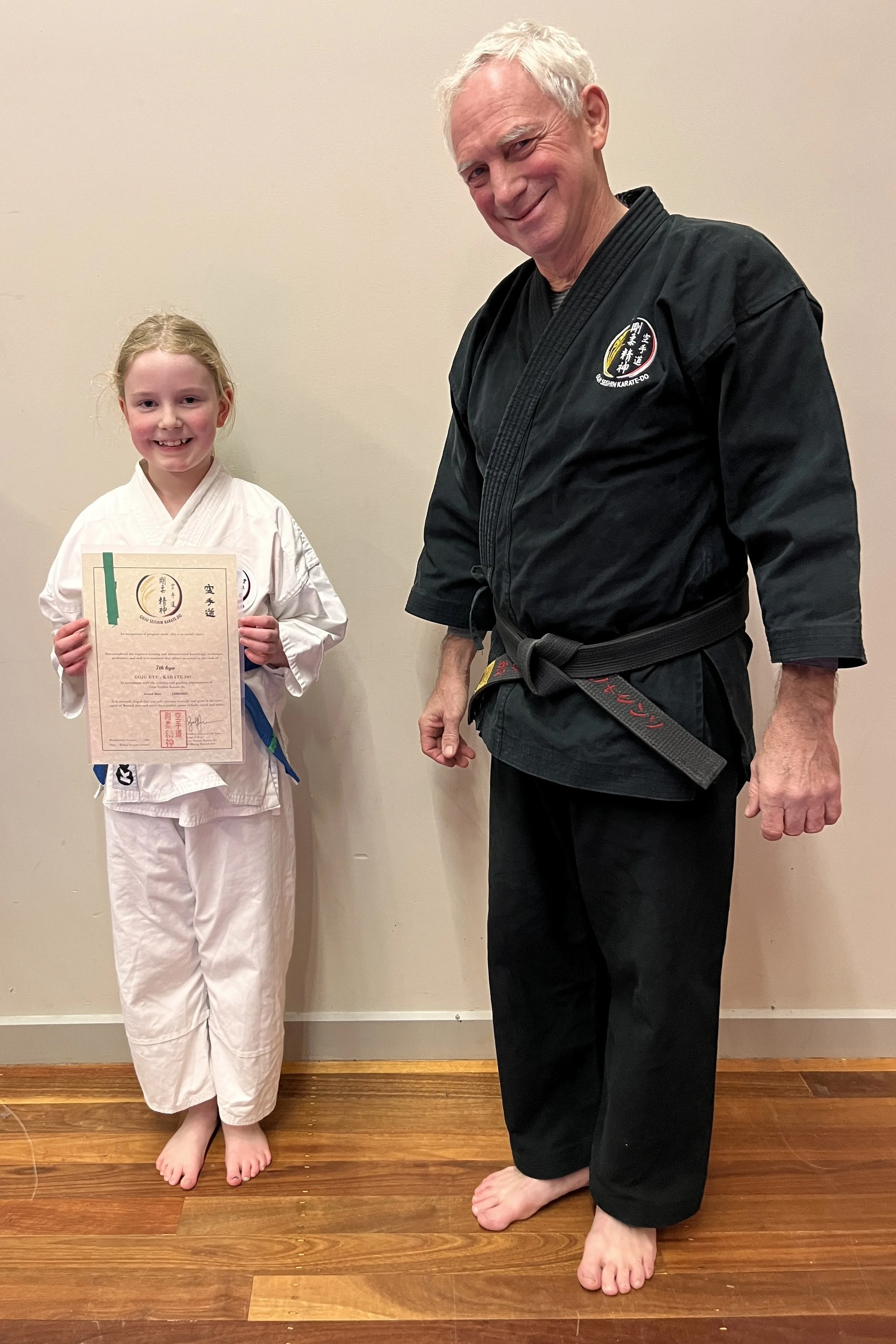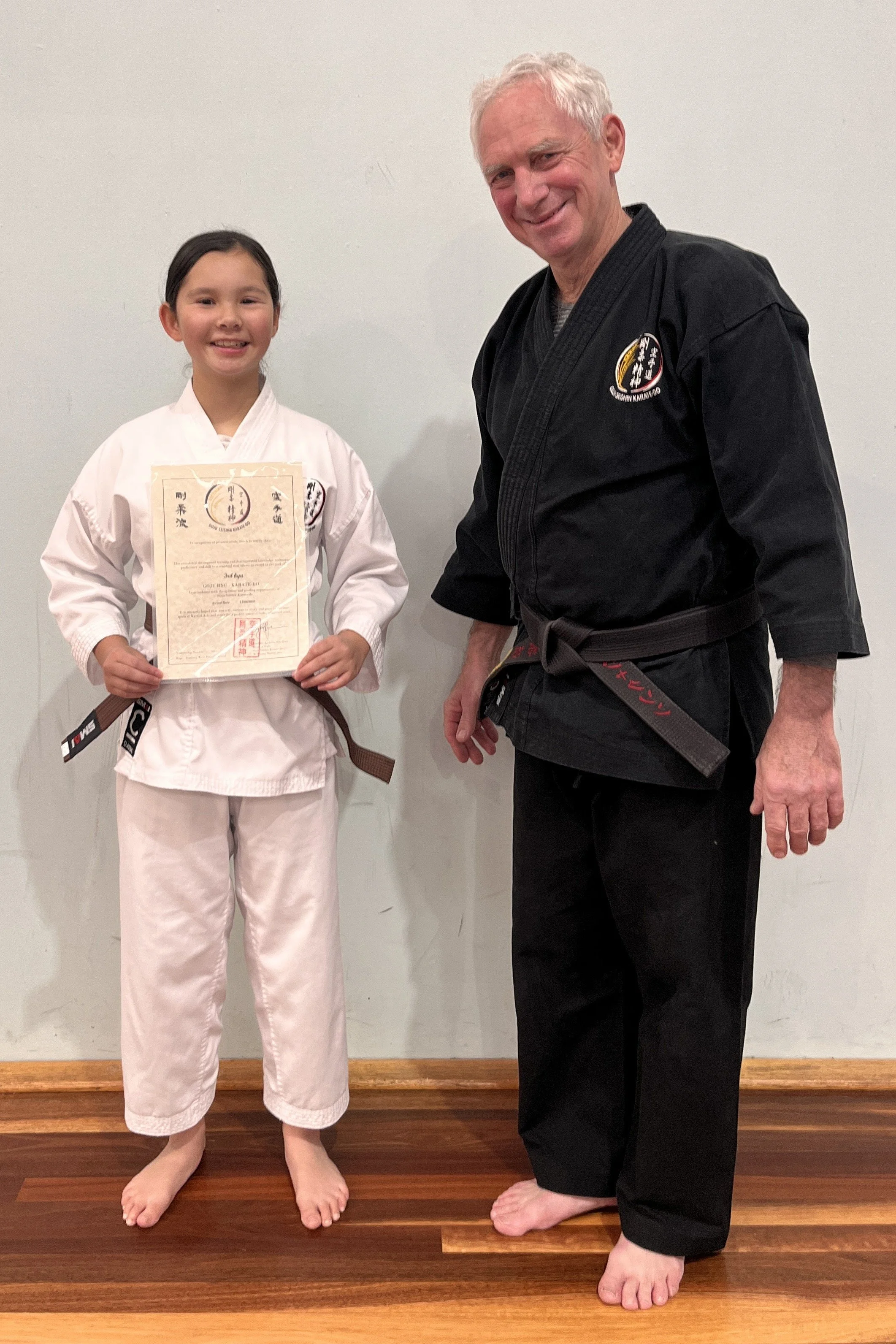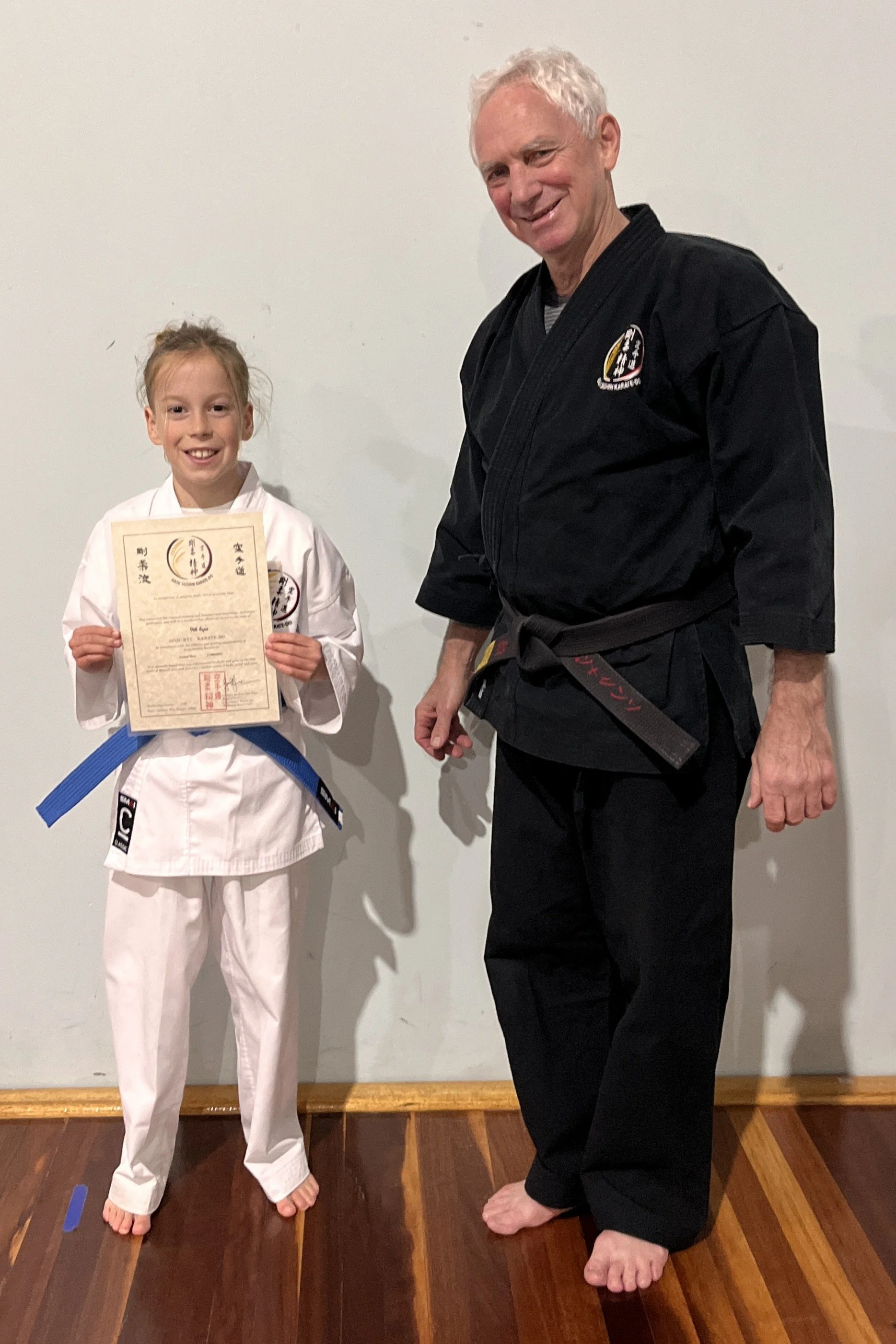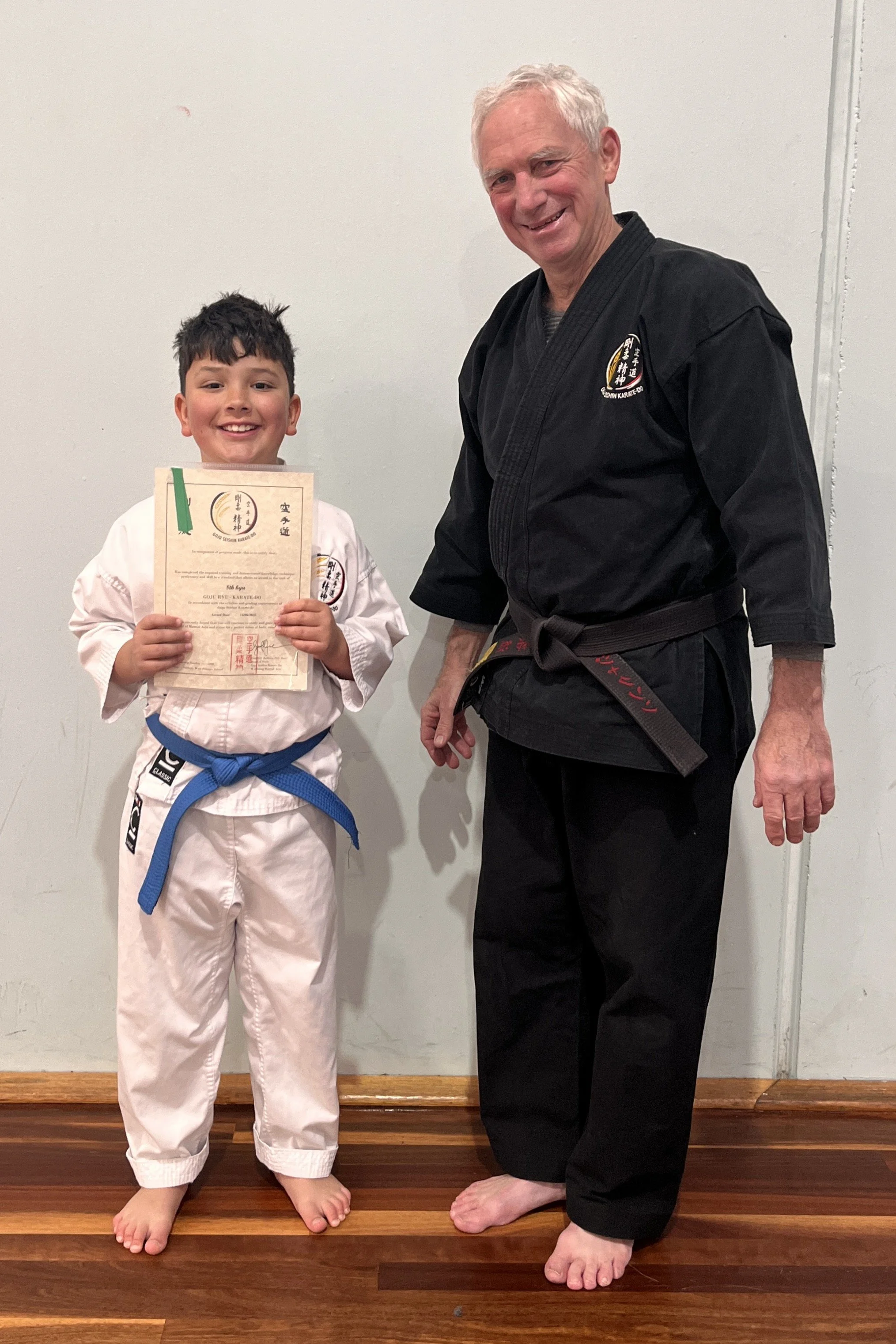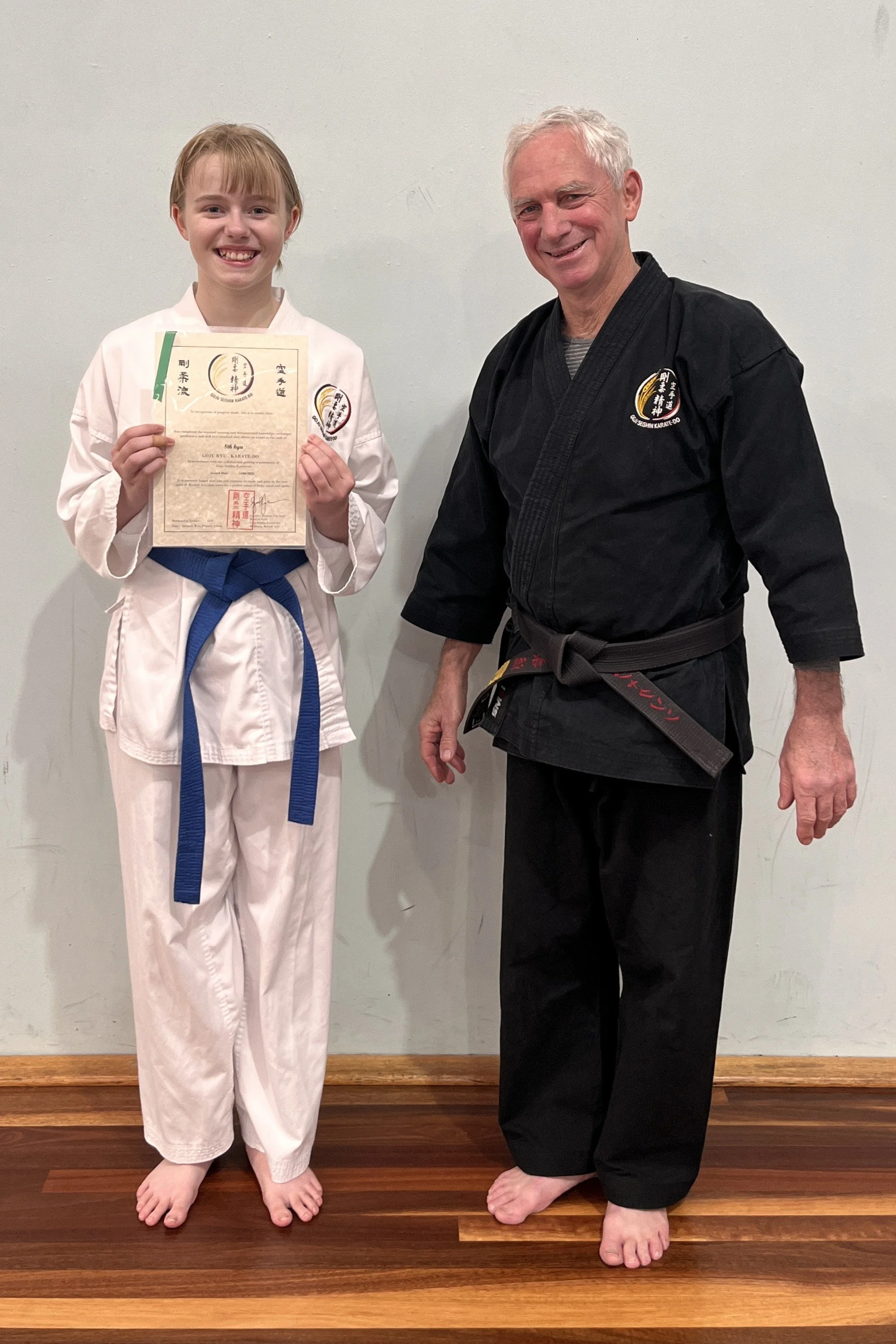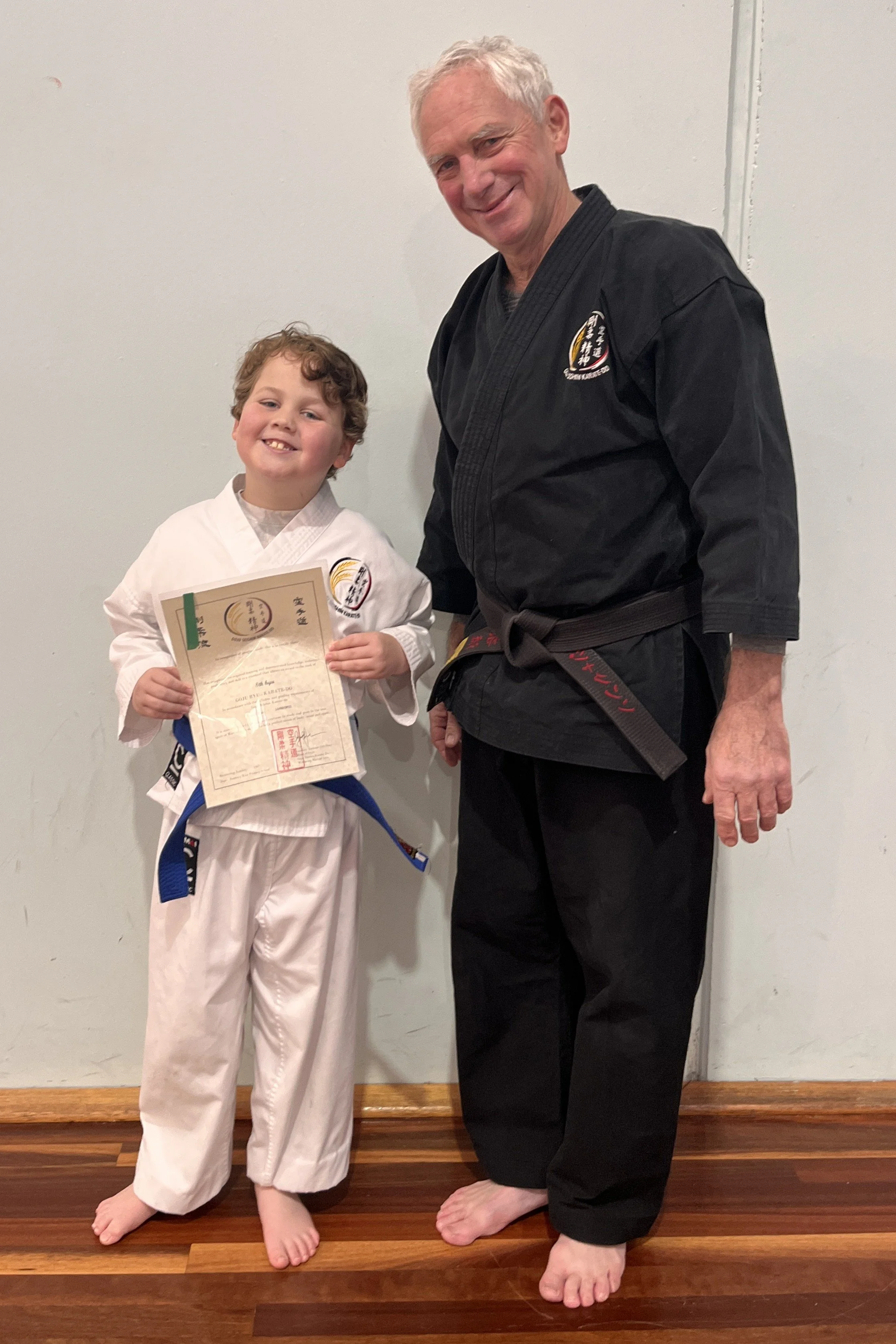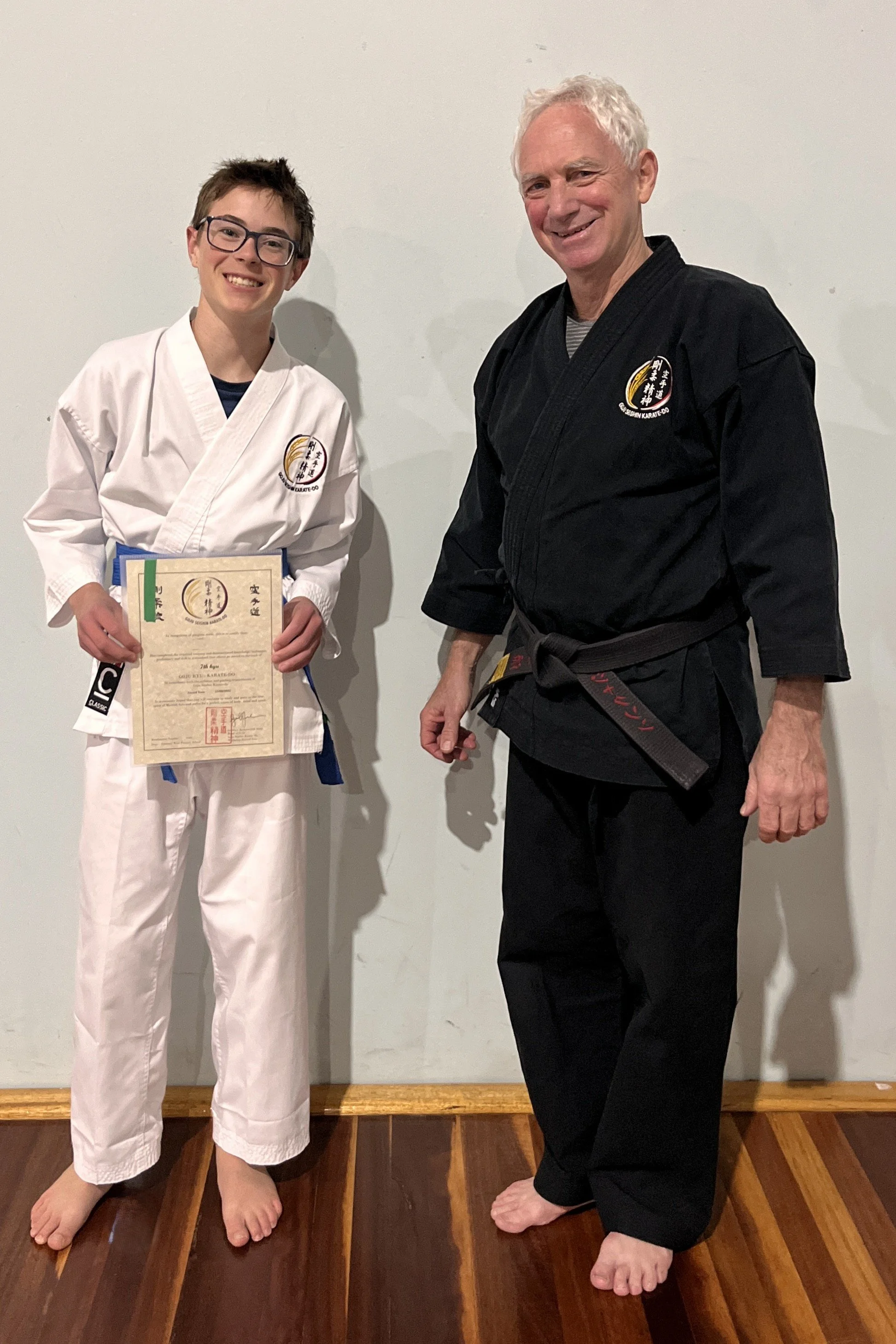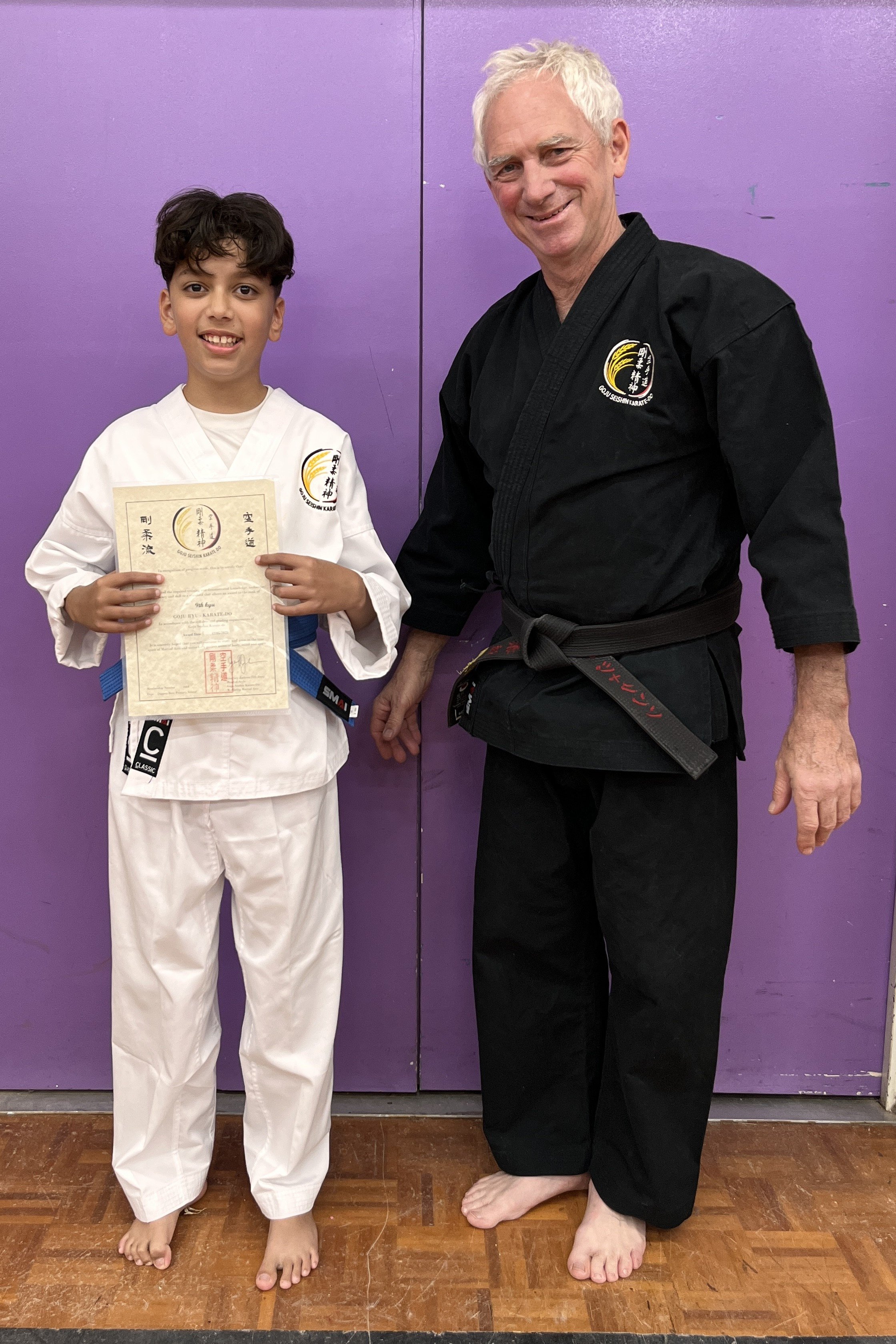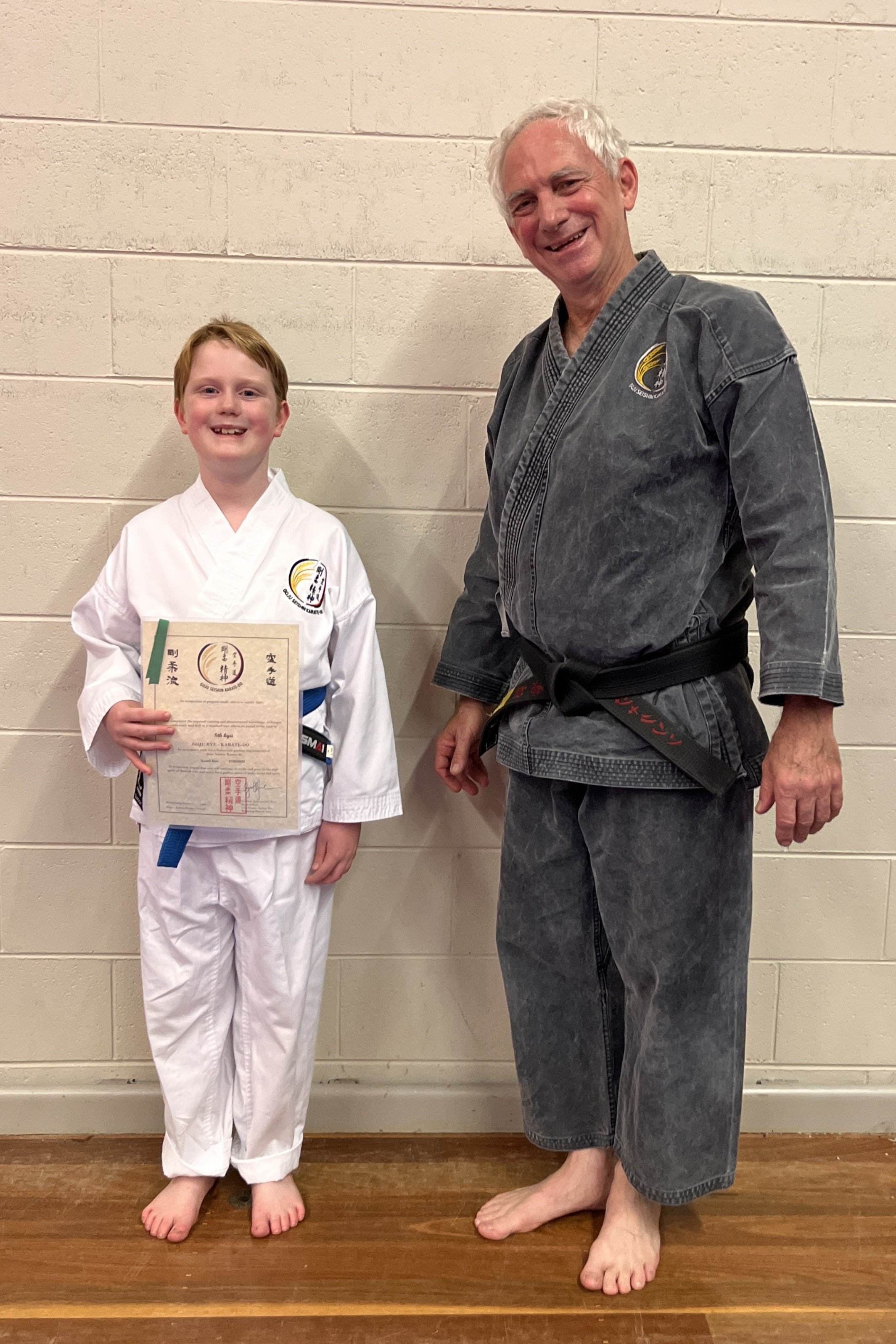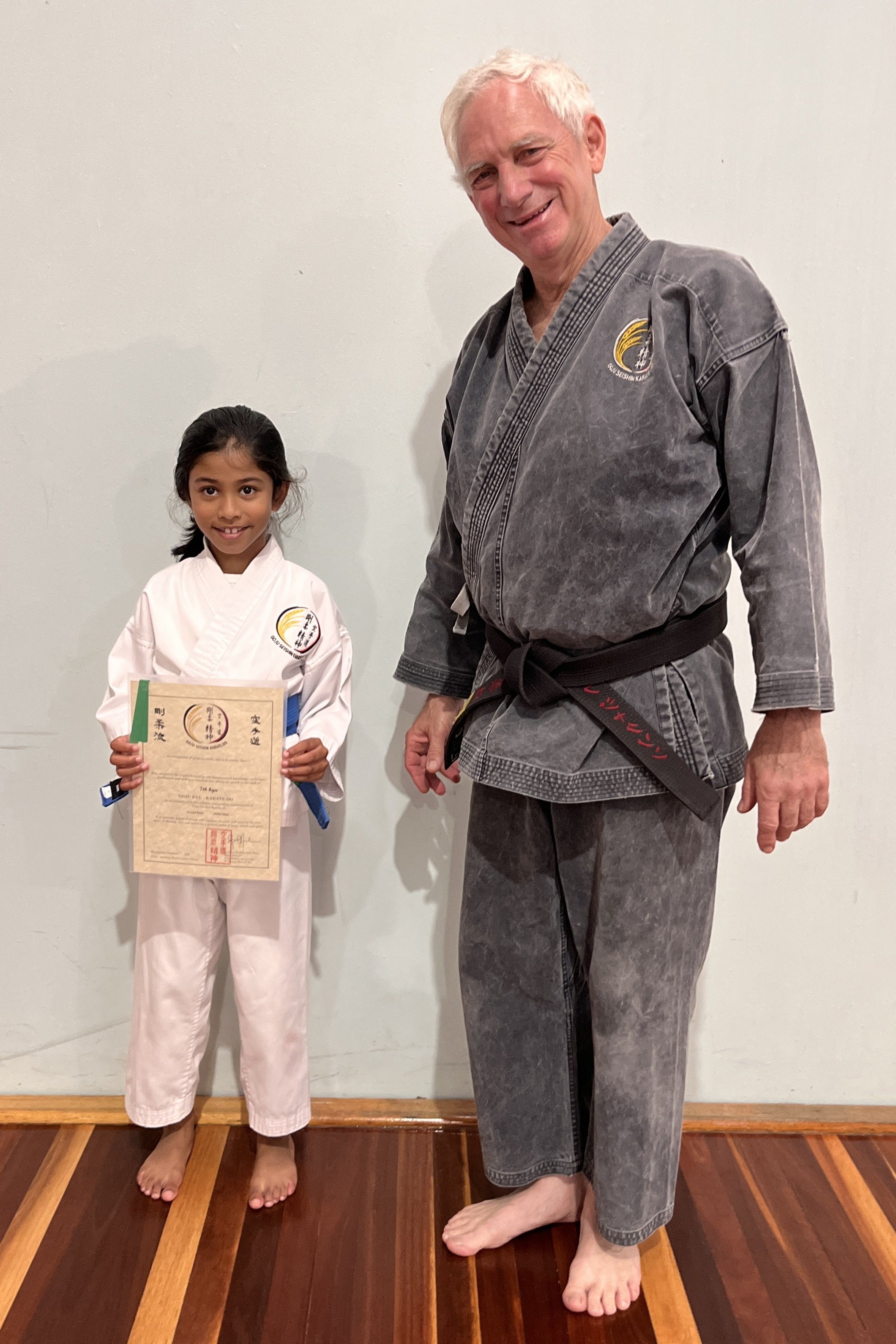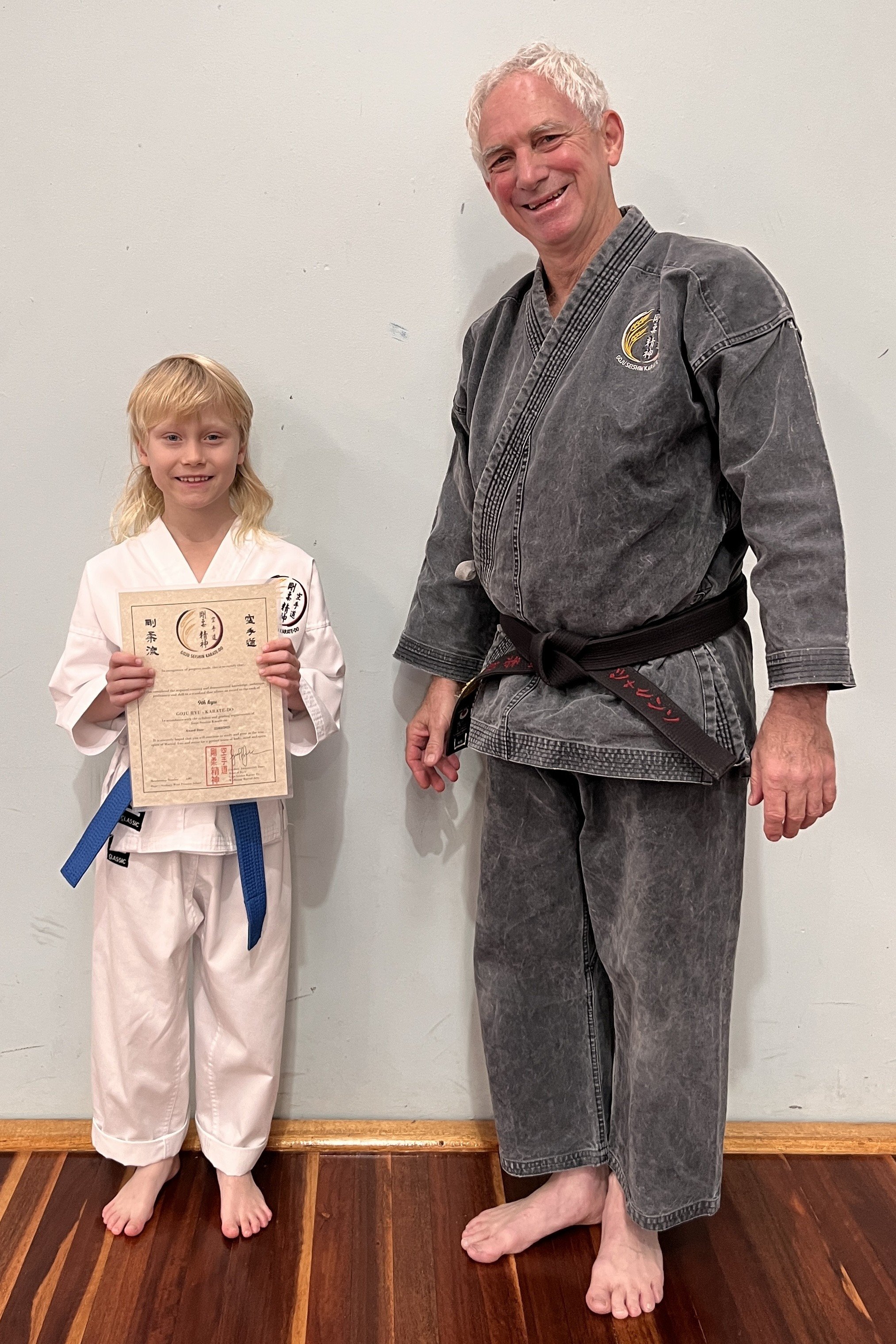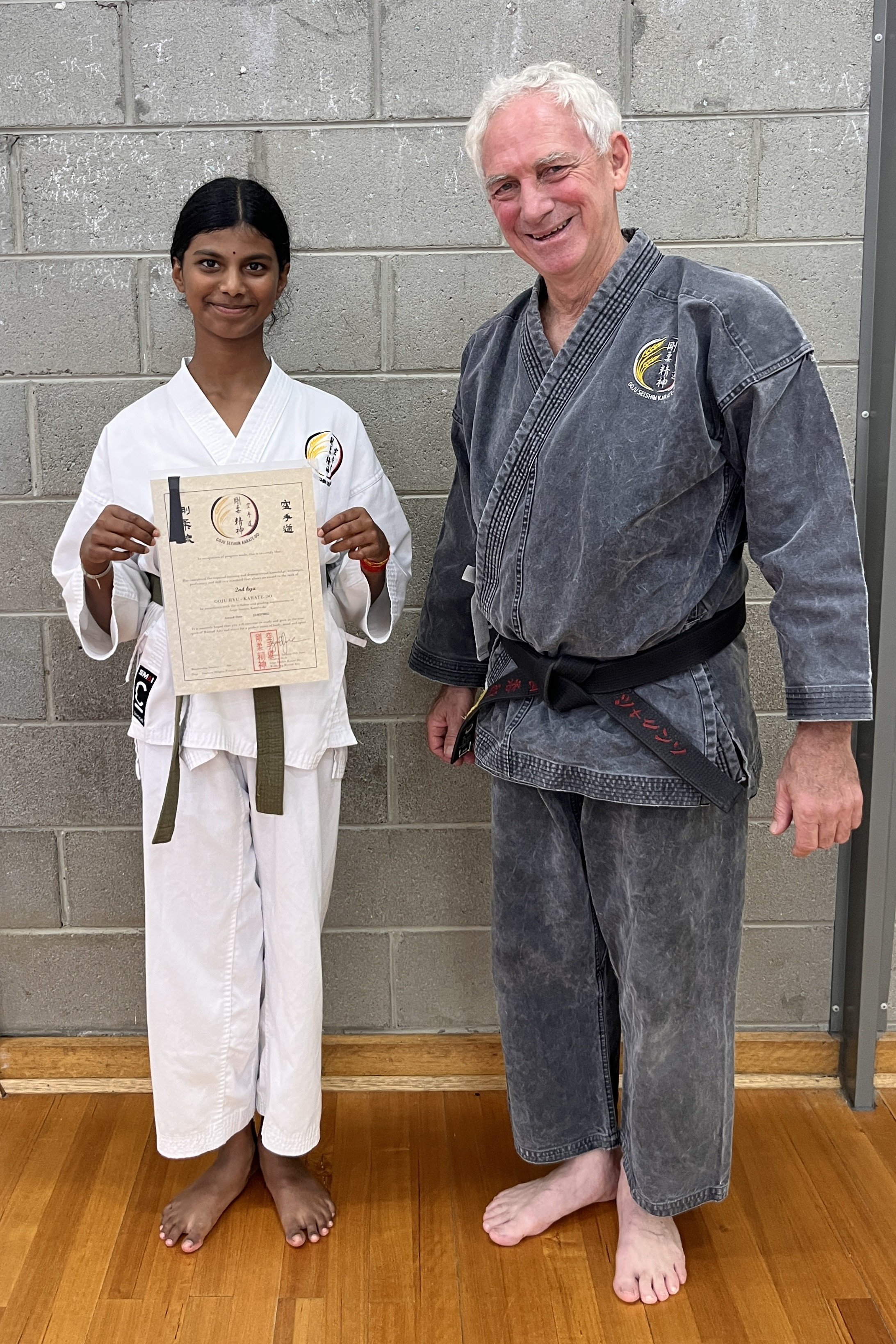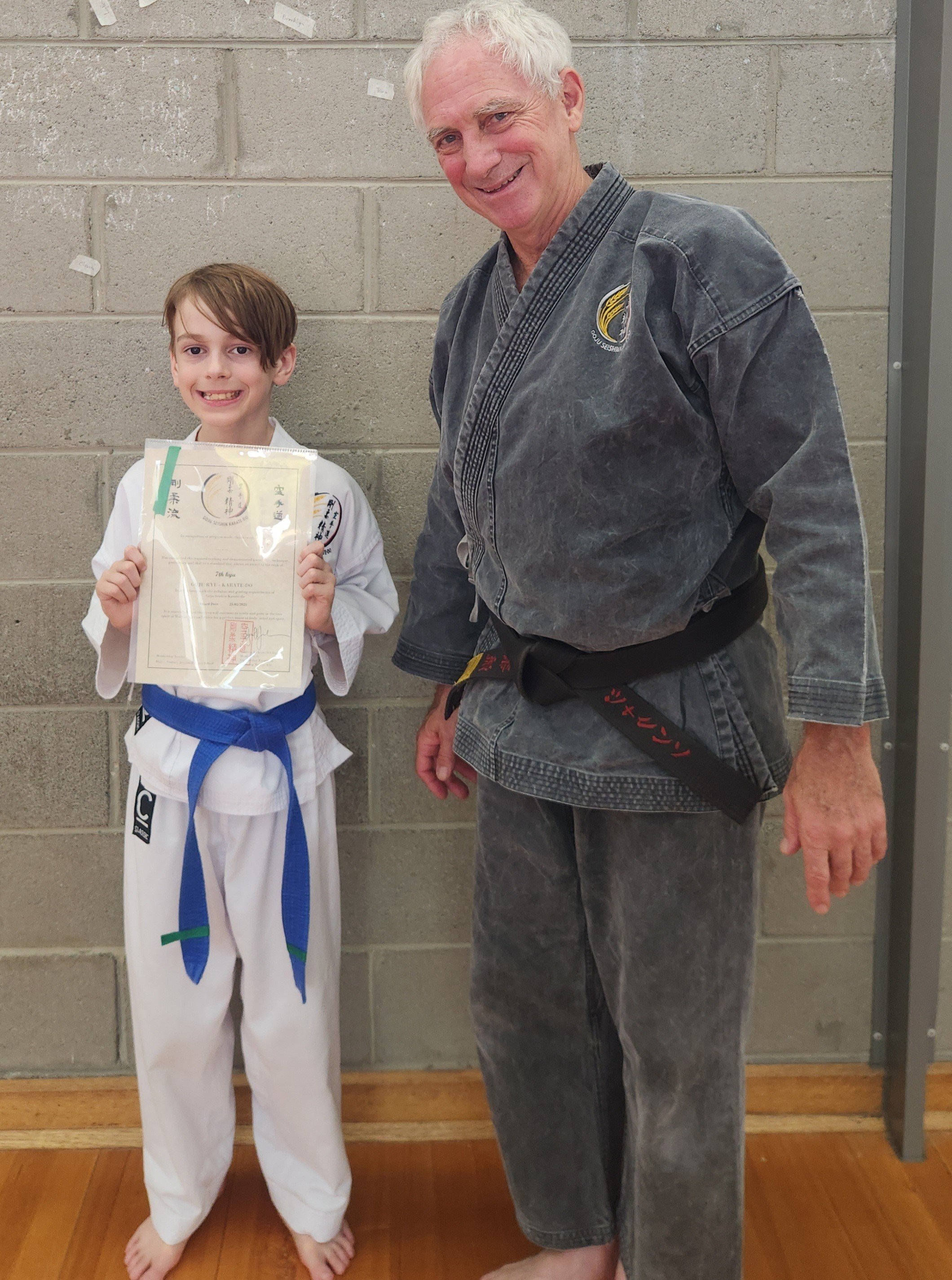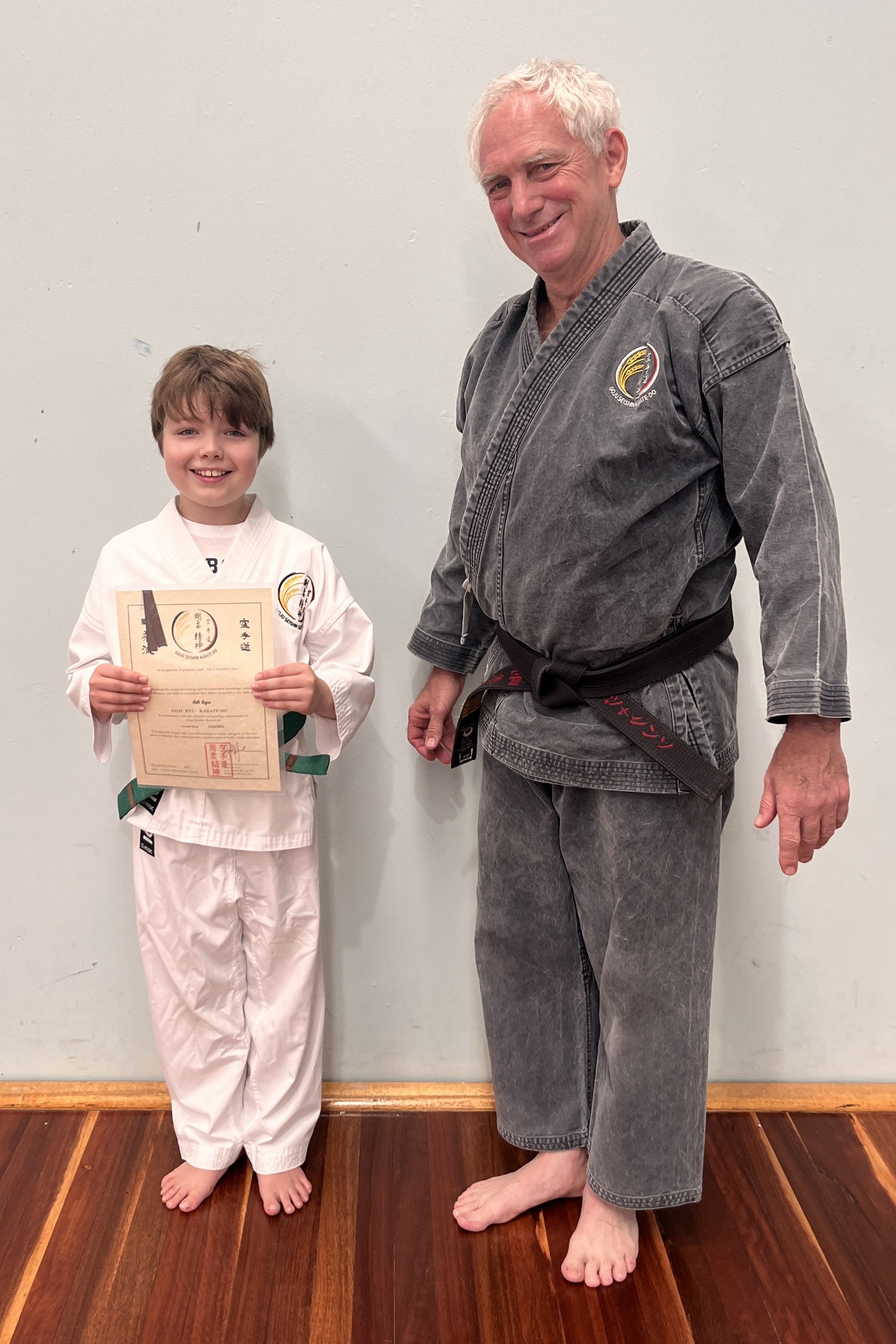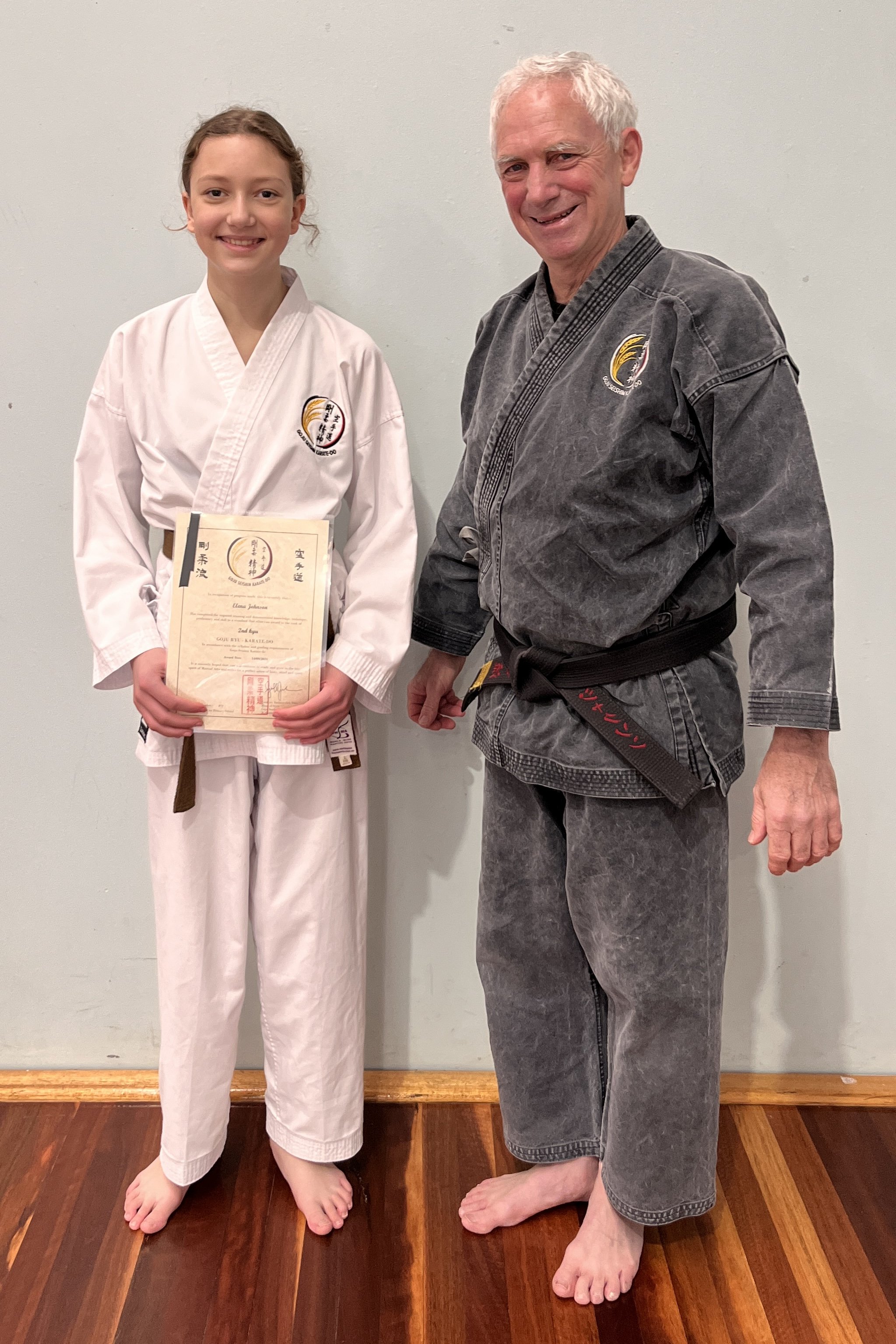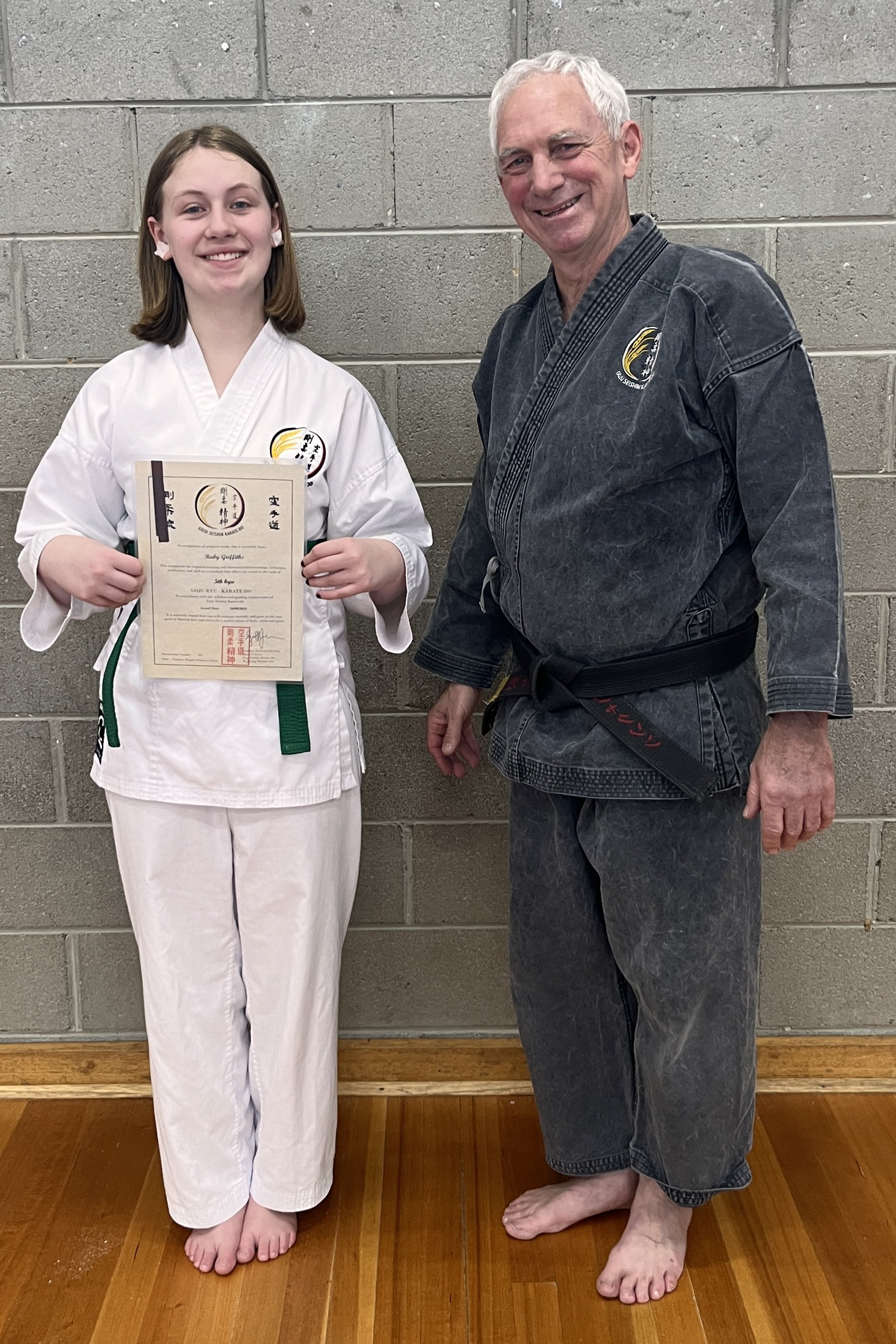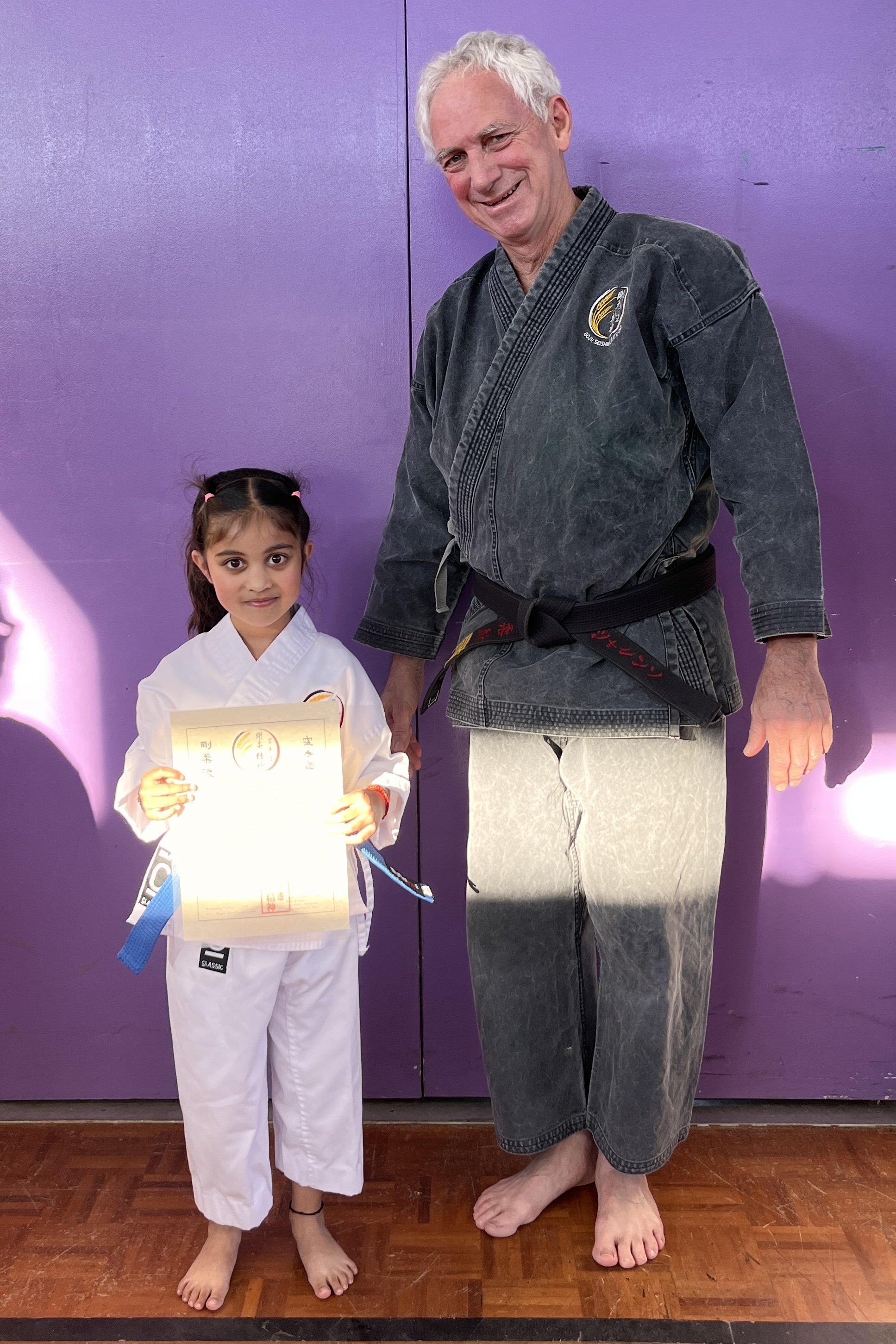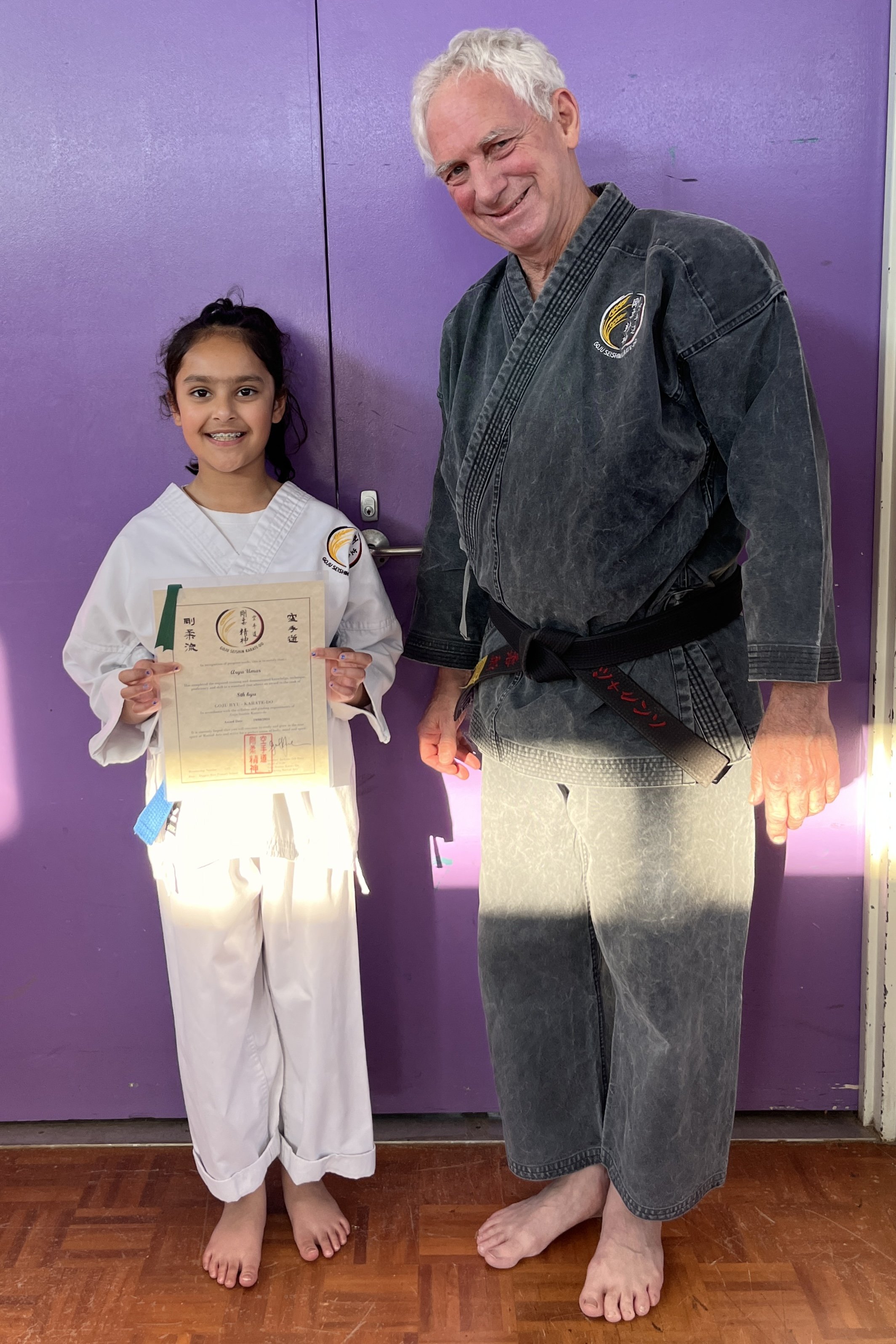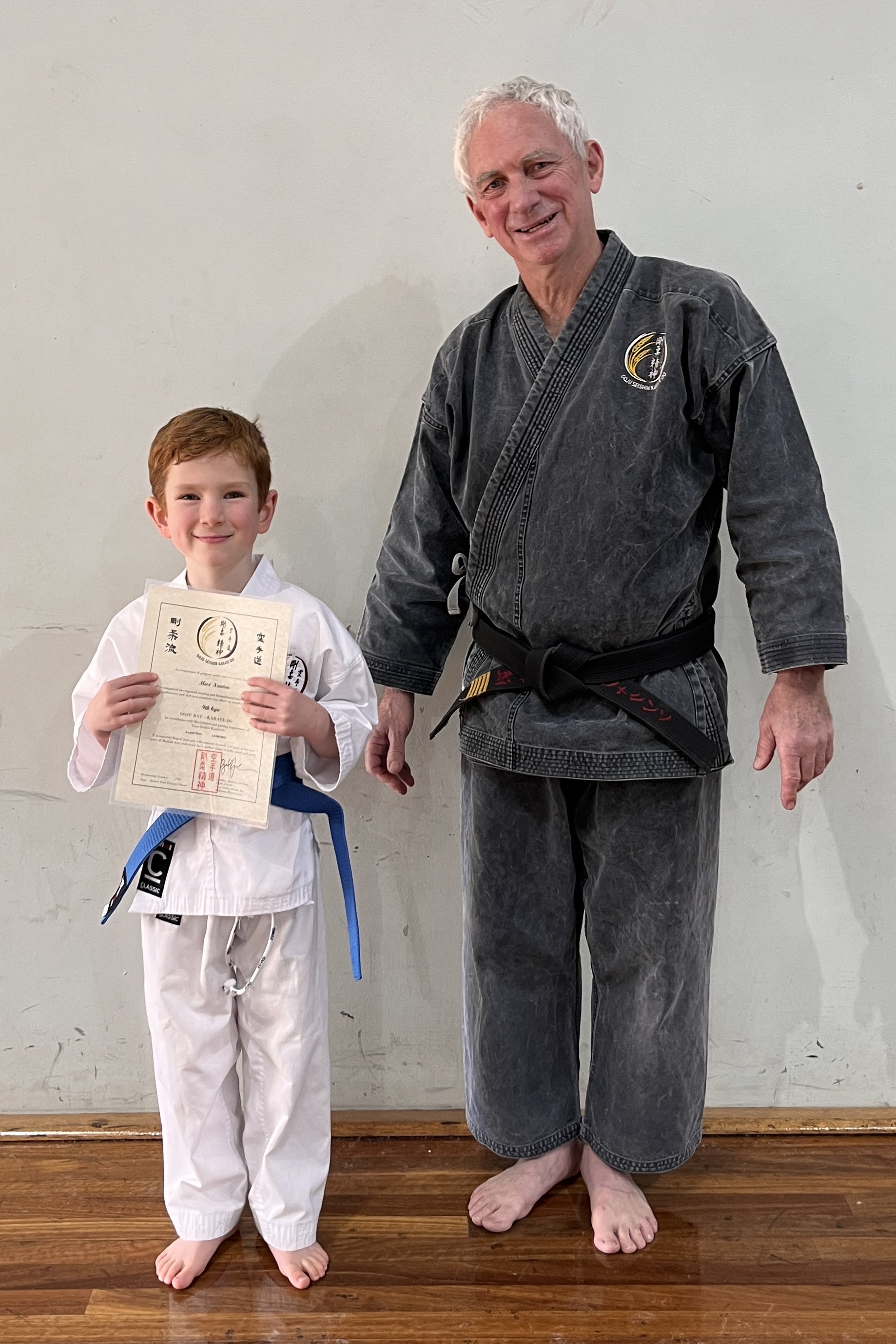KARATE IN SUNBURY
Karate comes from the Japanese meaning "empty hand", indicating it is a martial art that does not require weapons. It is a great way to develop fitness and confidence and the power to defend yourself.

Goju Seinshin Karate-do
Our Karate school or style name is Goju Seishin Karate-do. The Japanese term “Seishin” means “Spirit” and refers a person with a strong mind, heart, or intention. “Goju” was adopted by Chojun Miyagi, founder of Goju Ryu (Hard Soft Way). Chojun Miyagi applied the term Goju (Hard/Soft), a concept found in the Bubishi, the original training manuals from China that greatly influenced the development of karate.
Our style is based on Goju Kensha, a form of Goju Ryu karate developed by Tadahiko Ohtsuka Sensei (1940-2012) and taught to me by Shihan David Zarb through his style Genshuku Karate-do.
Tadahiko Ohtsuka was born in Tokyo on the 10th of June 1940. He started studying Goju-Ryu Karate in 1955 under the direction of Goju Master Sensei Sosui Ichikawa in Tokyo. A brilliant and dedicated student, Tadahiko Ohtsuka attained his 5th Dan ranking by 1965. In the same year he graduated in law from Meiji University. Two years later a meeting with Yo Meiji ("Yang Ming Shih" in Chinese) had a big impact on his life.
As a result he developed a passion for Tai Chi Chuan. Then in 1968 he discovered Bagau Zhang and Hsing I Chuan through O Ju Kin (Master Wang Shu Chin) from Taiwan, who came to stay five years in Japan. At the same time he studied techniques to maximise striking power with Shorin Ryu Master Yochuku Higa Sensei of Okinawa and drew on all these diverse arts to compliment and eventually create the Goju Kensha system.
Please call or email us if you would like to learn more about our program. We are pleased to be able to offer Goju Ryu Karate in Sunbury.
Geoff Jackson established Wellbeing Martial Arts after many years of training in both Karate and Cheng Ming Kung Fu with Art of Defence Australia.
Karate Belts and Gradings
Regular gradings are conducted to recognise each student’s individual progression as their skills develop. Karate gradings involve an assessment of the student’s ability to meet specific competencies set out in our curriculum. There are 10 levels to be attained before a student is eligible to seek their black belt. Each of these levels, known as kyu gradings, recognises a specific level of achievement. Gradings typically take place at the regular training venue during class time for levels up to 1st kyu.
Grading Levels
10th kyu - White Belt
9th kyu - Blue Belt
8th kyu - Blue Belt with one Green stripe on each end
7th kyu - Blue Belt with two green stripes on each end
6th kyu - Green Belt
5th kyu - Green Belt with one brown strip on each end
4th kyu - Green Belt with two brown stripes on each end
3rd kyu - Brown Belt
2nd kyu - Brown Belt with one Black stripe on each end
1st kyu - Brown Belt with two Black stripes on each end
Shodan Ho (Probationary Black Belt) Black Belt with a white tag on each end
(Junior black belts have a white stripe through the middle.)
Shodan - Black belt 1 stripe
Nidan - Black Belt 2 stripes
Sandan - Black Belt 3 stripes
Yondan - Black Belt 4 stripes
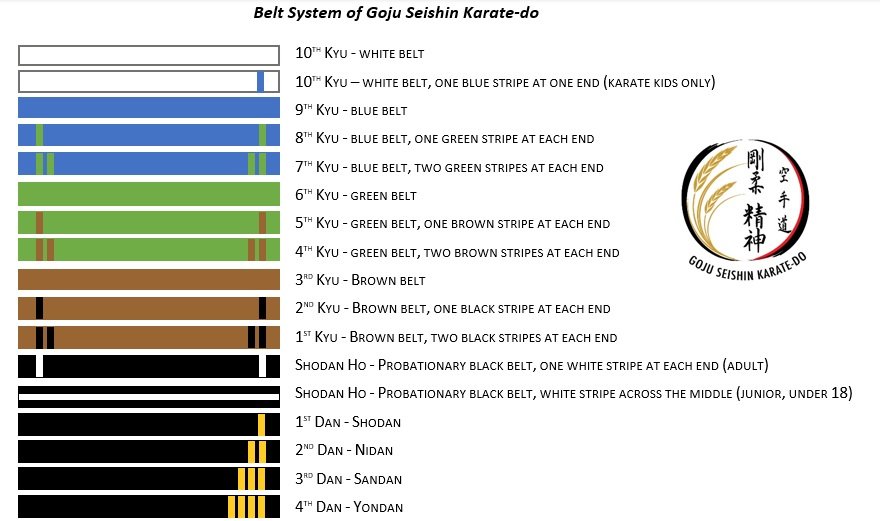
Uniform Alterations or Stripes Sewn
It is important that uniforms fit correctly and often adjustments are required. It is also important to ensure stripes are sewn on belts in a secure and neat manner.
If you need help - call Mandy on 0423 014 791 for cost effective alterations and sewing.
Goju Seishin Karate-do focusses on teaching traditional karate, however we acknowledge the positive impact that sports karate has in promoting karate across the globe and in so doing promoting healthy and safe exercise and wellbeing in more competitive settings. With karate destined to be included as a sport in the forthcoming Olympics, you may wish to learn more about the rules and scoring systems used. Follow this links for more information.
Sports Karate Rules and Scoring
WKF Rules (detailed WKF Rules)


